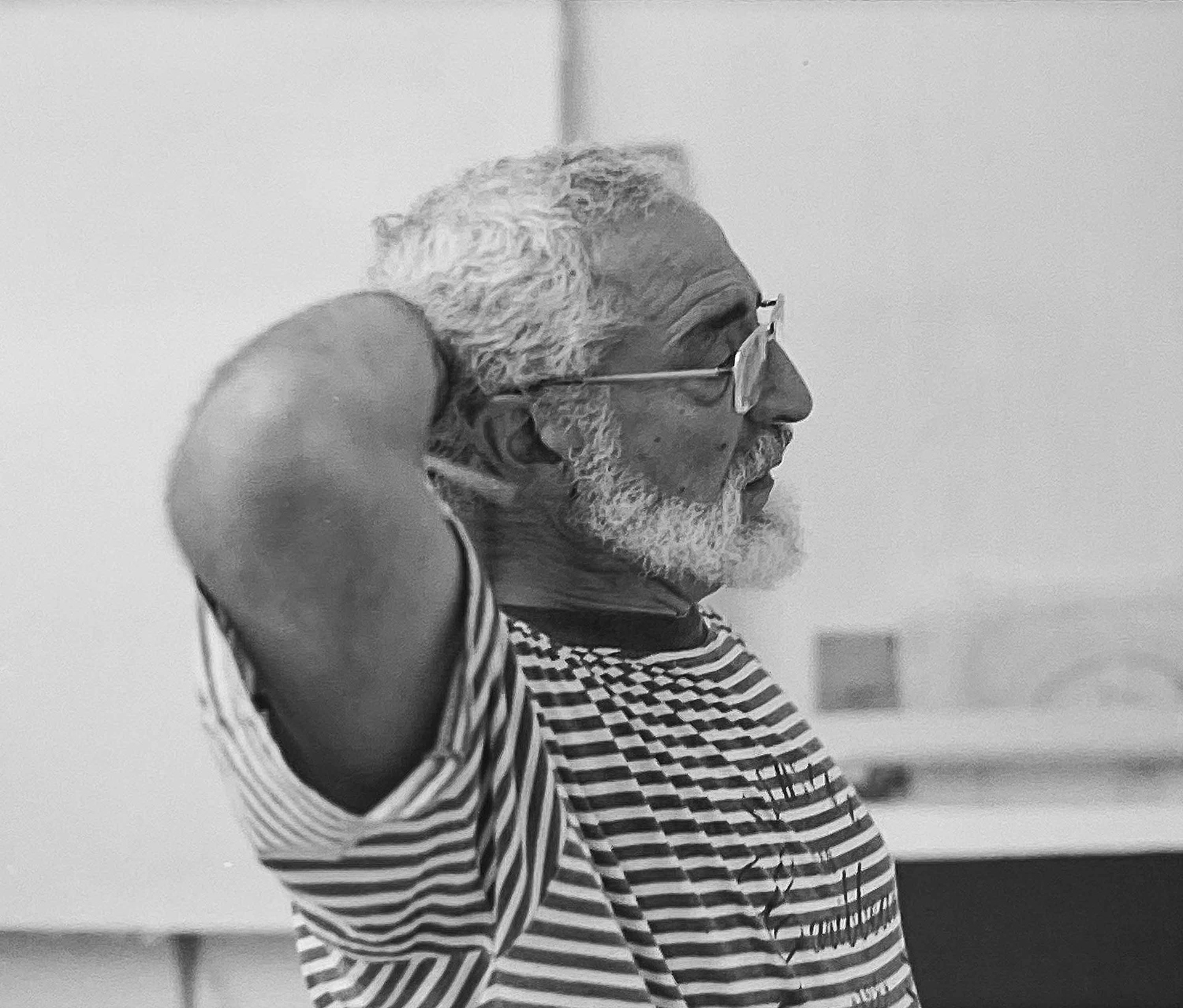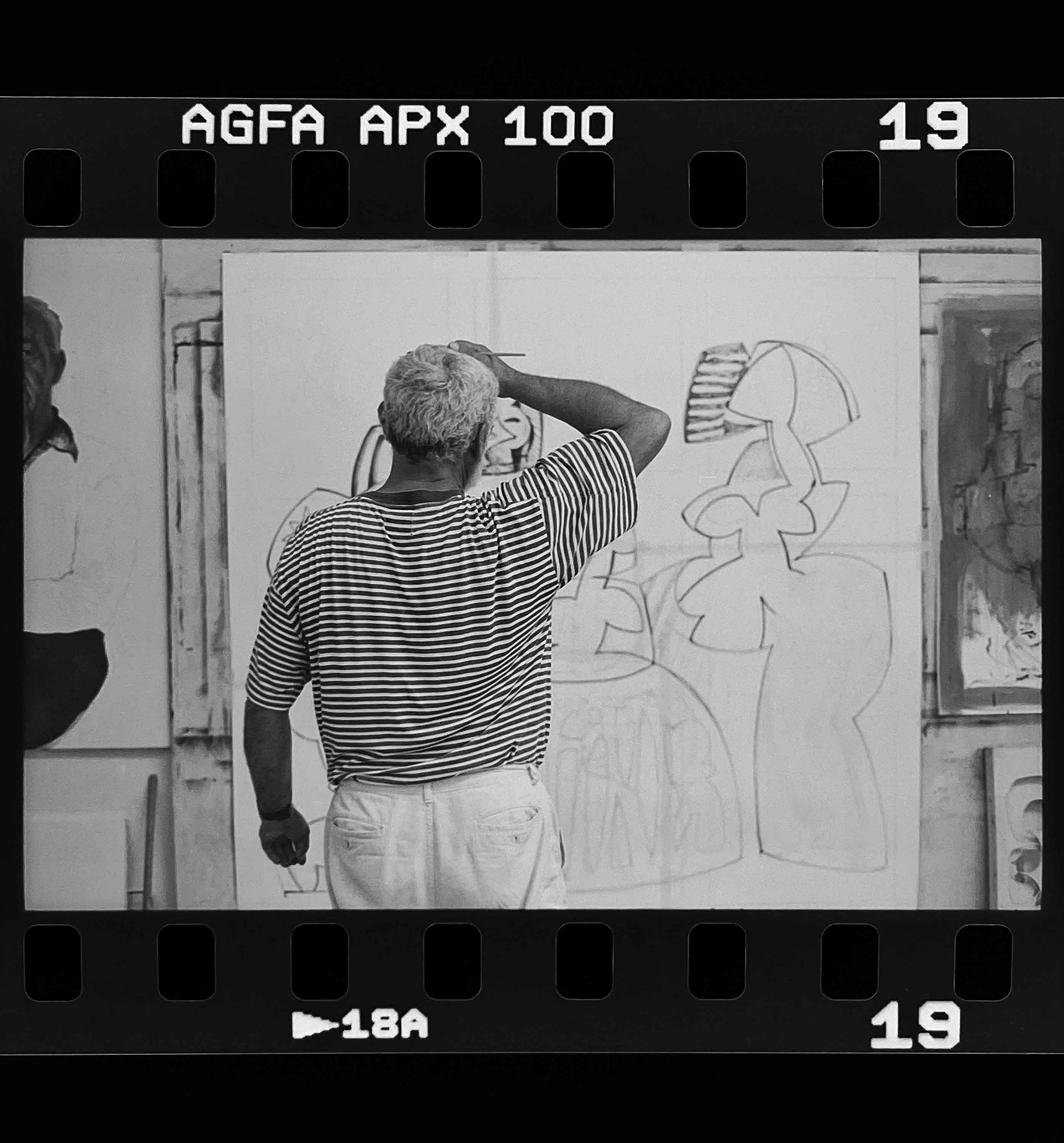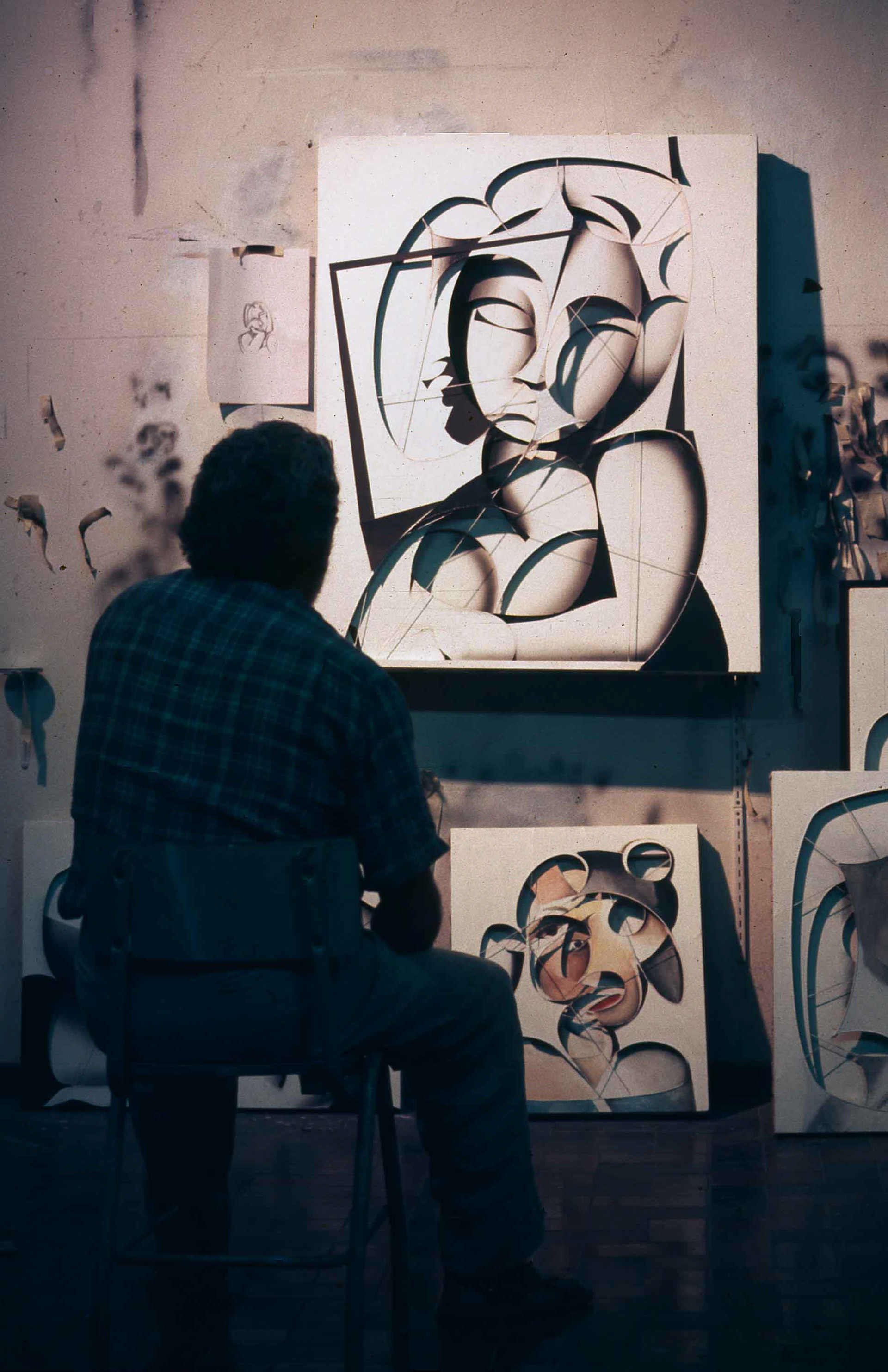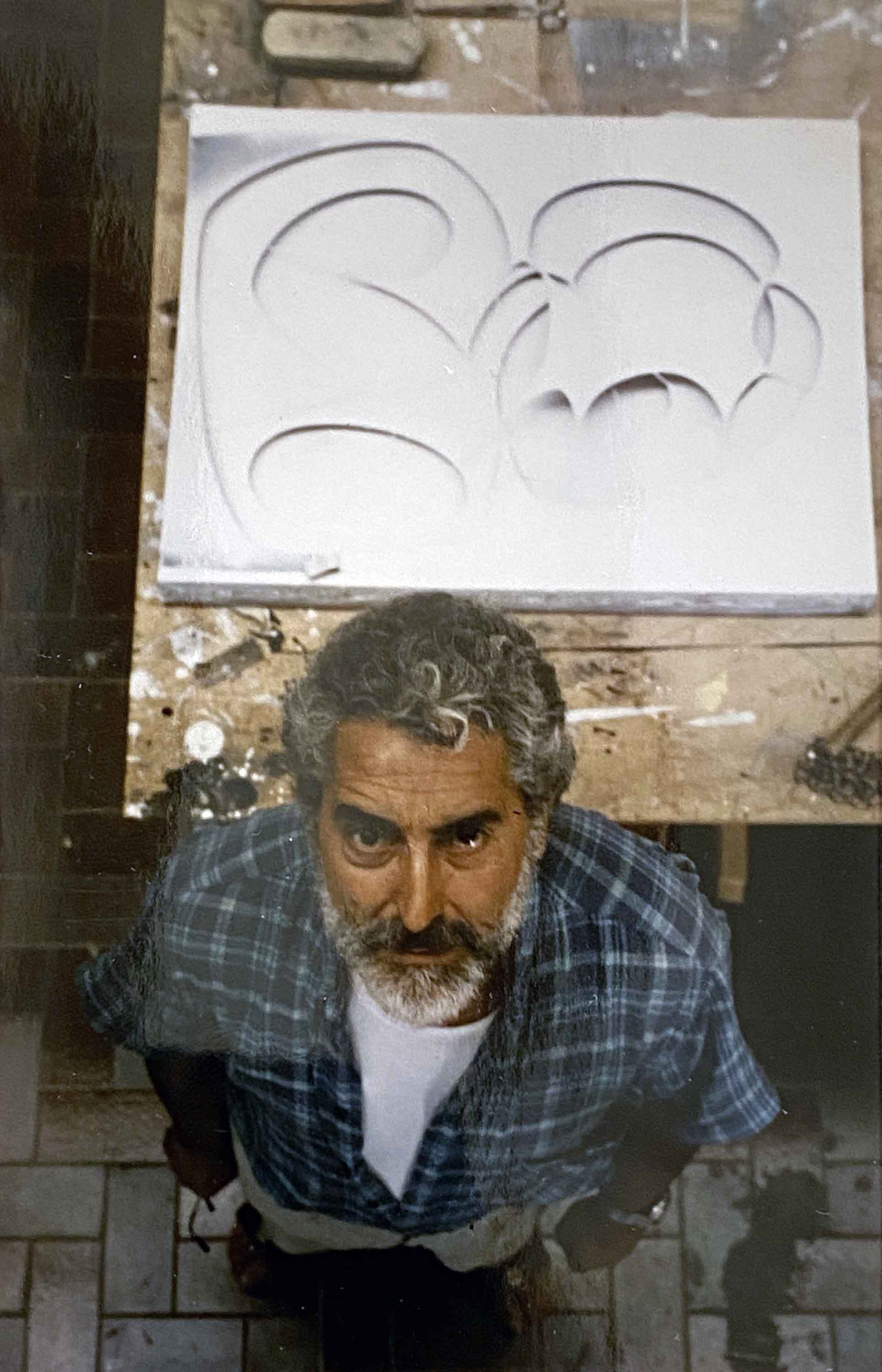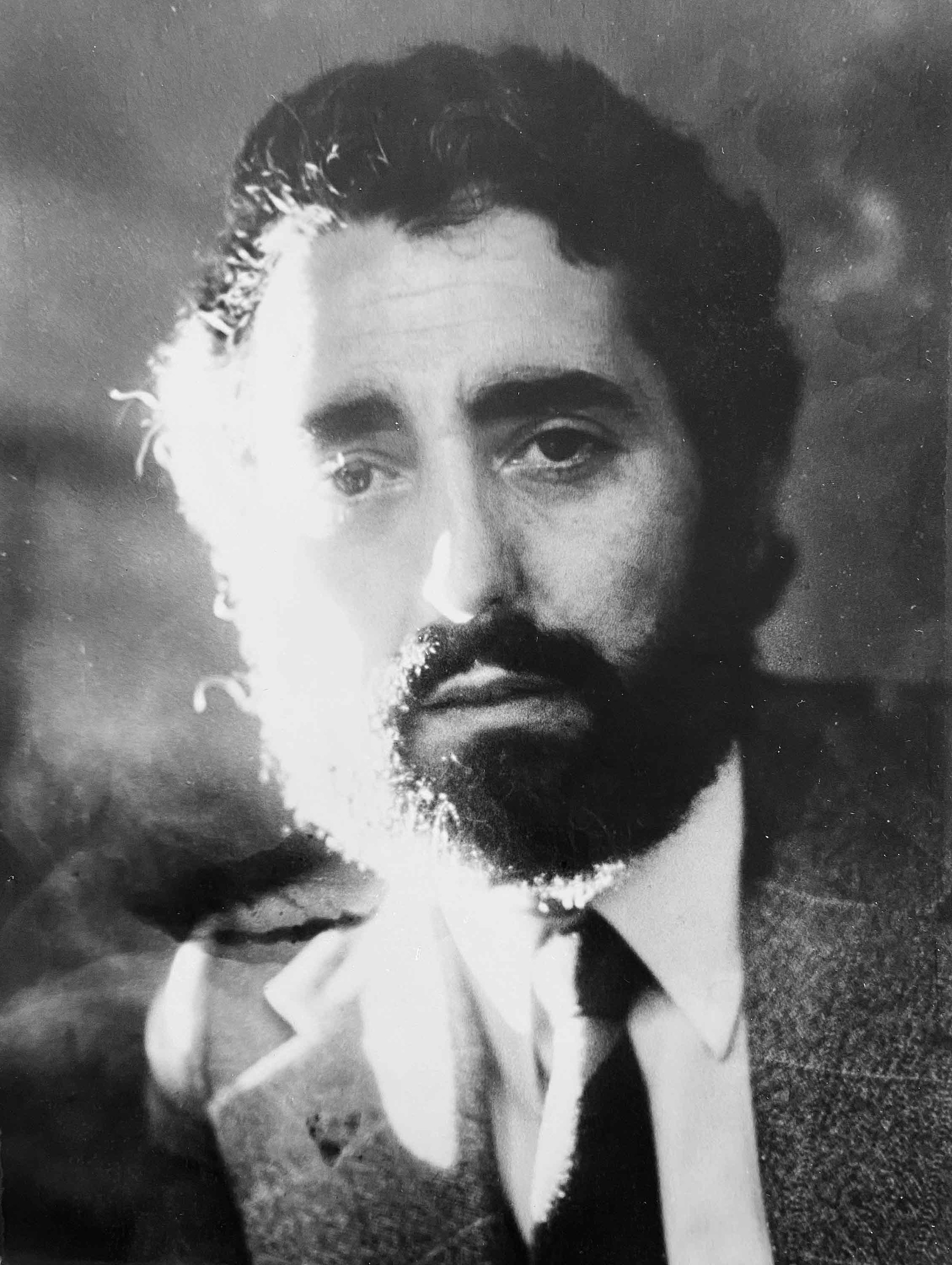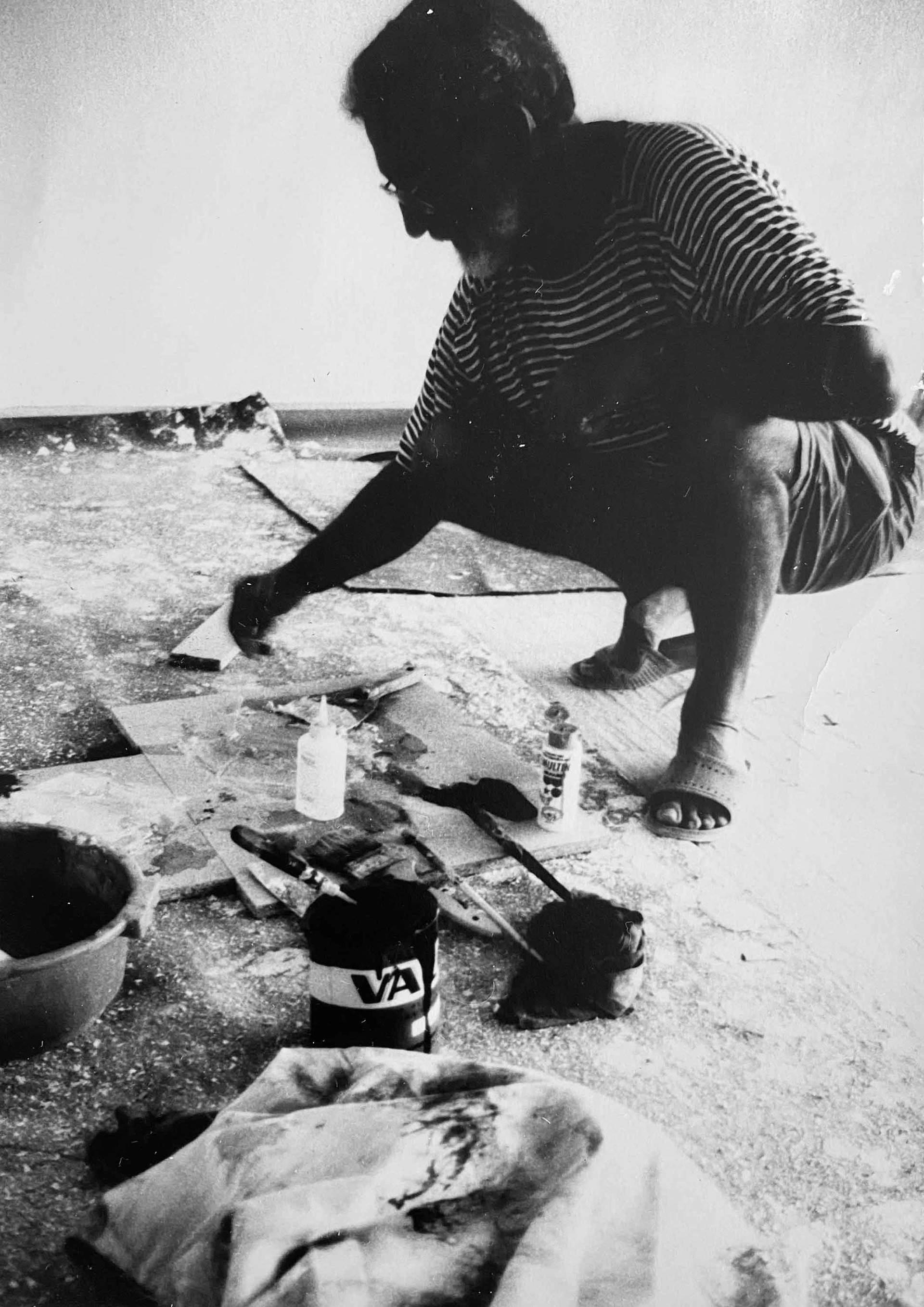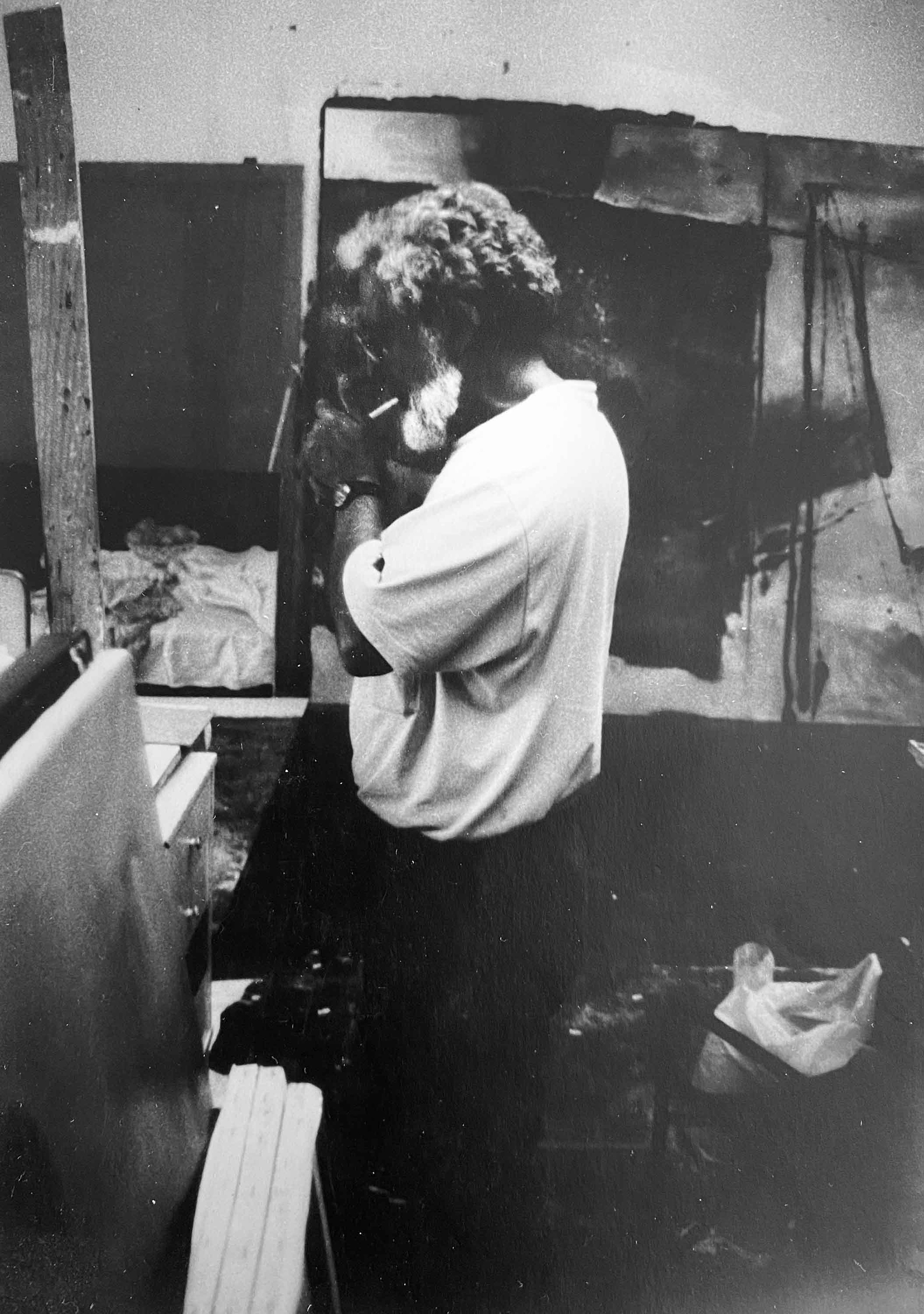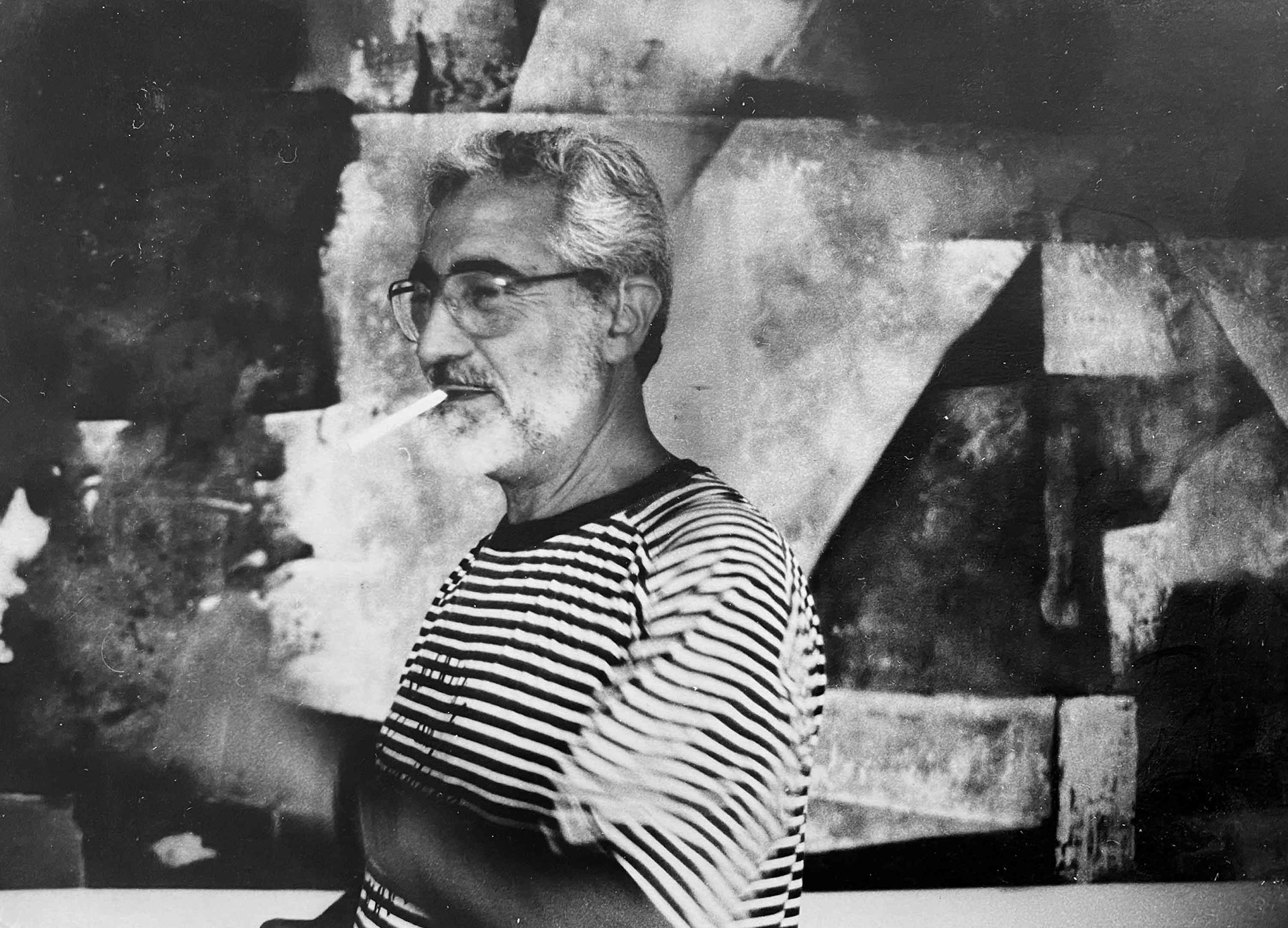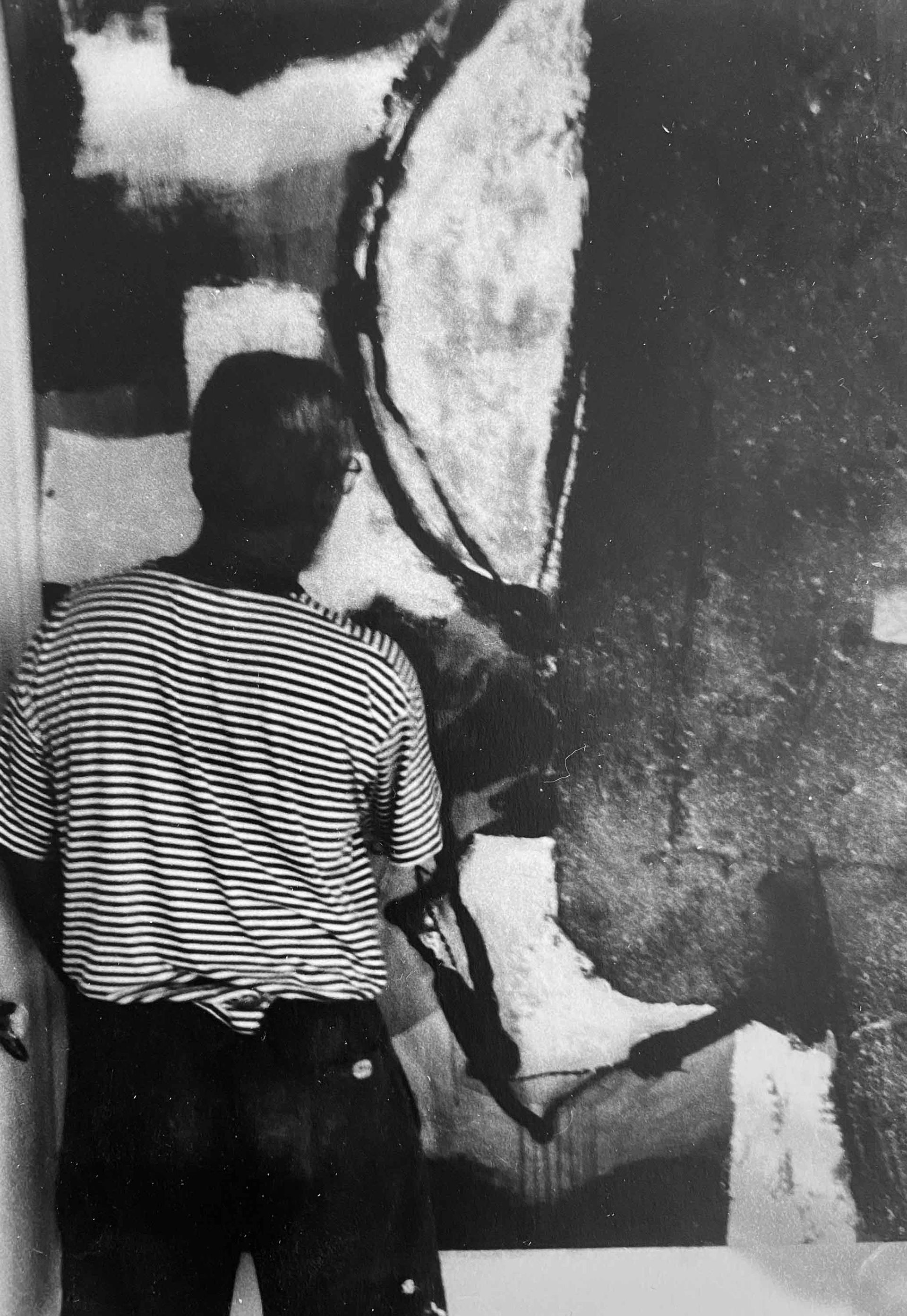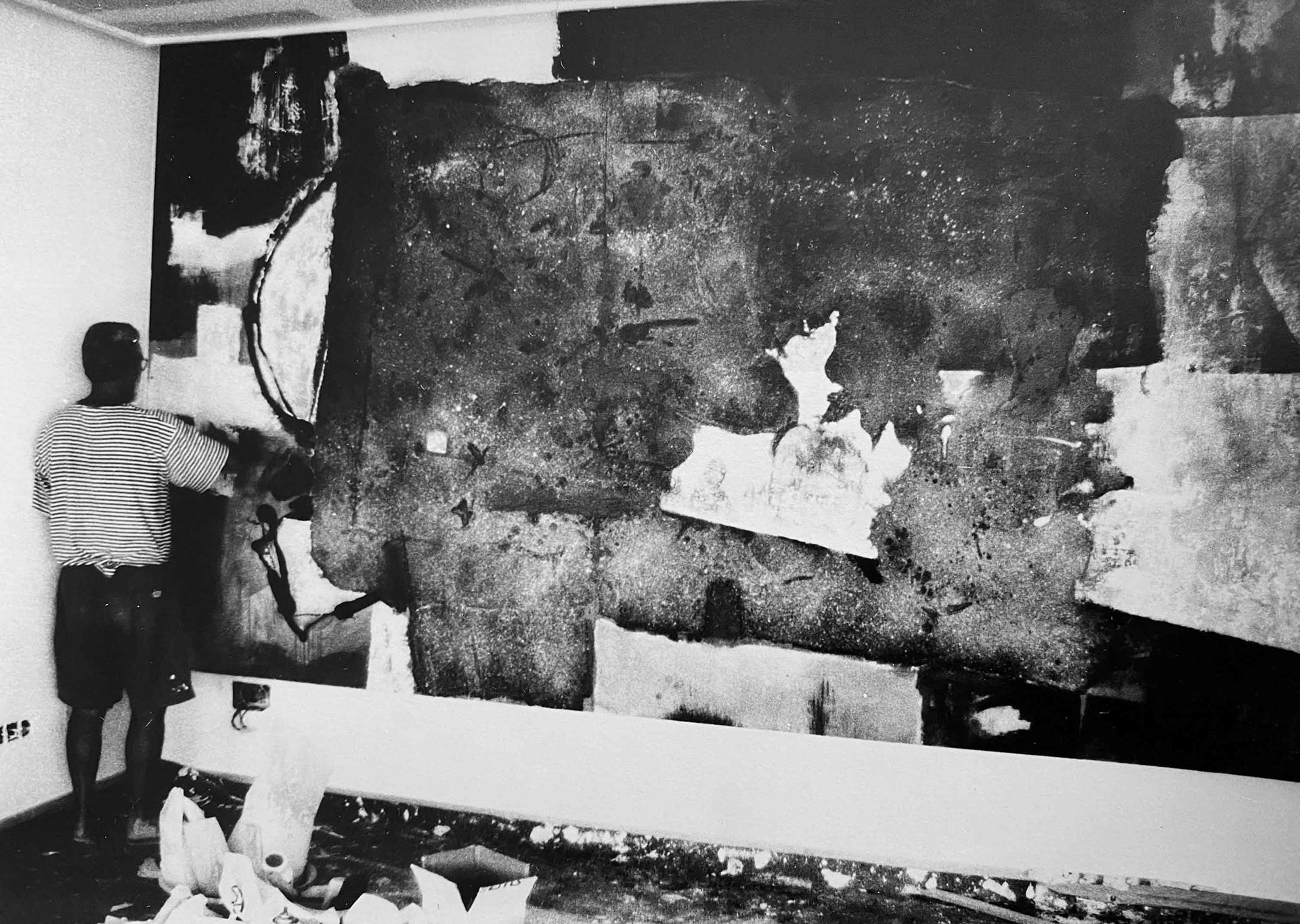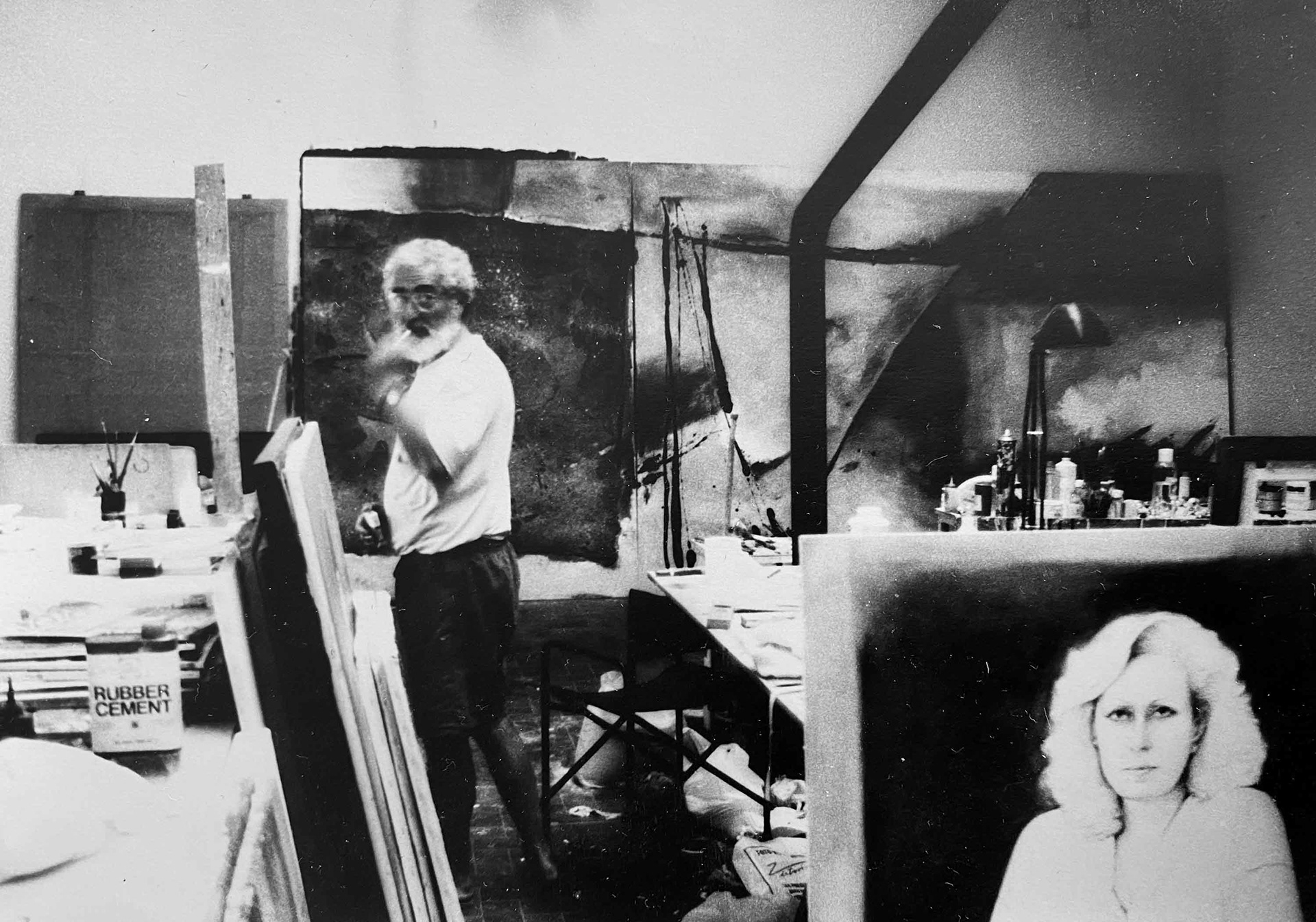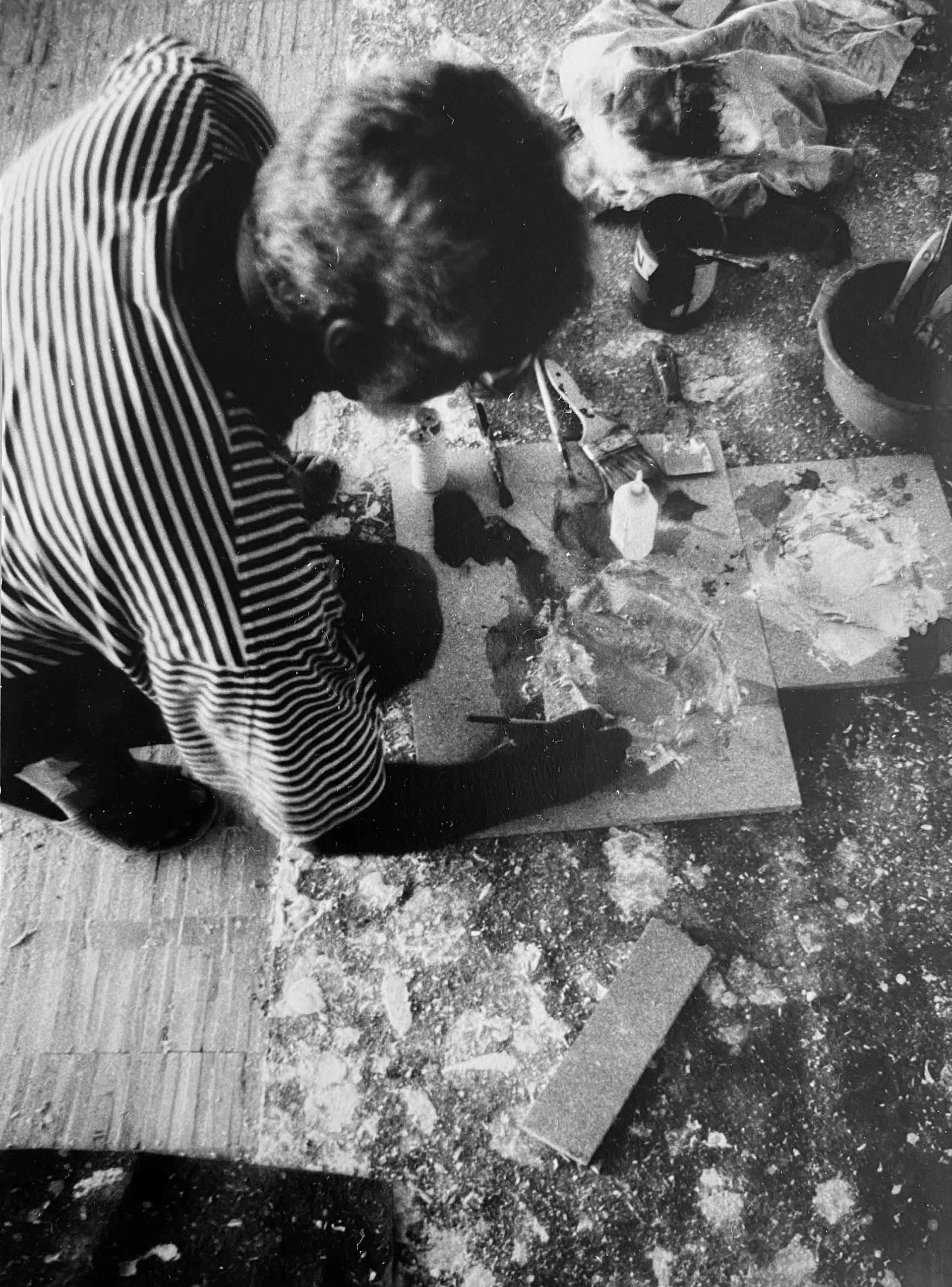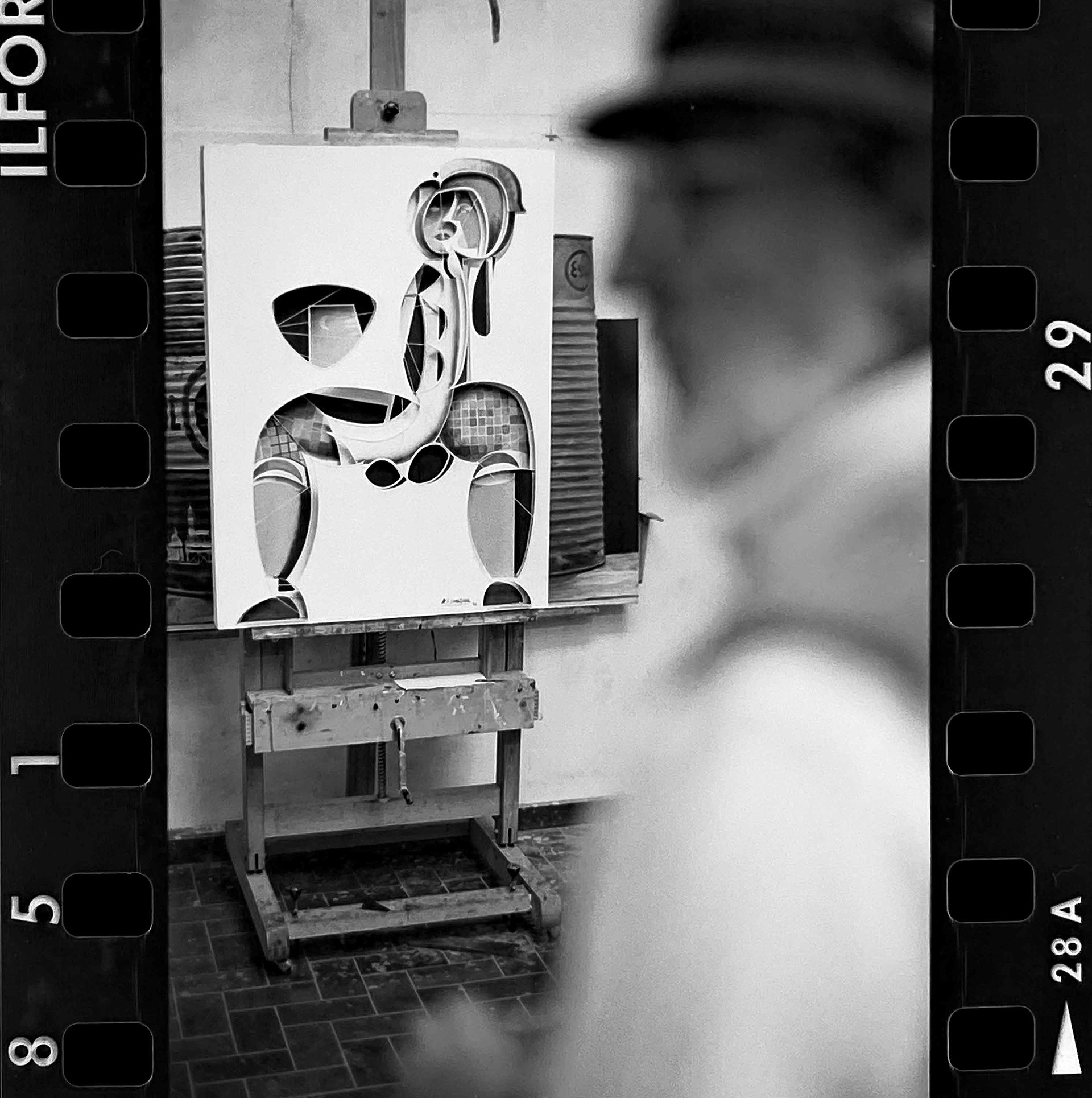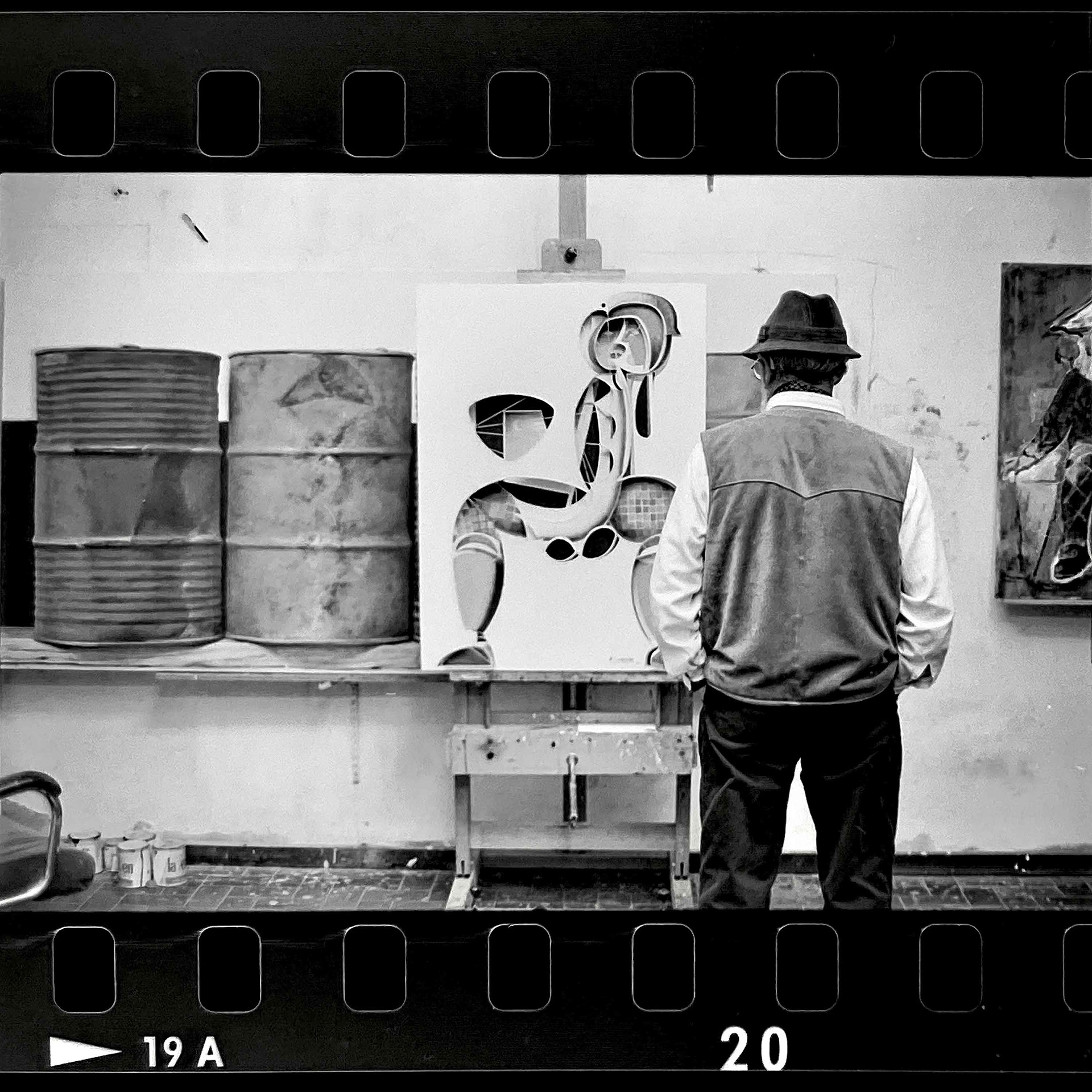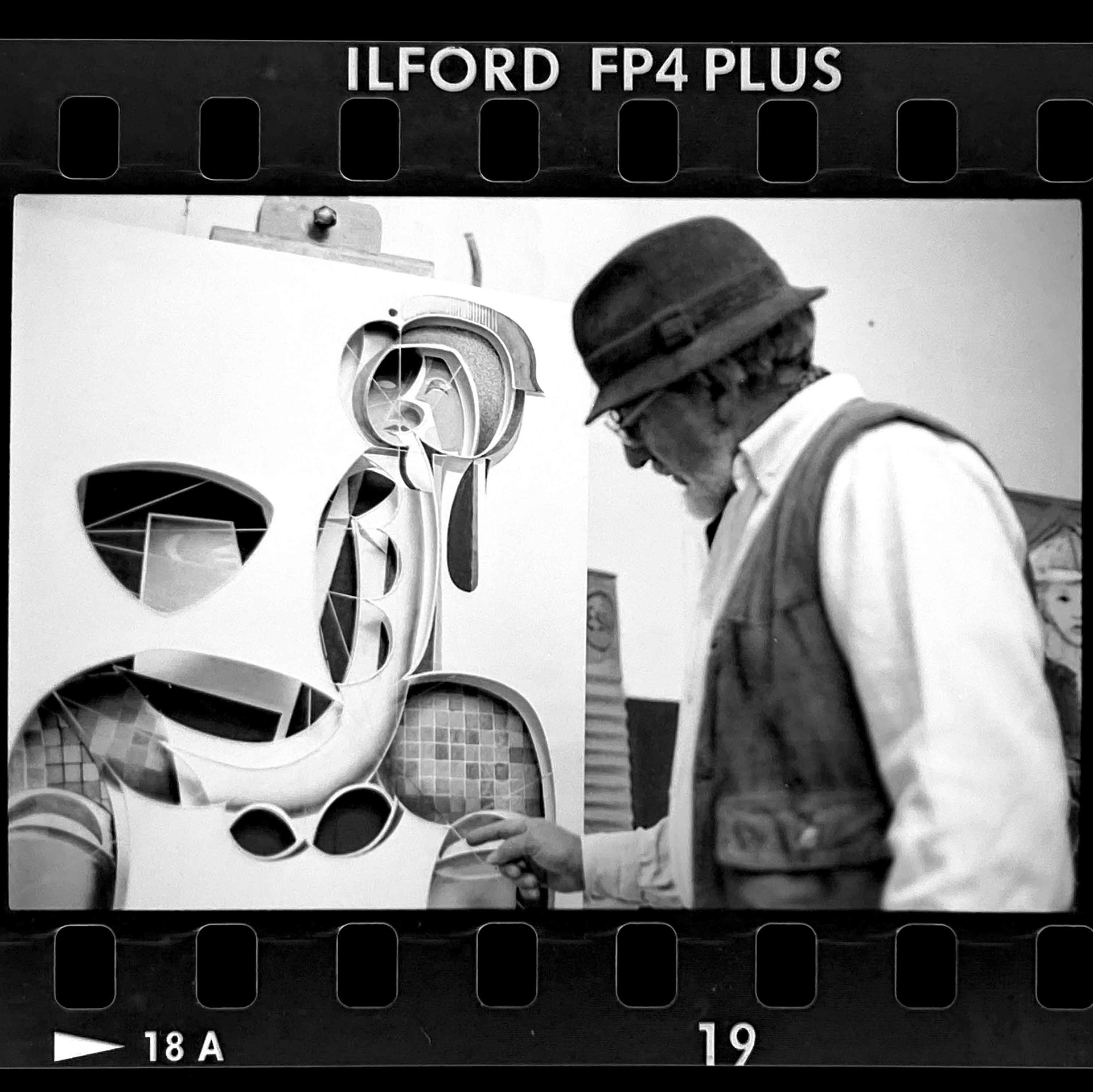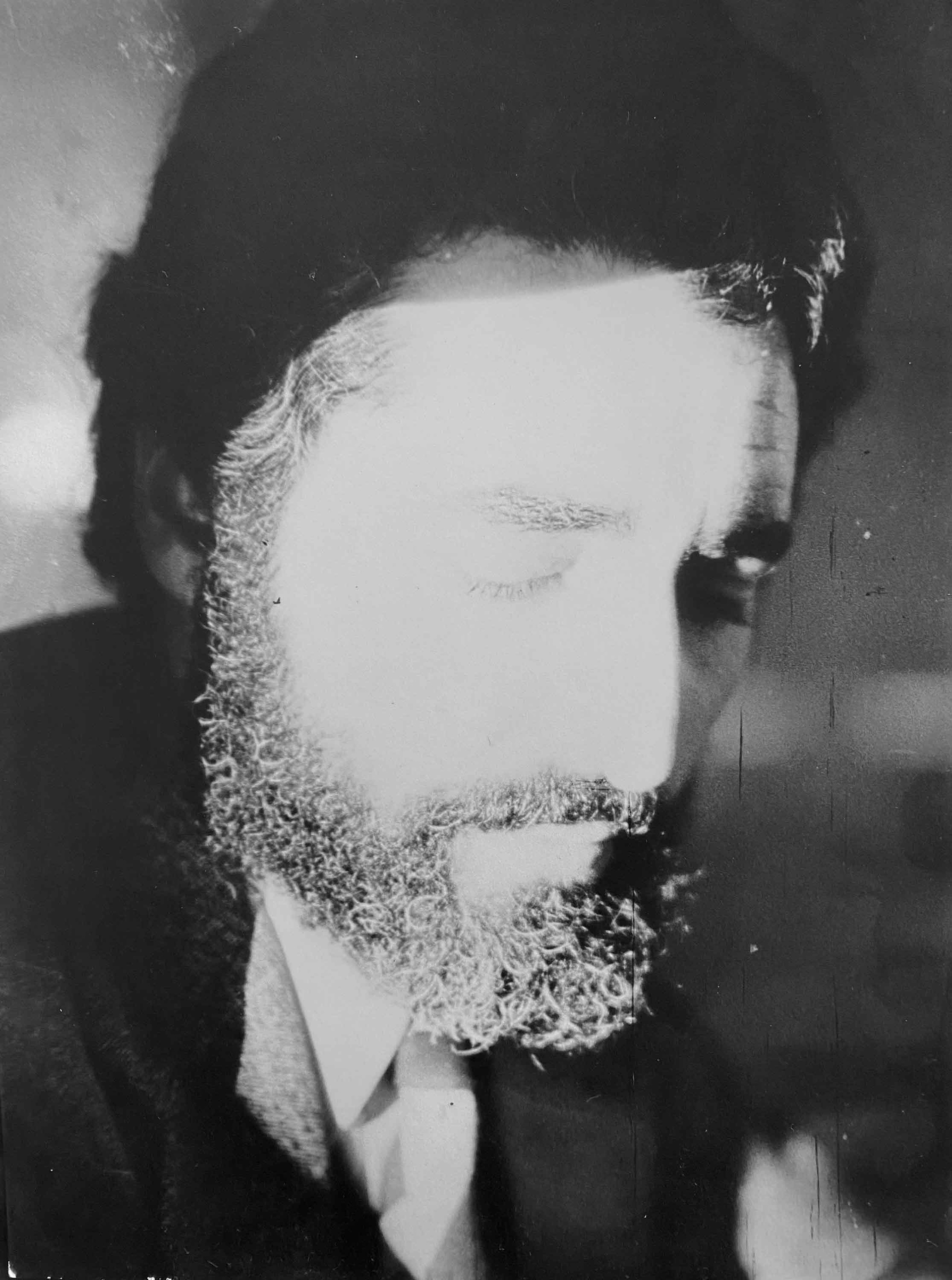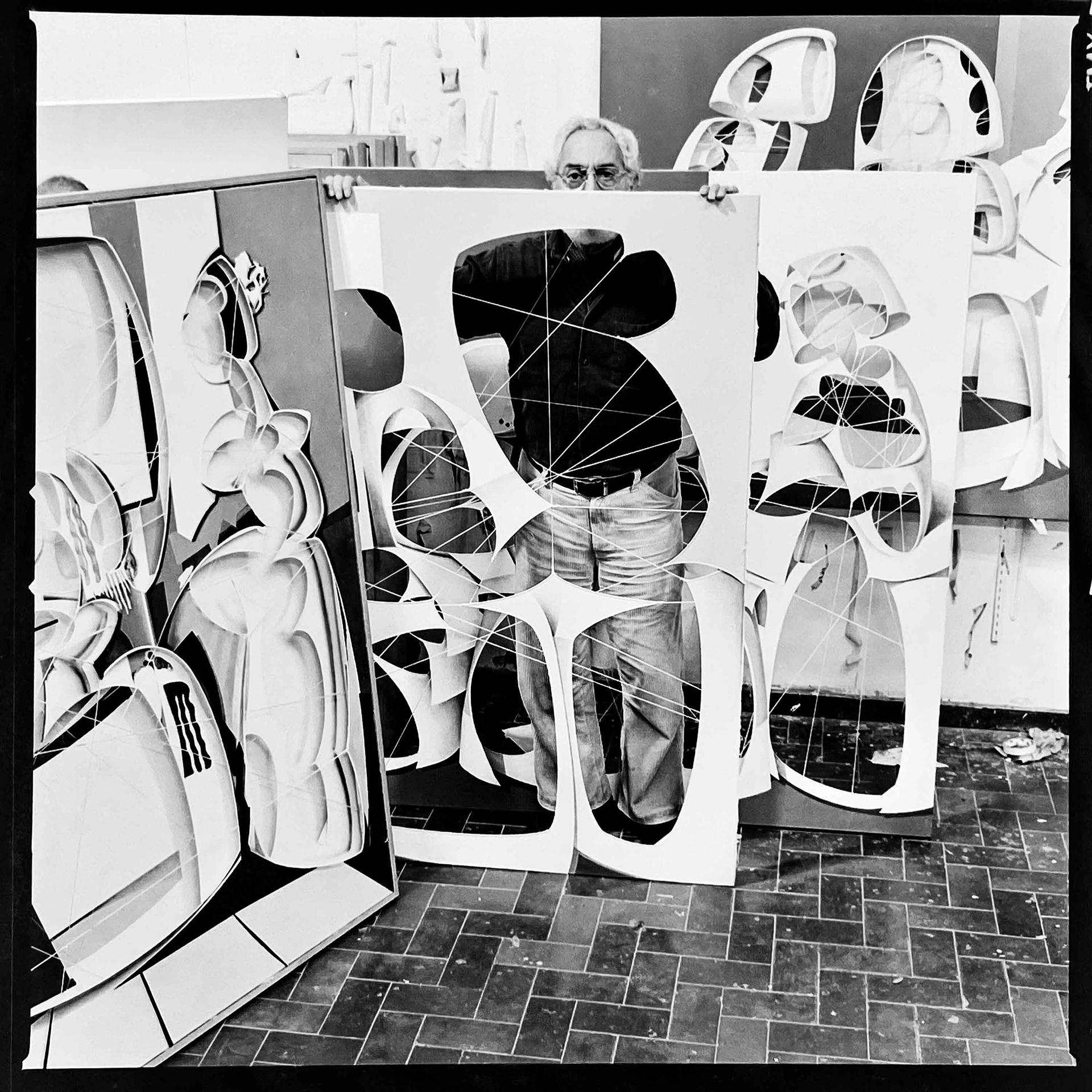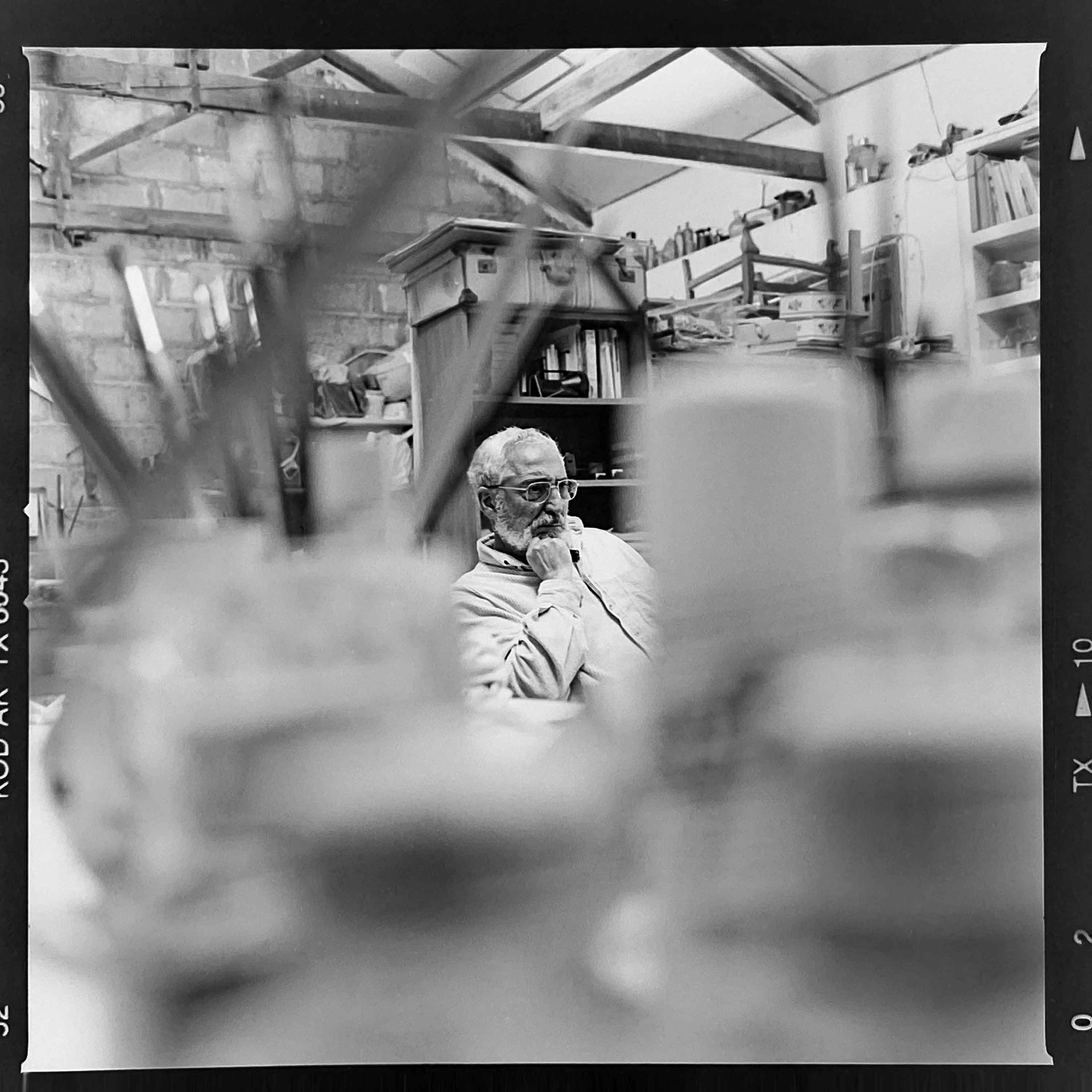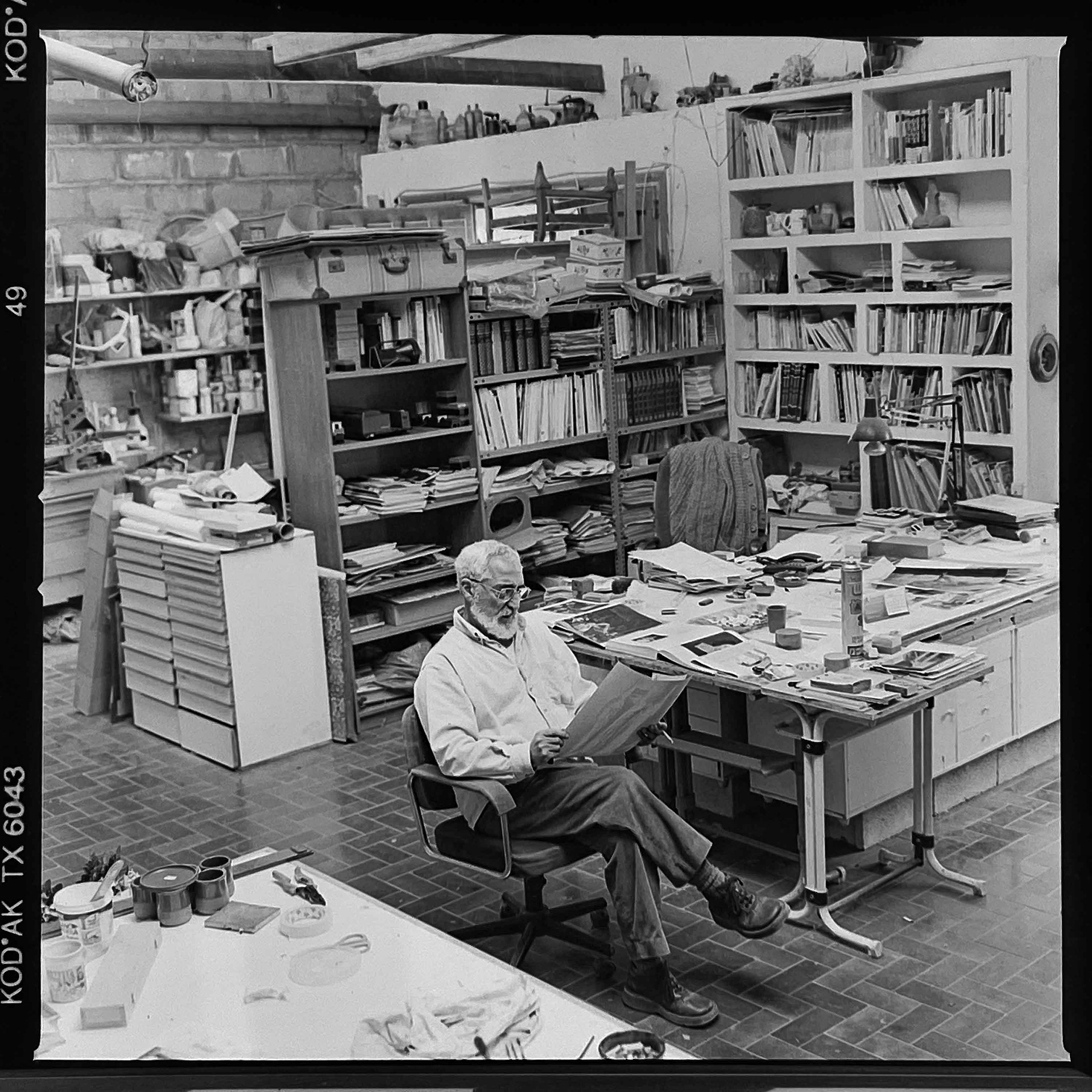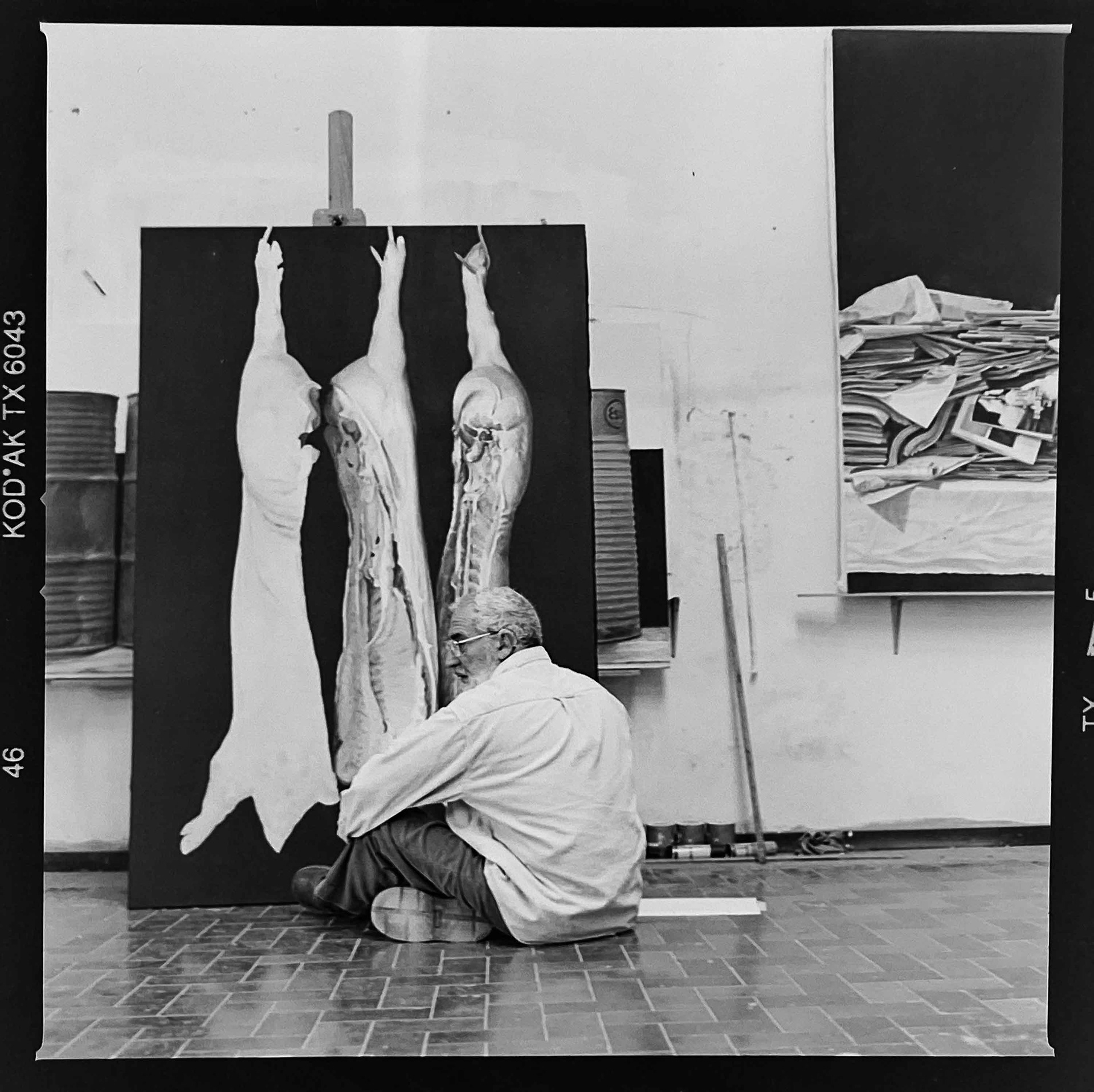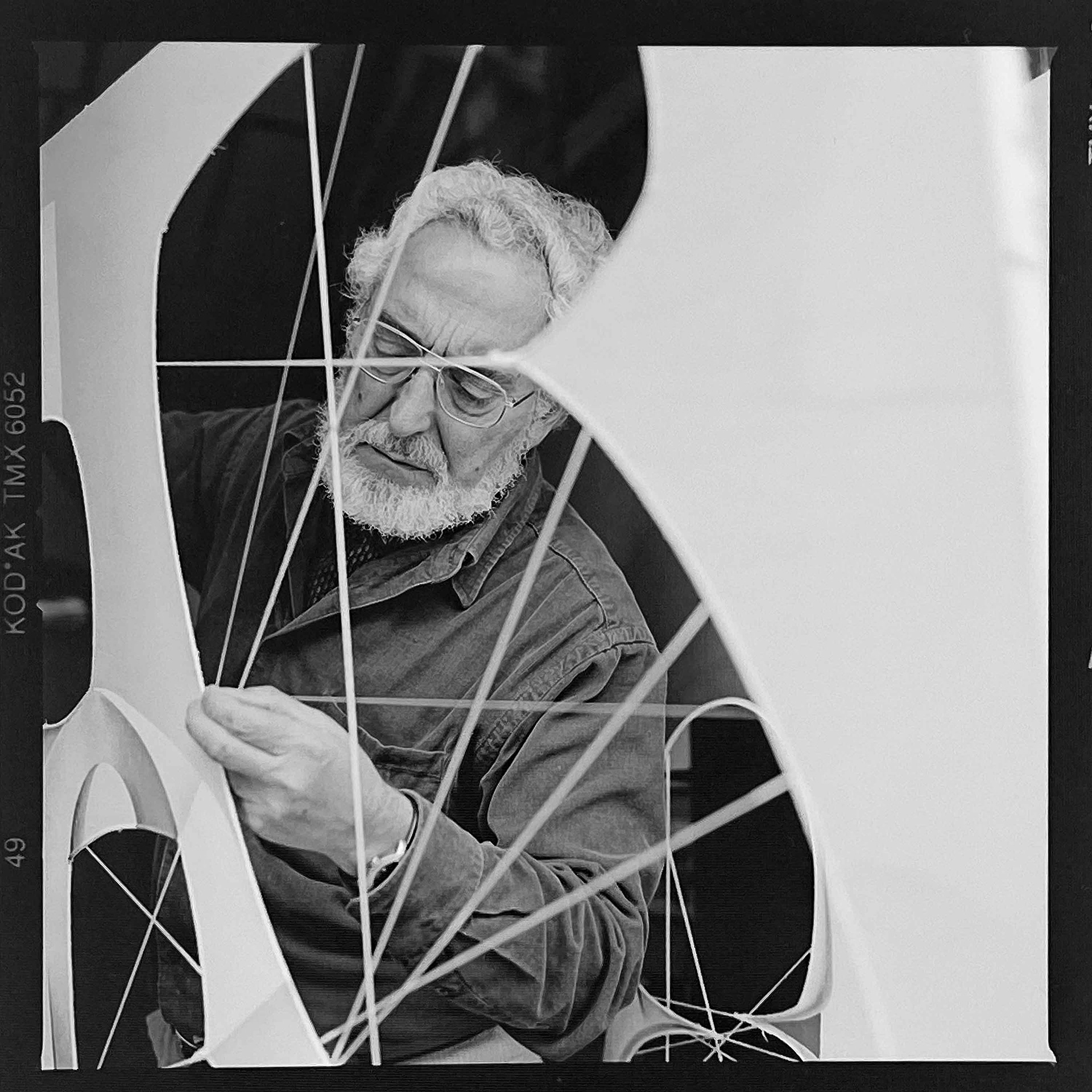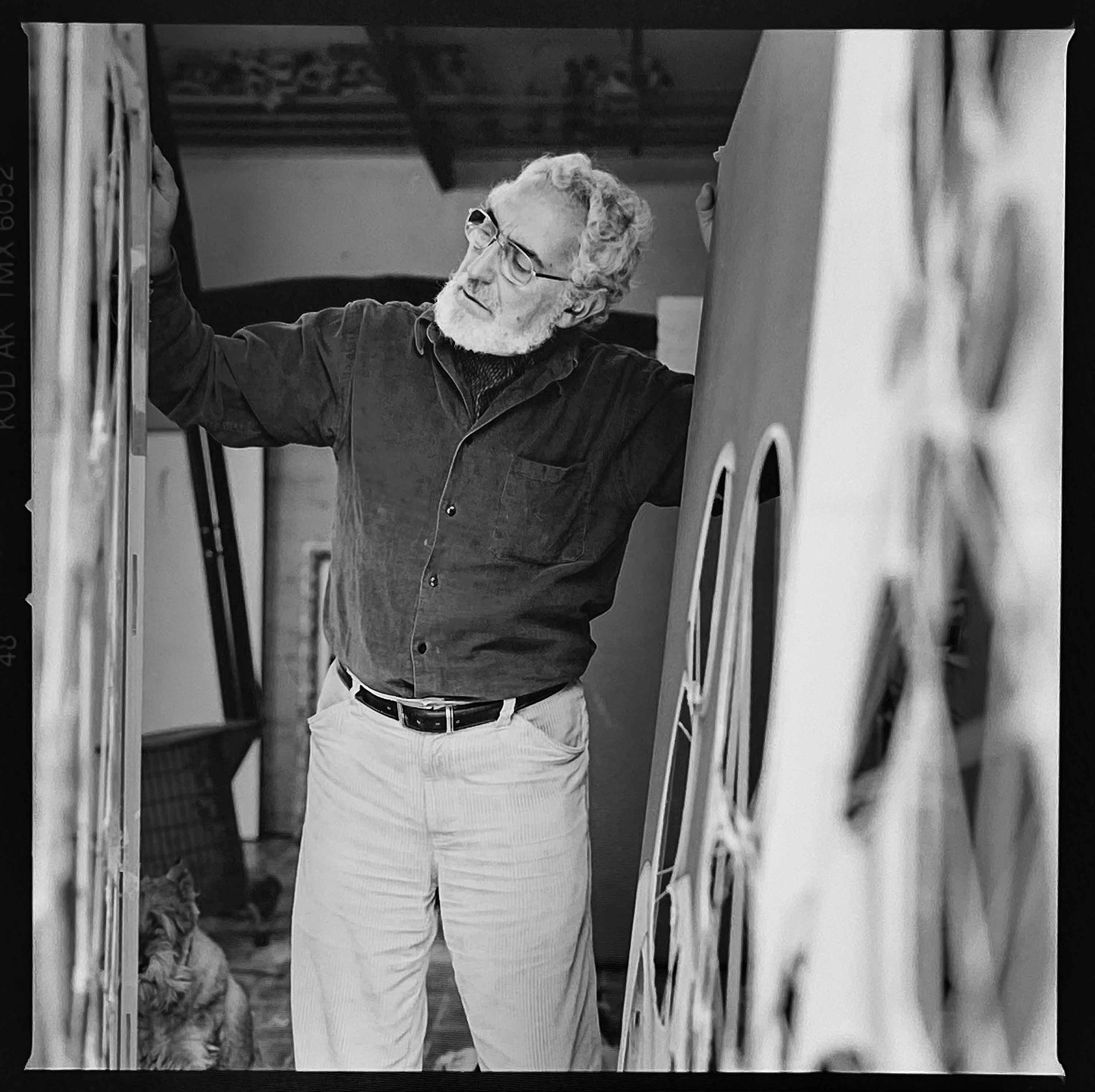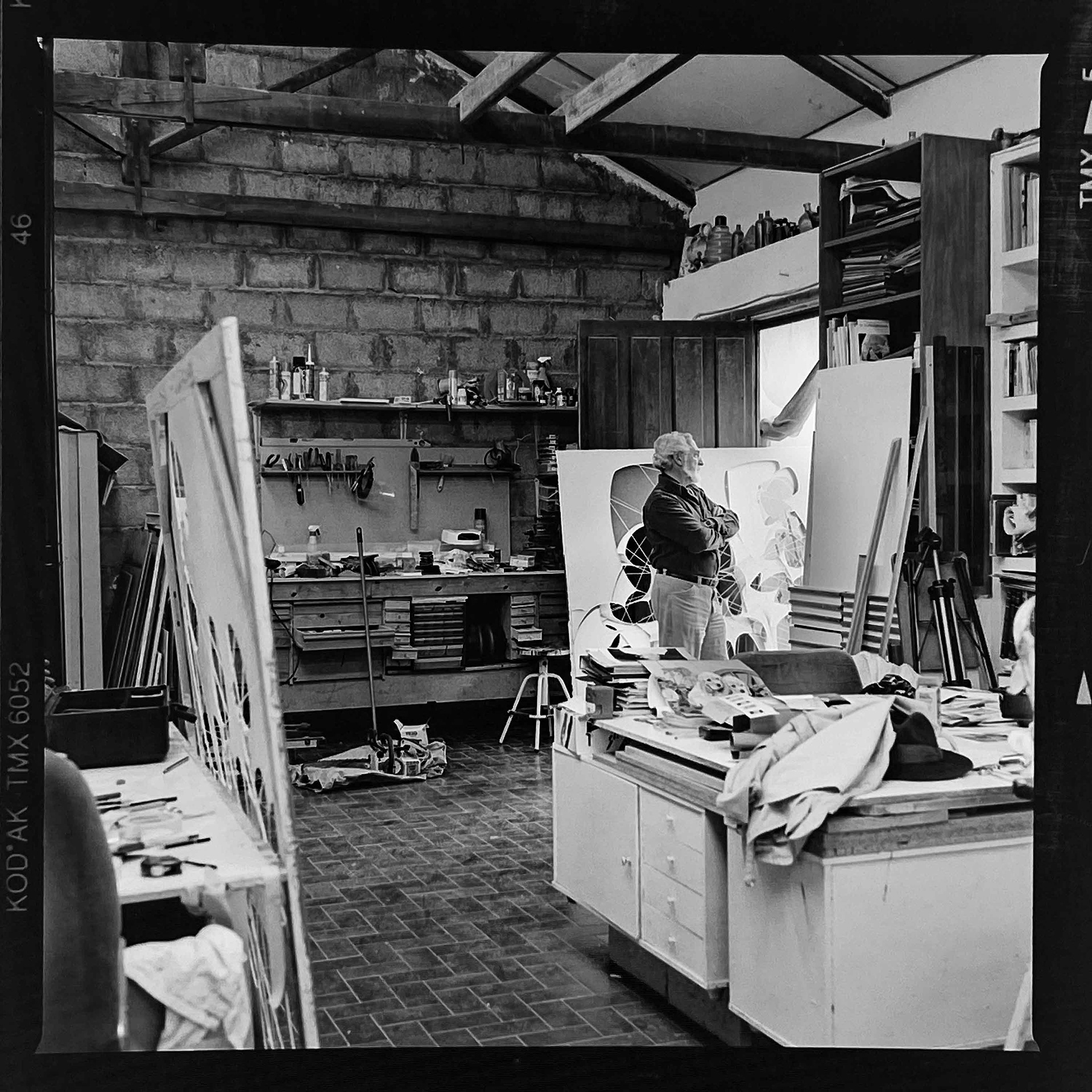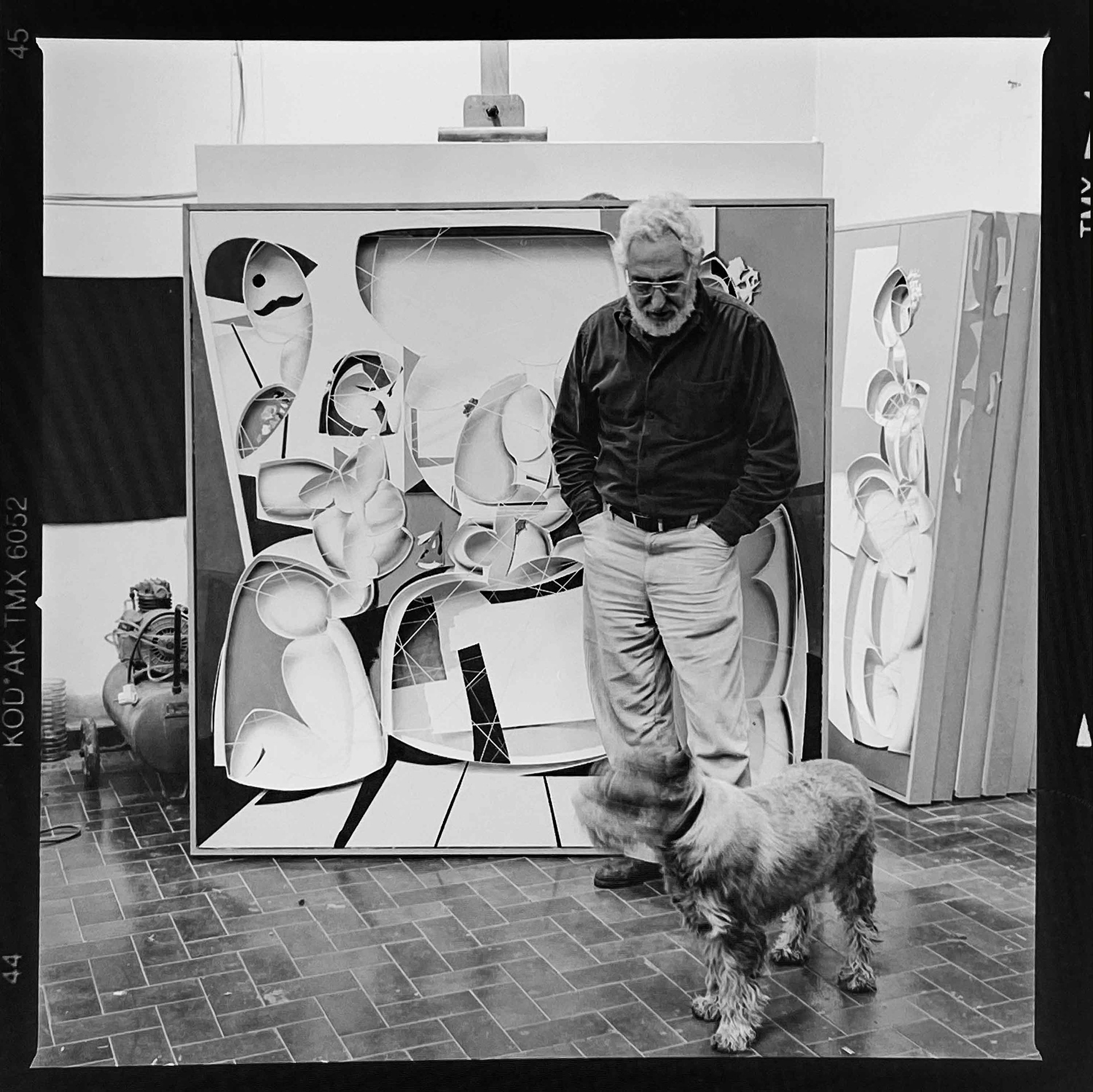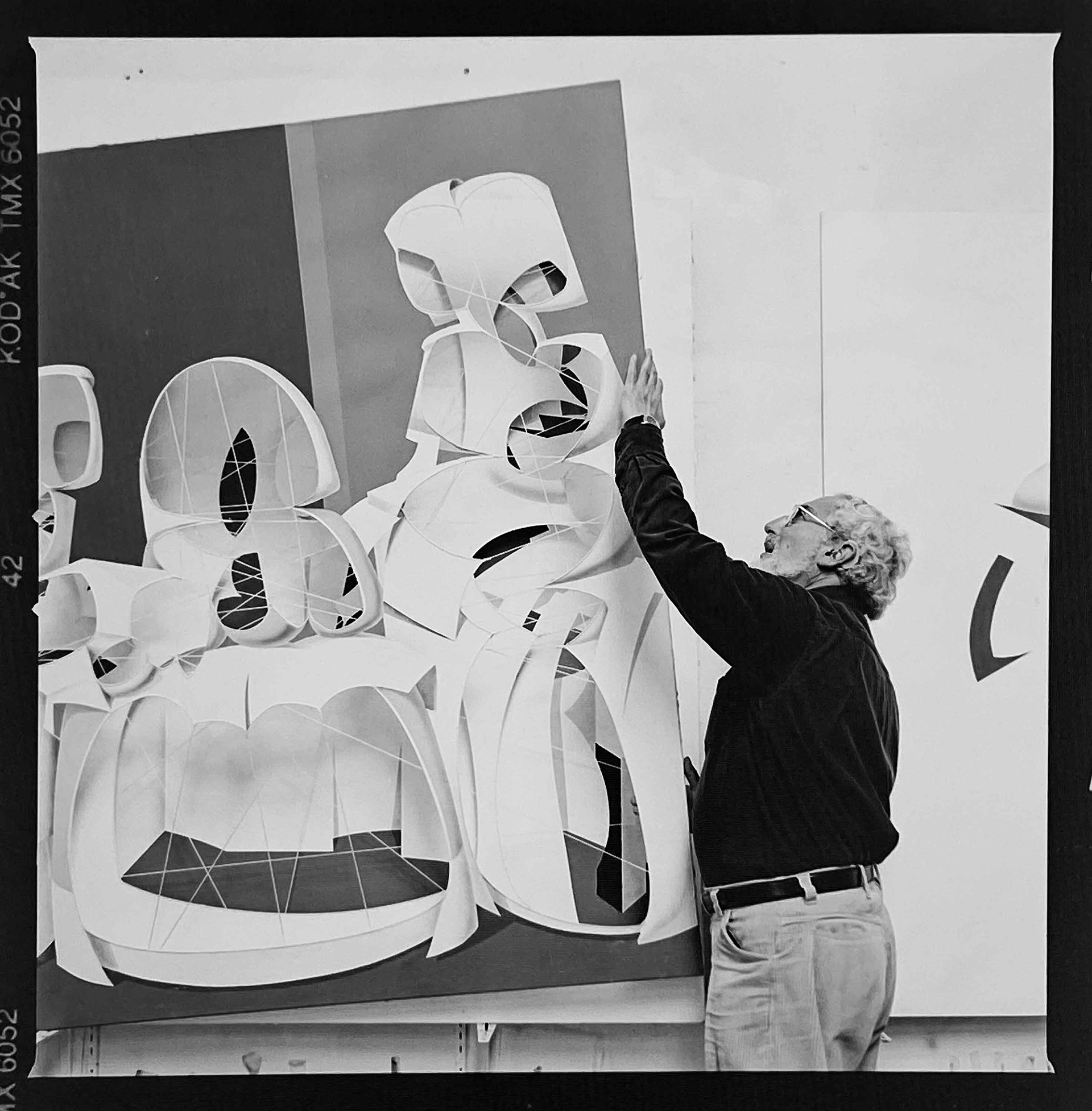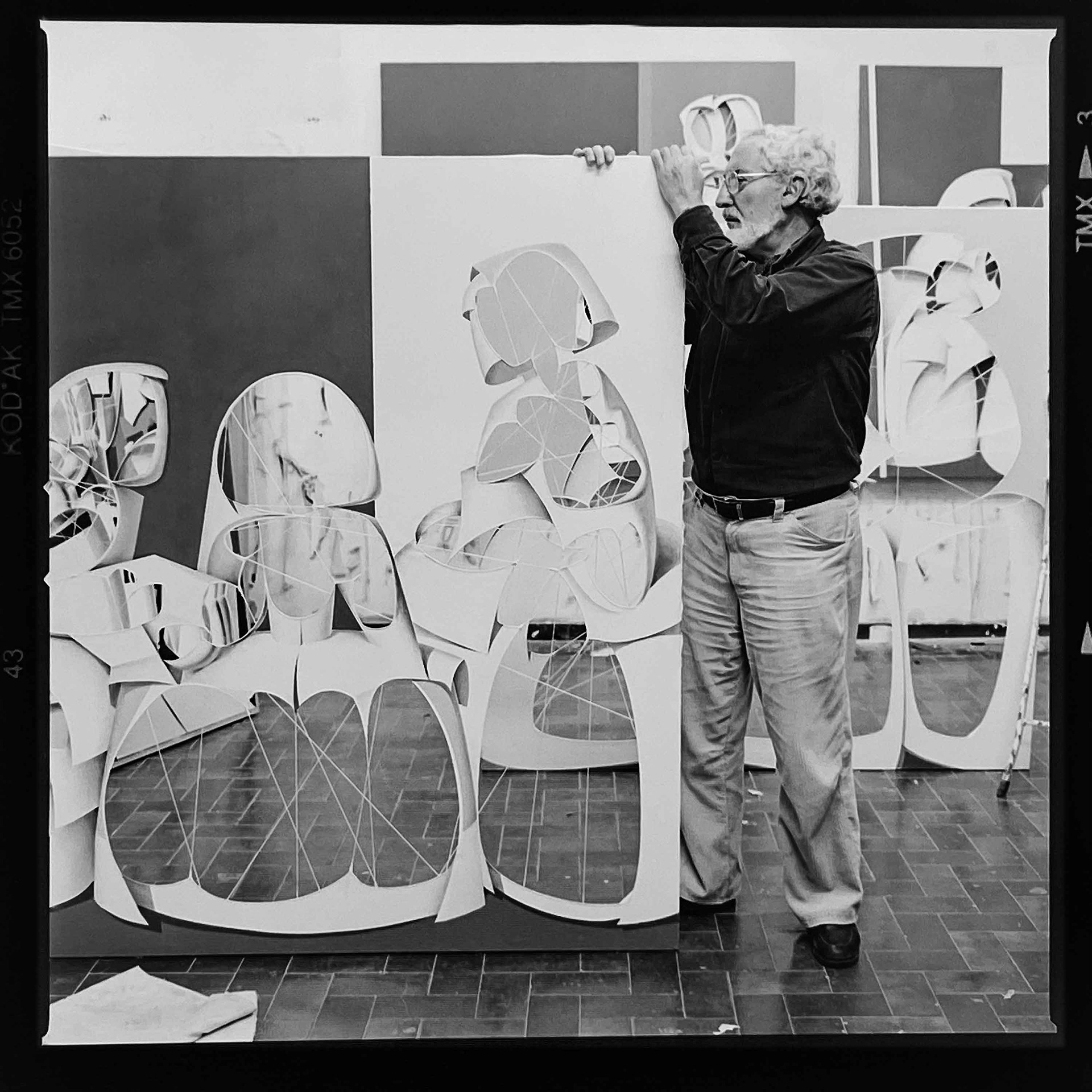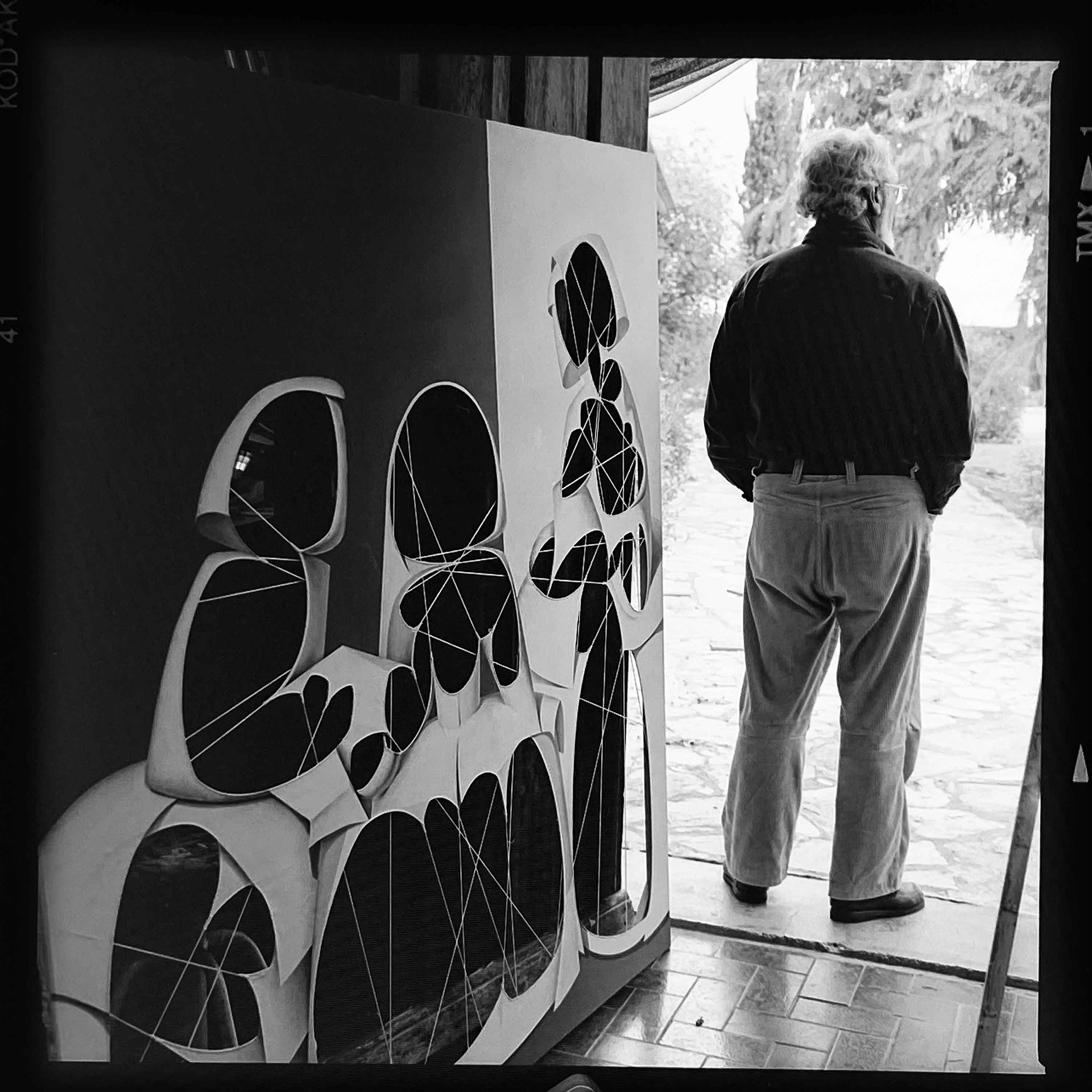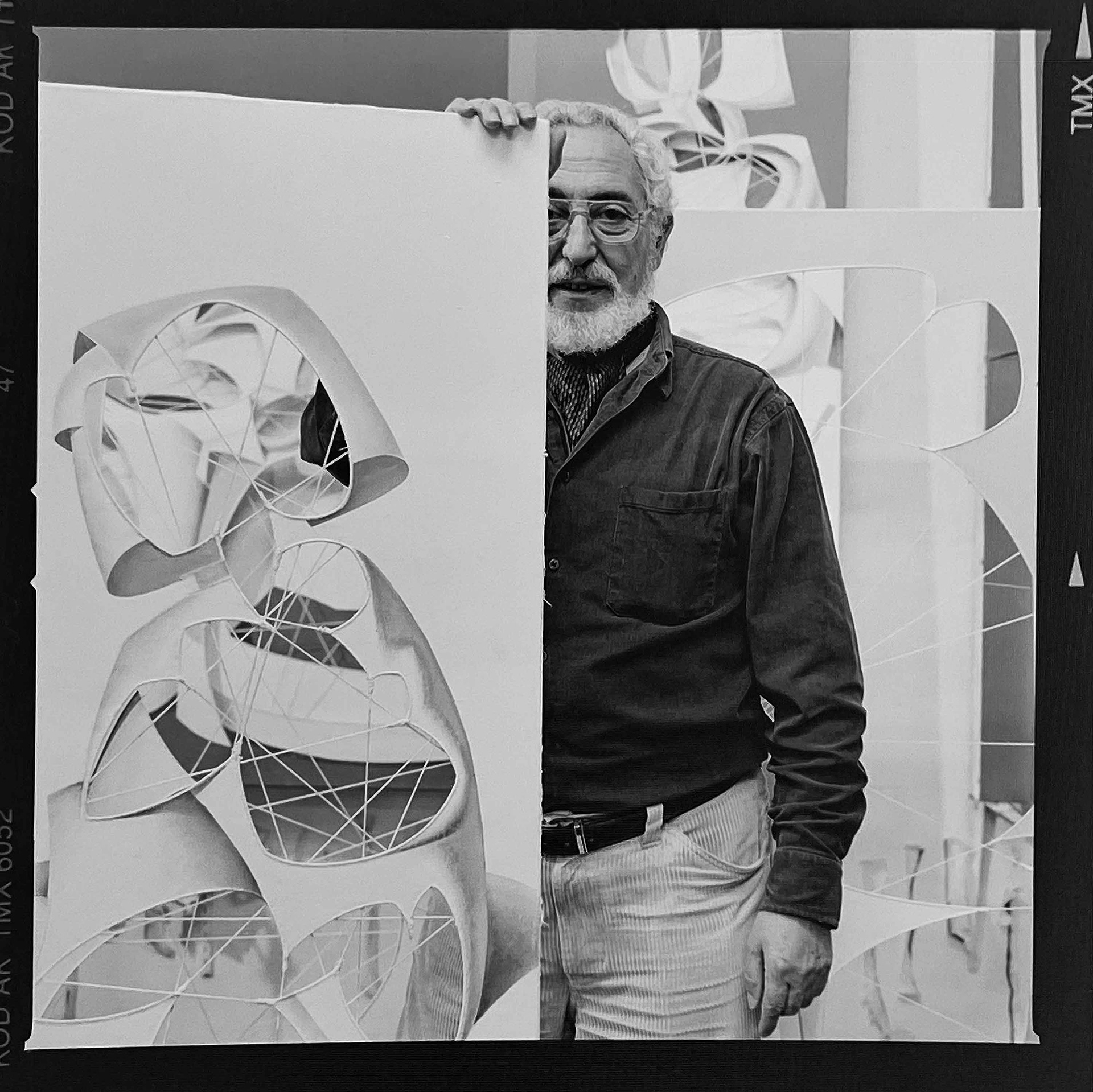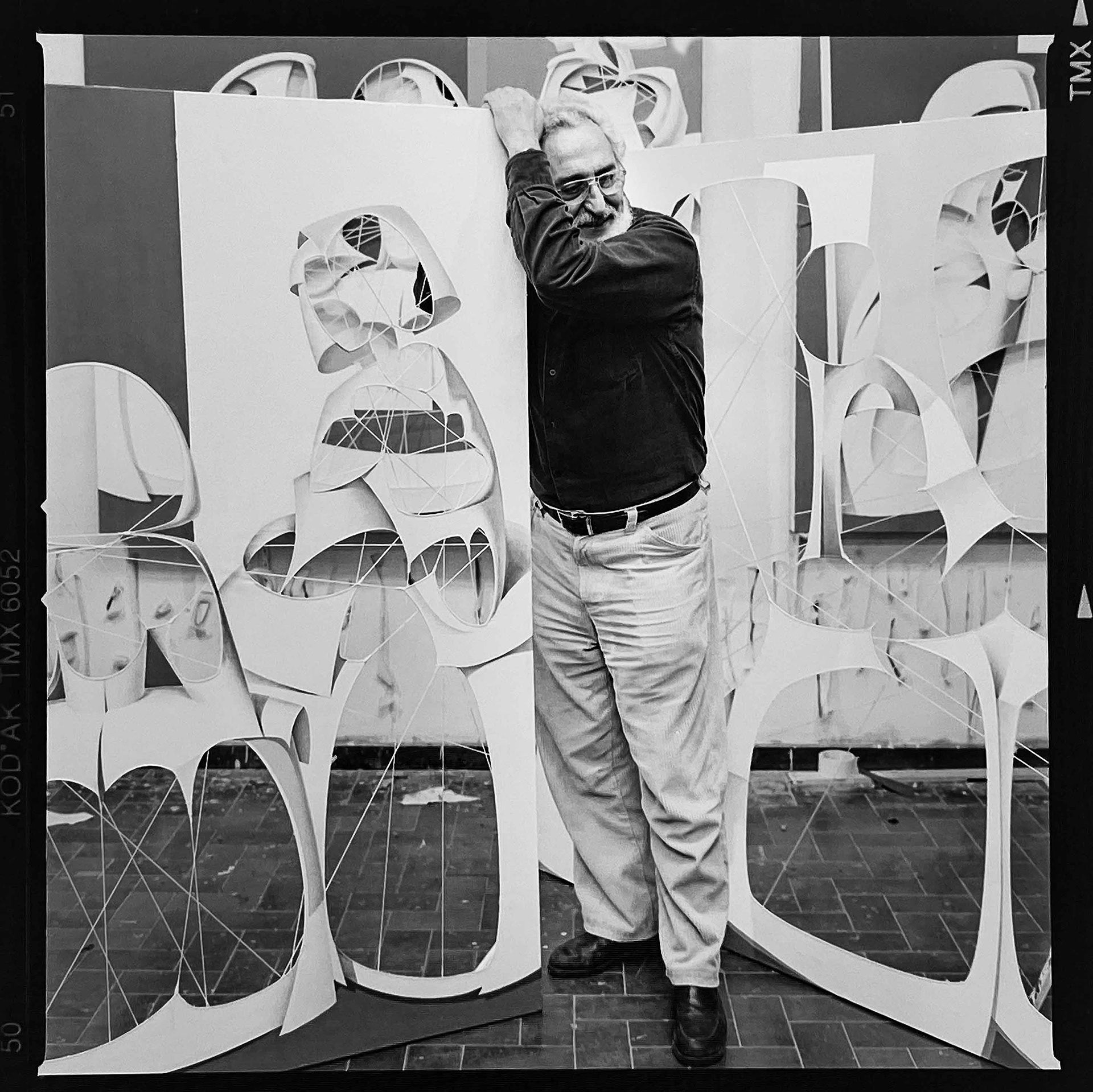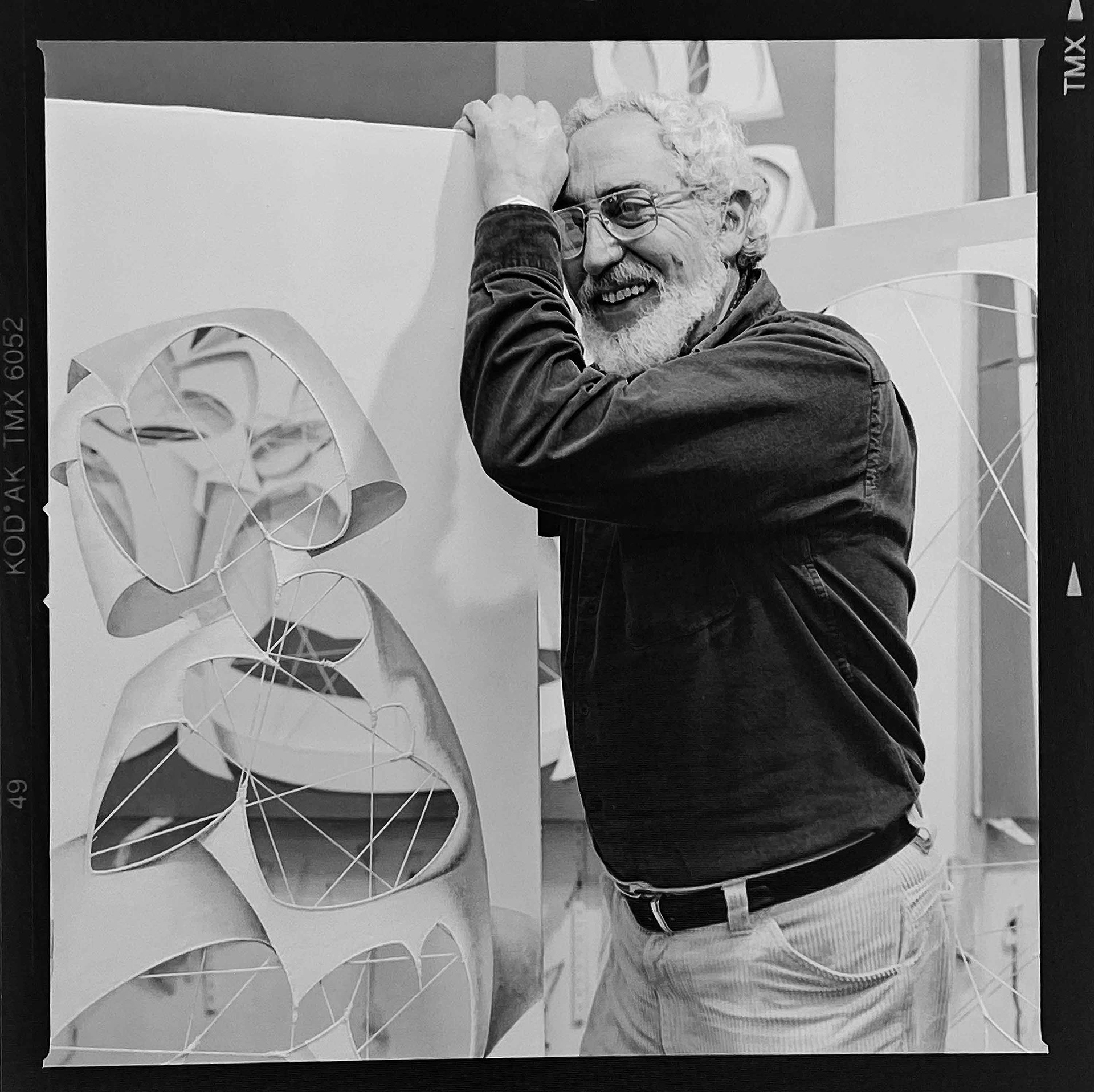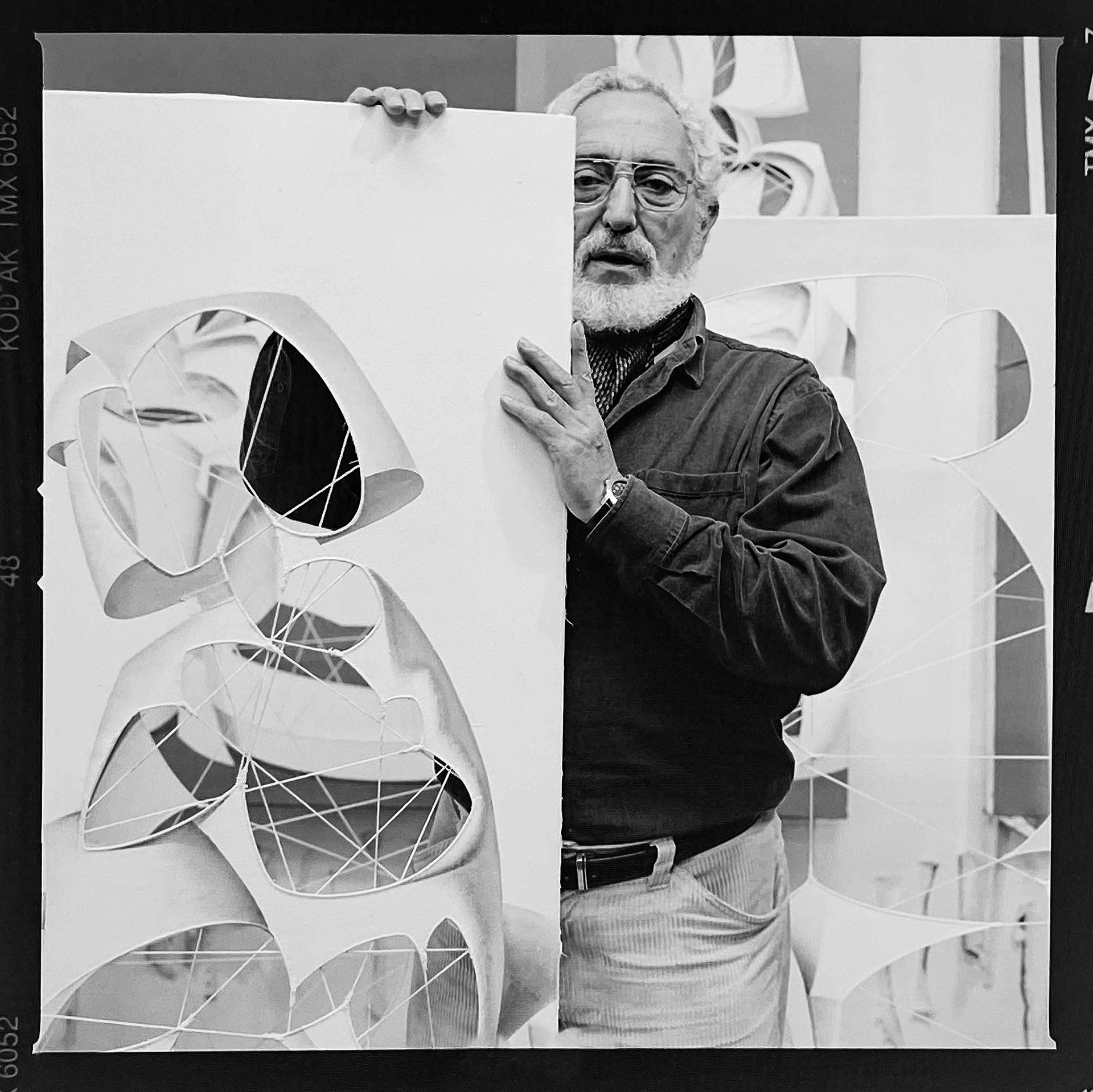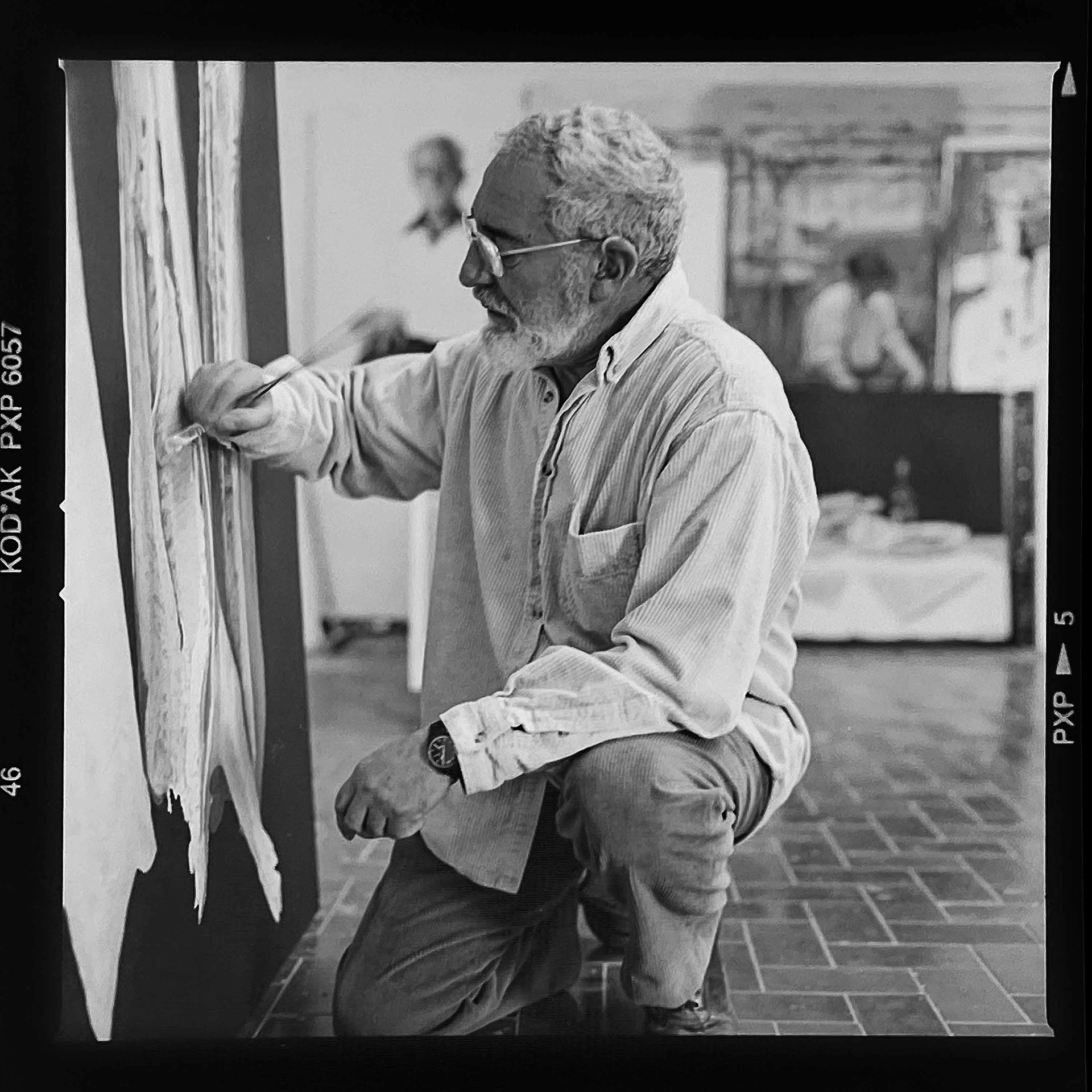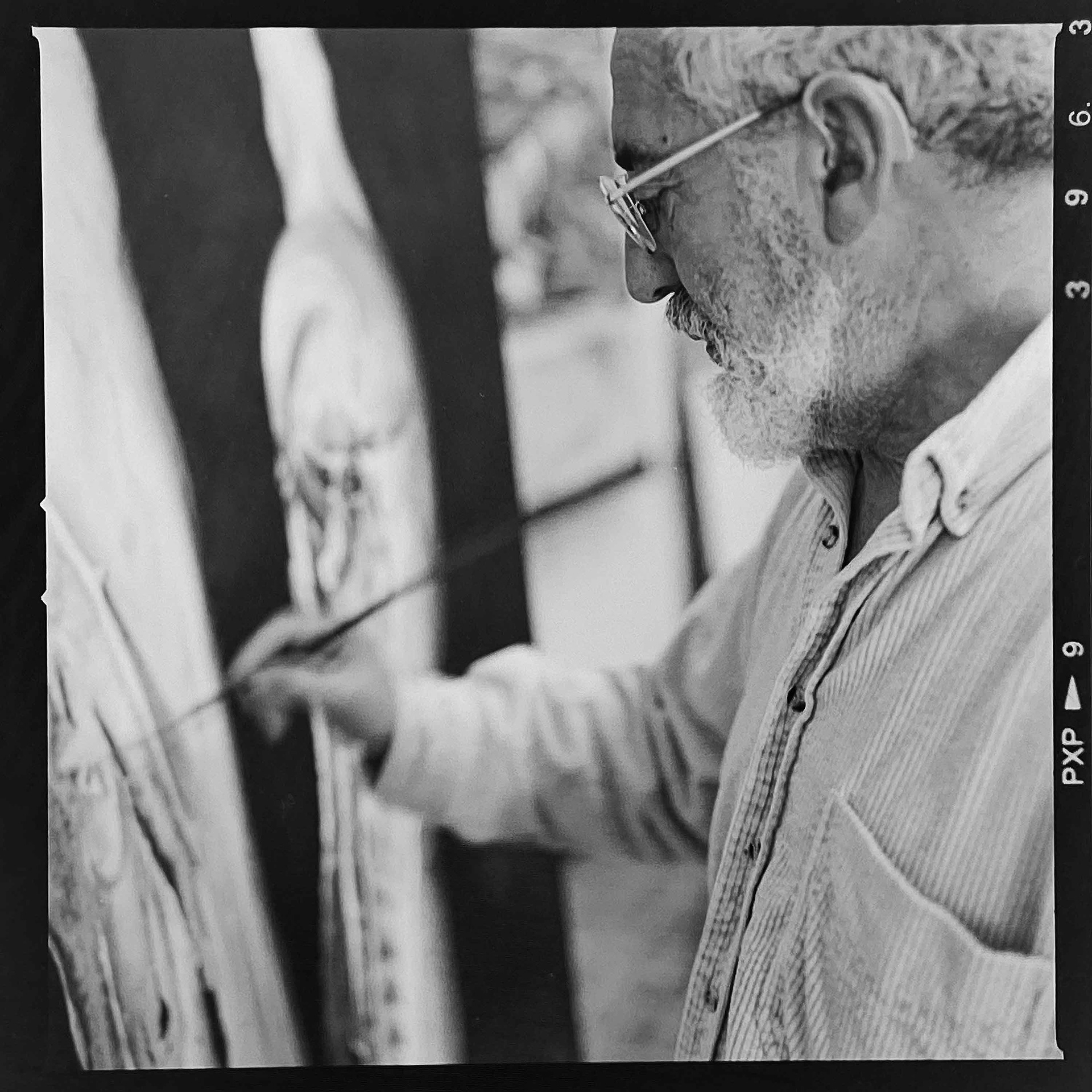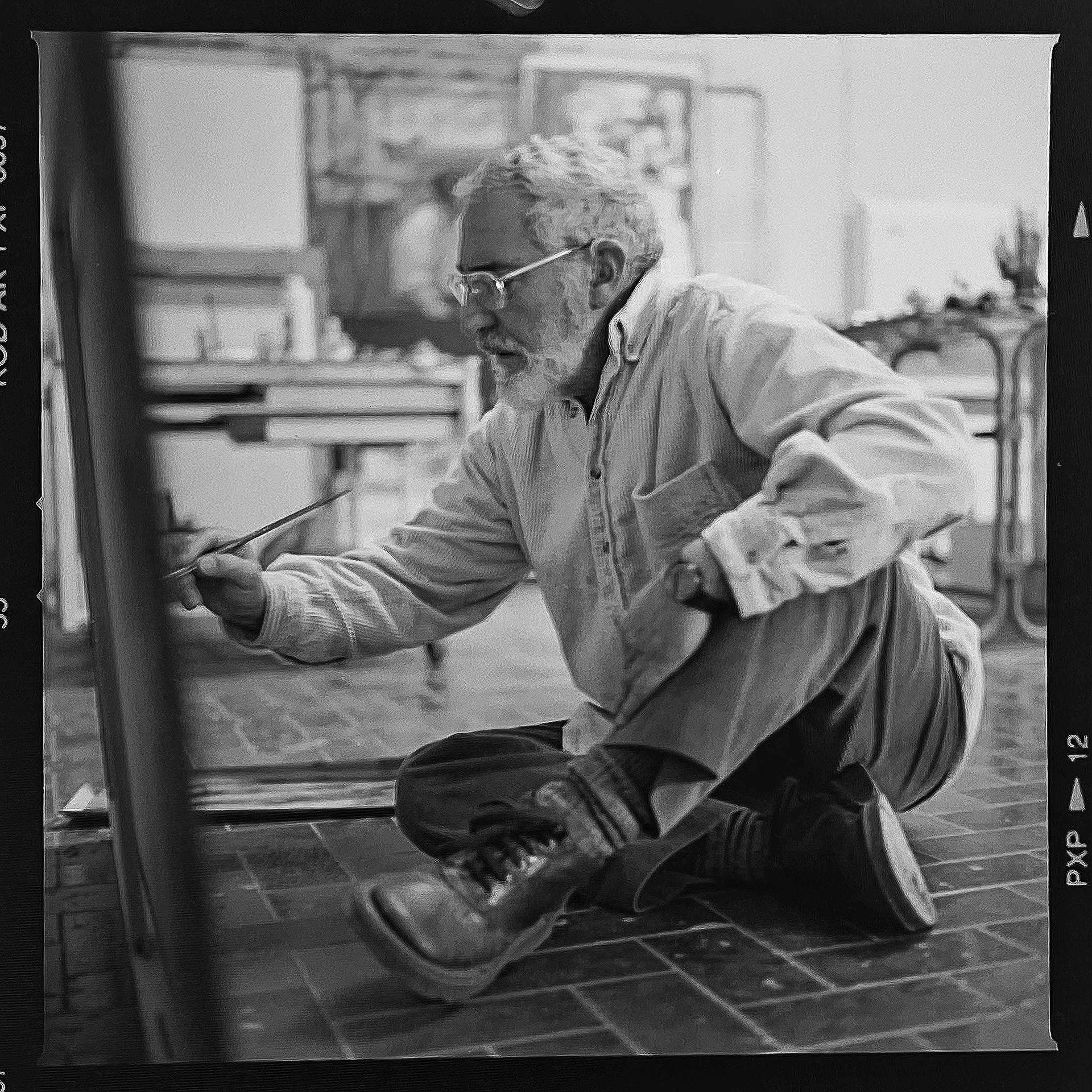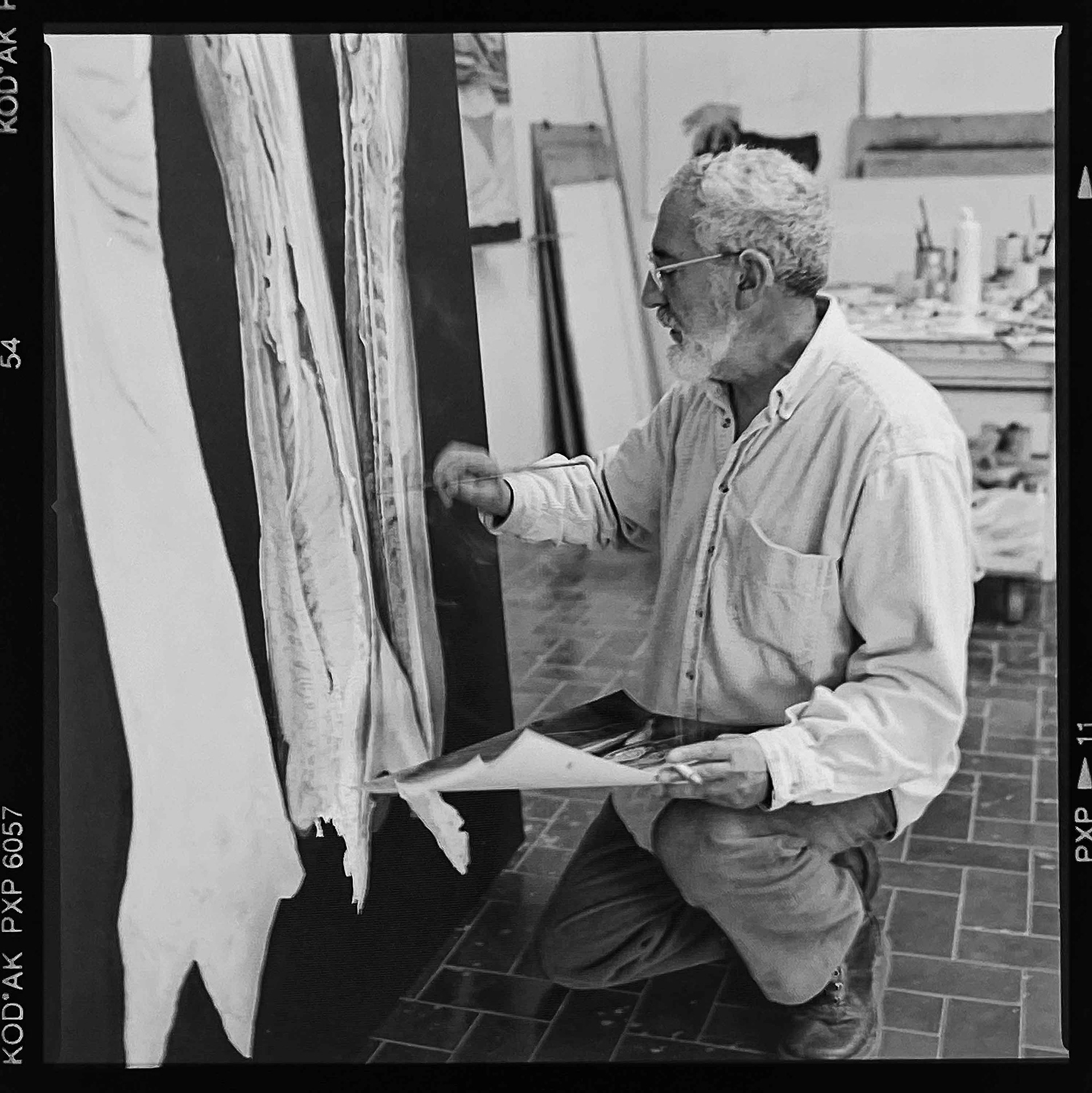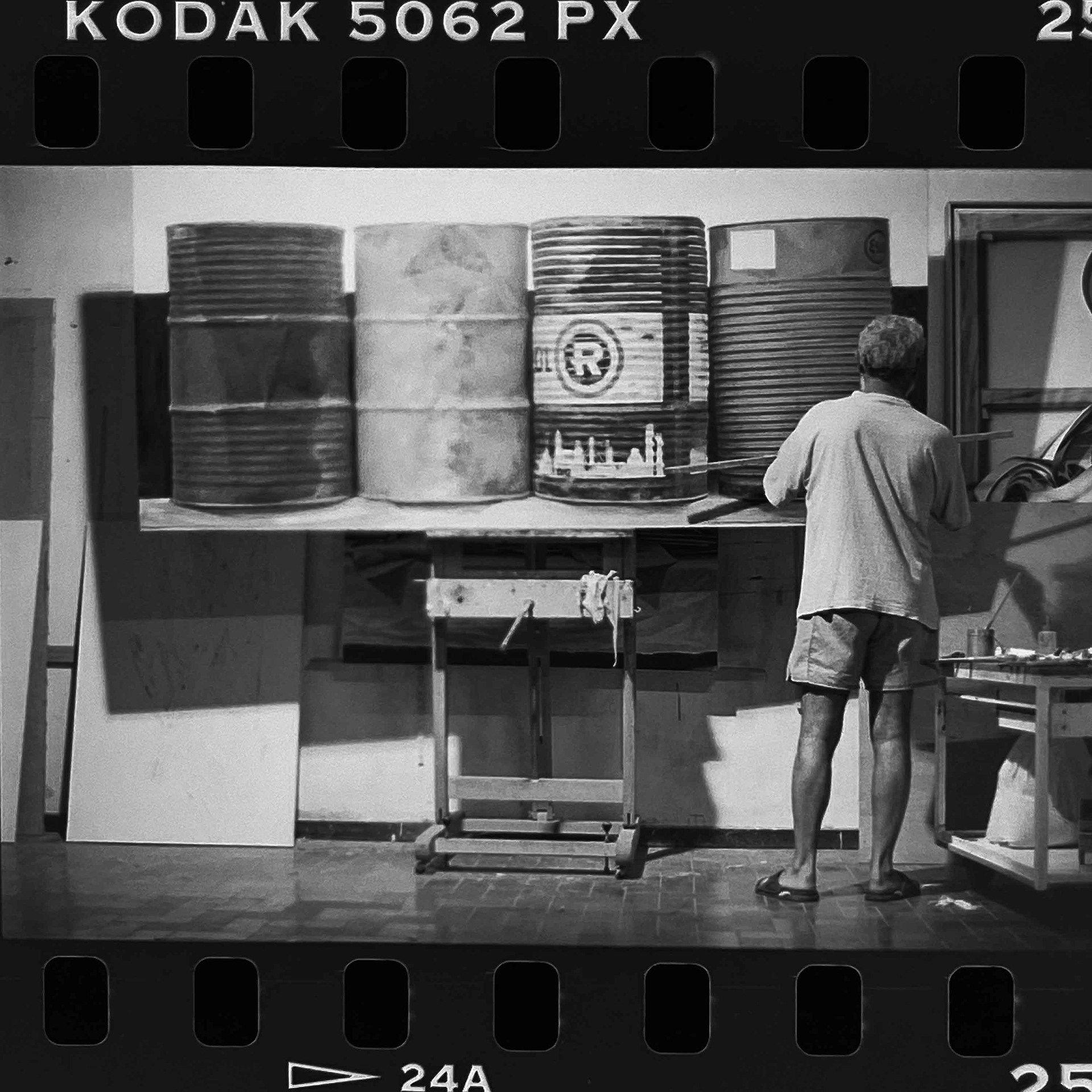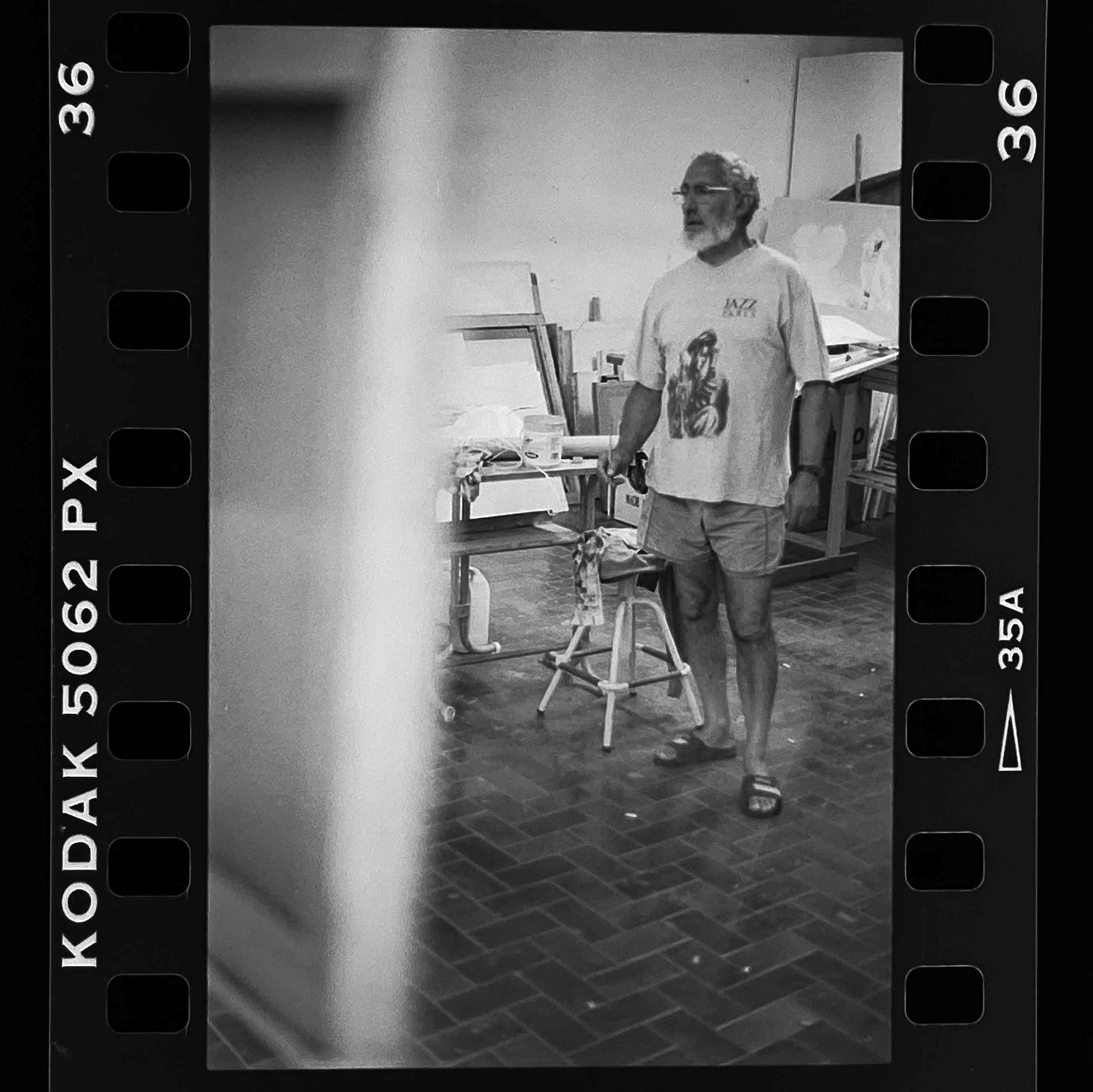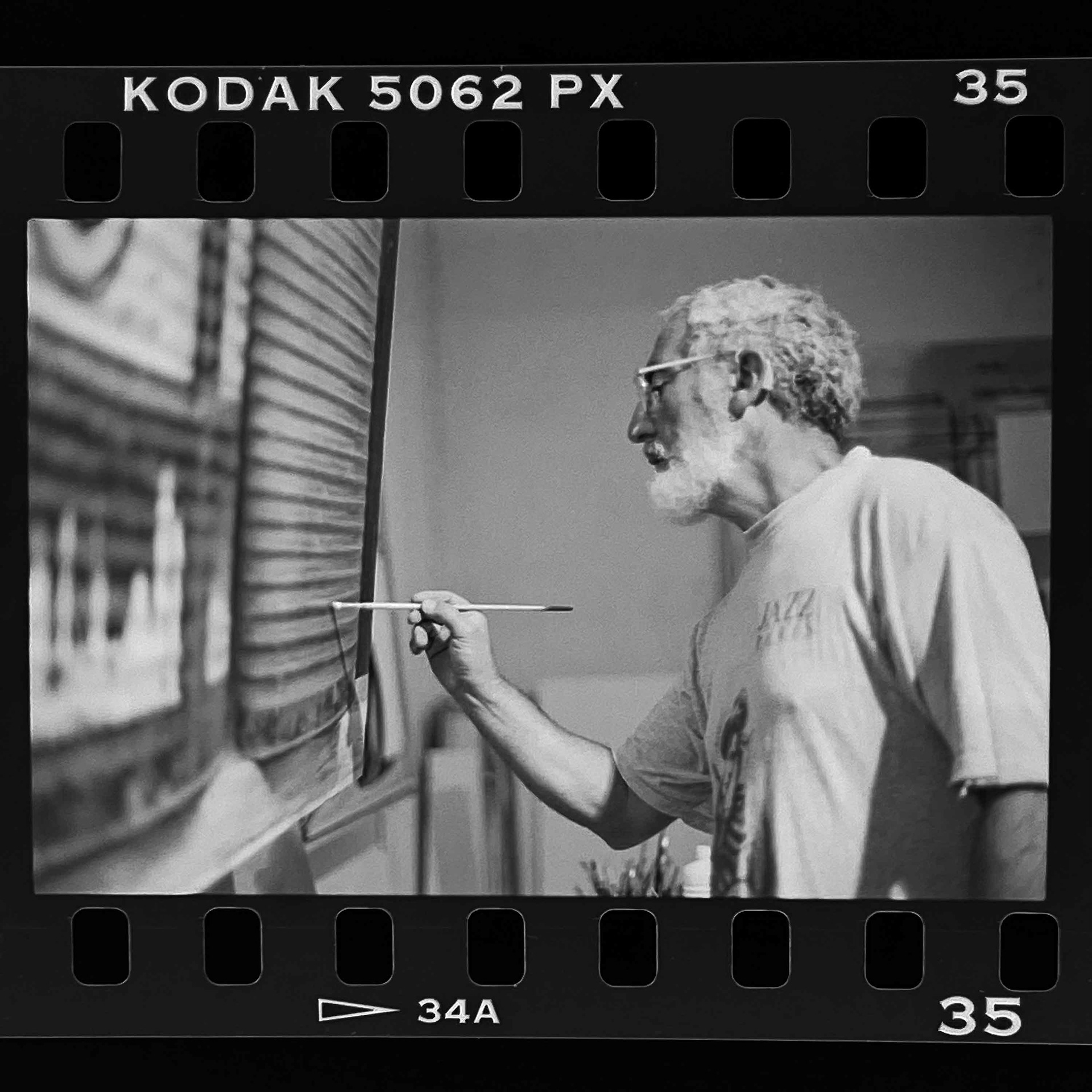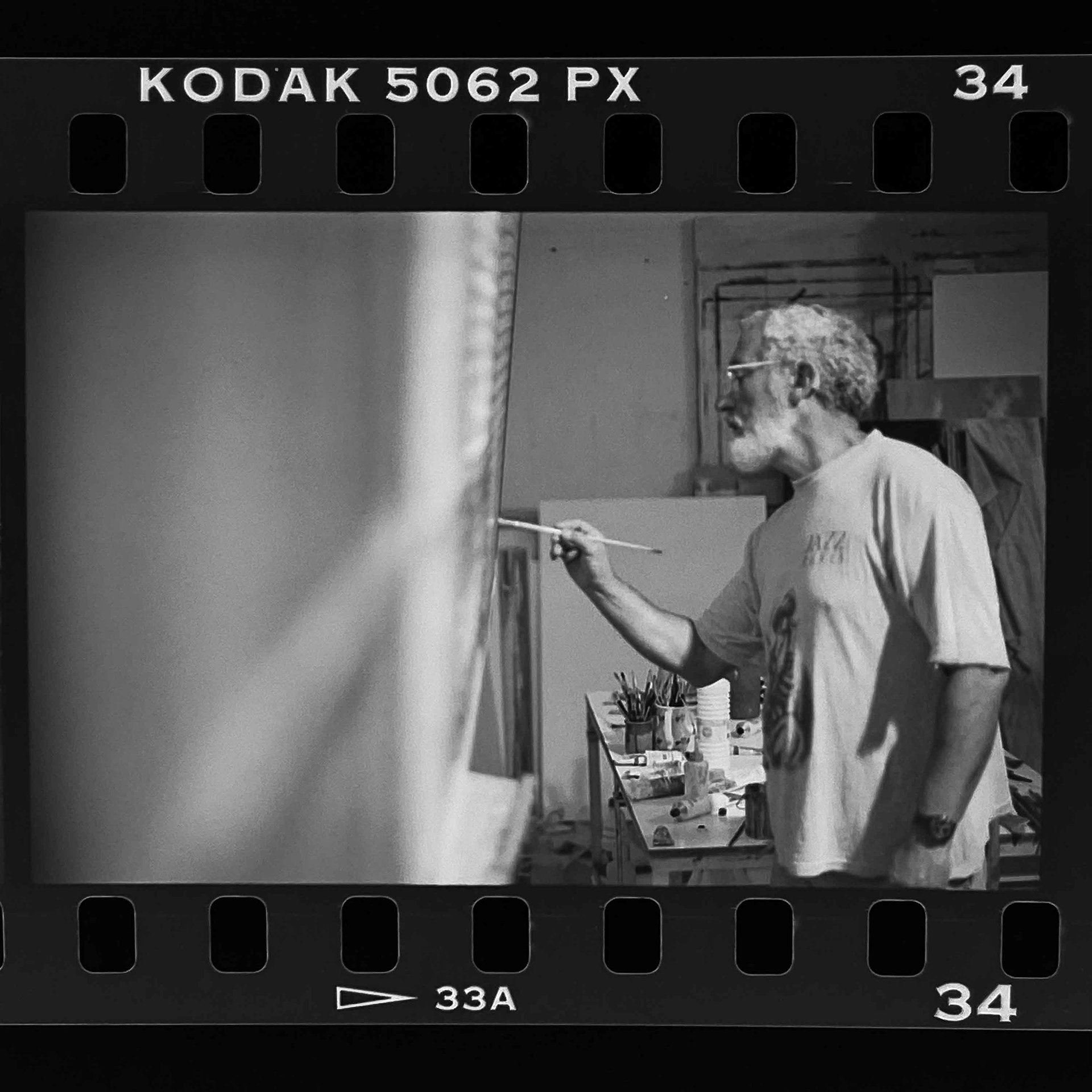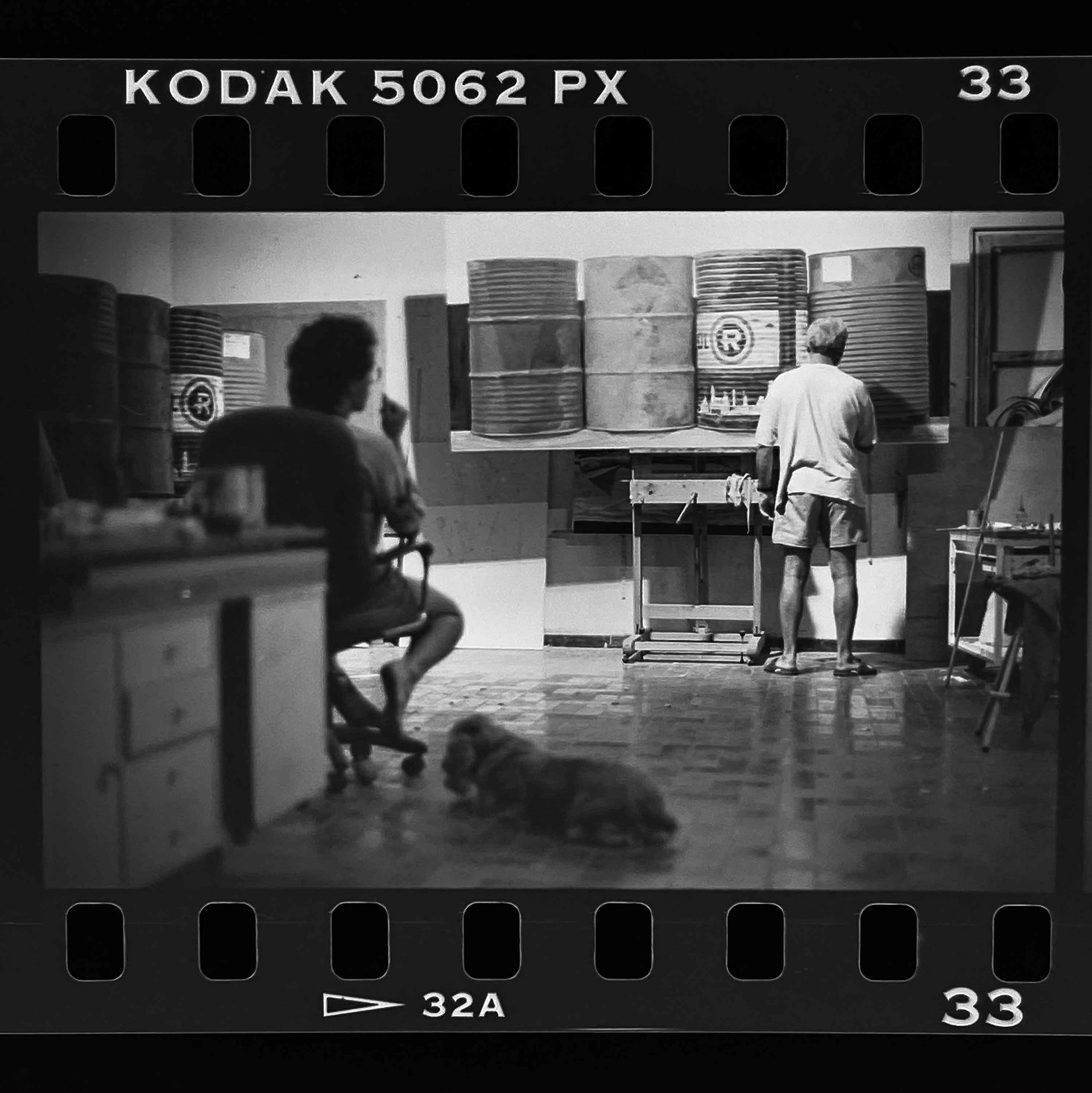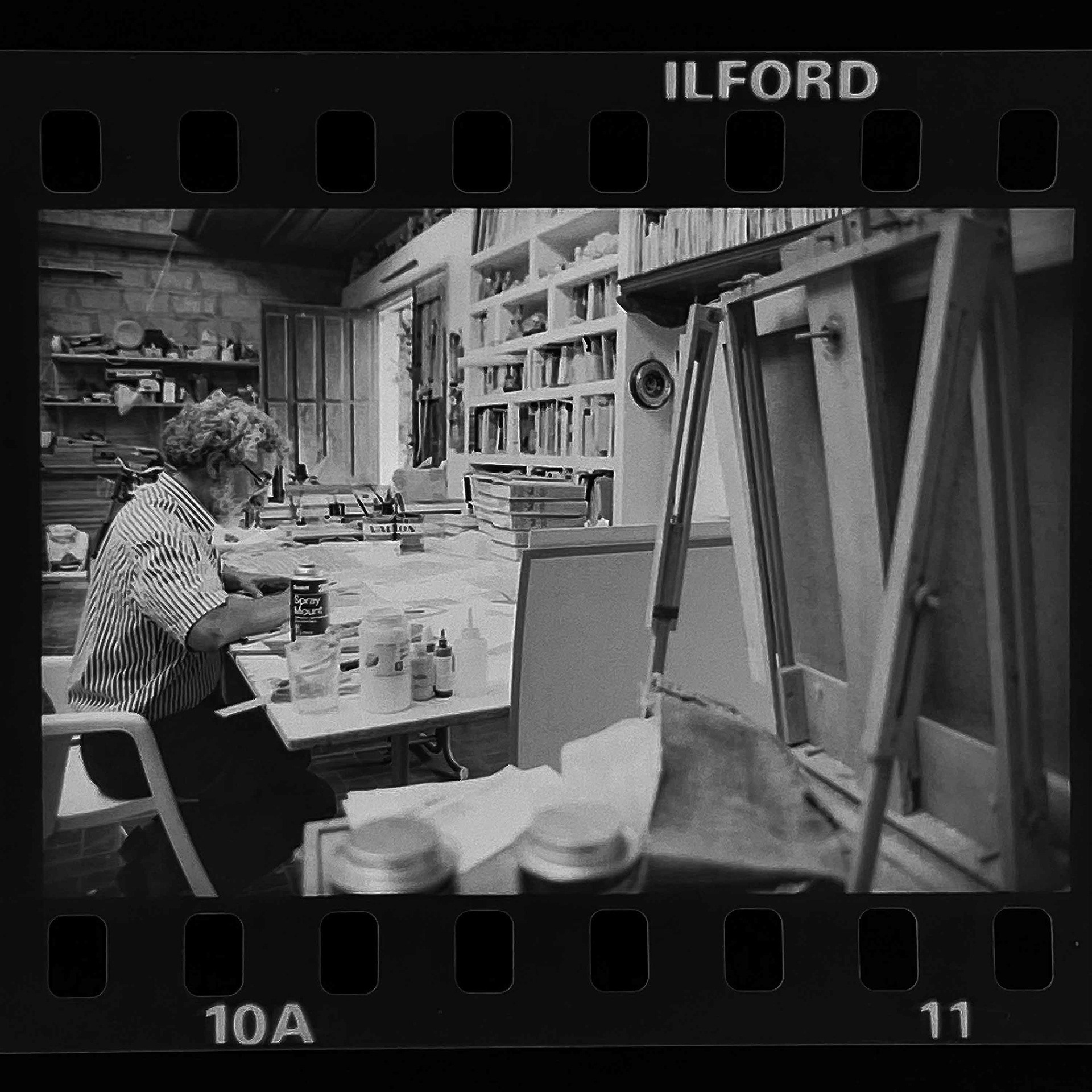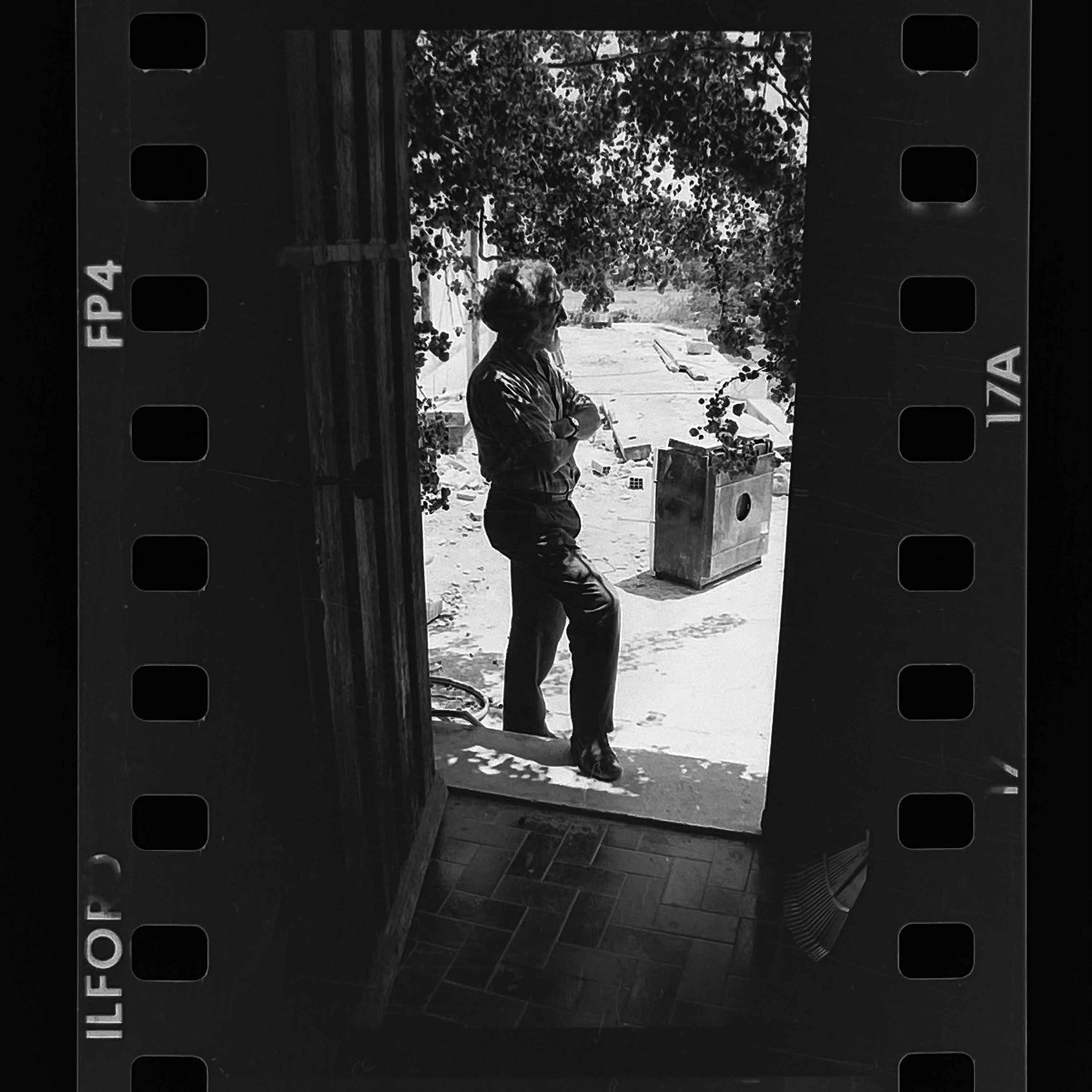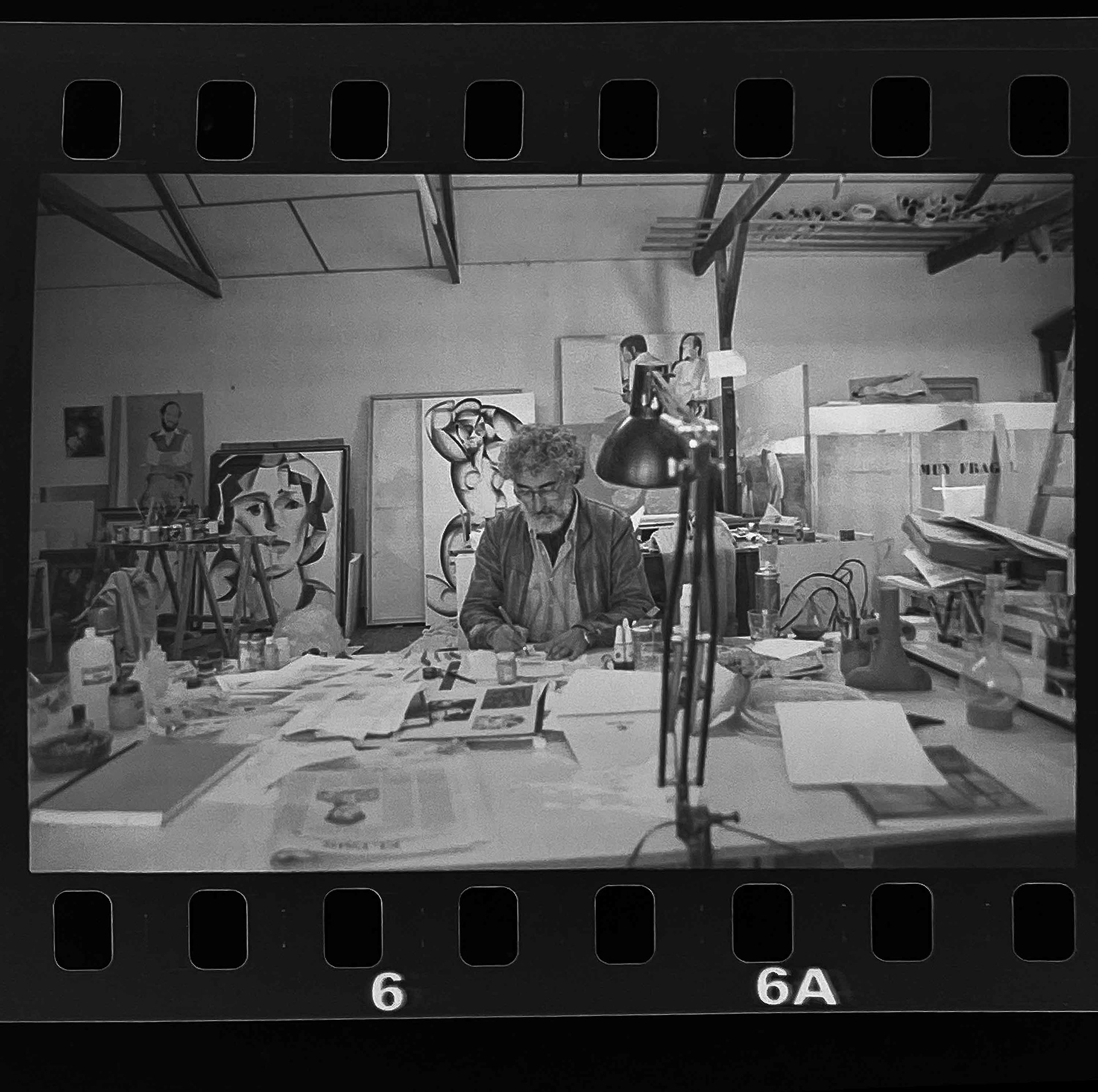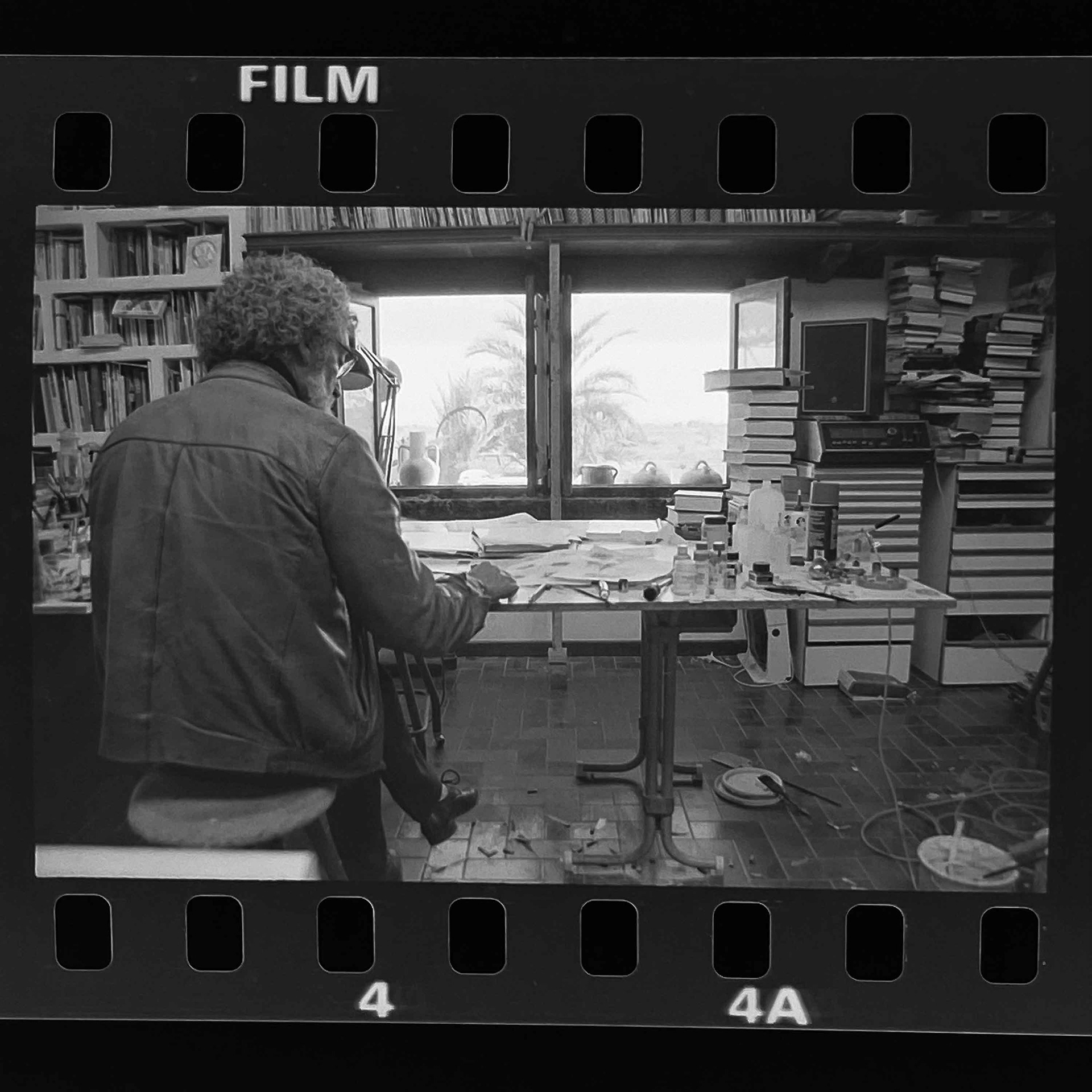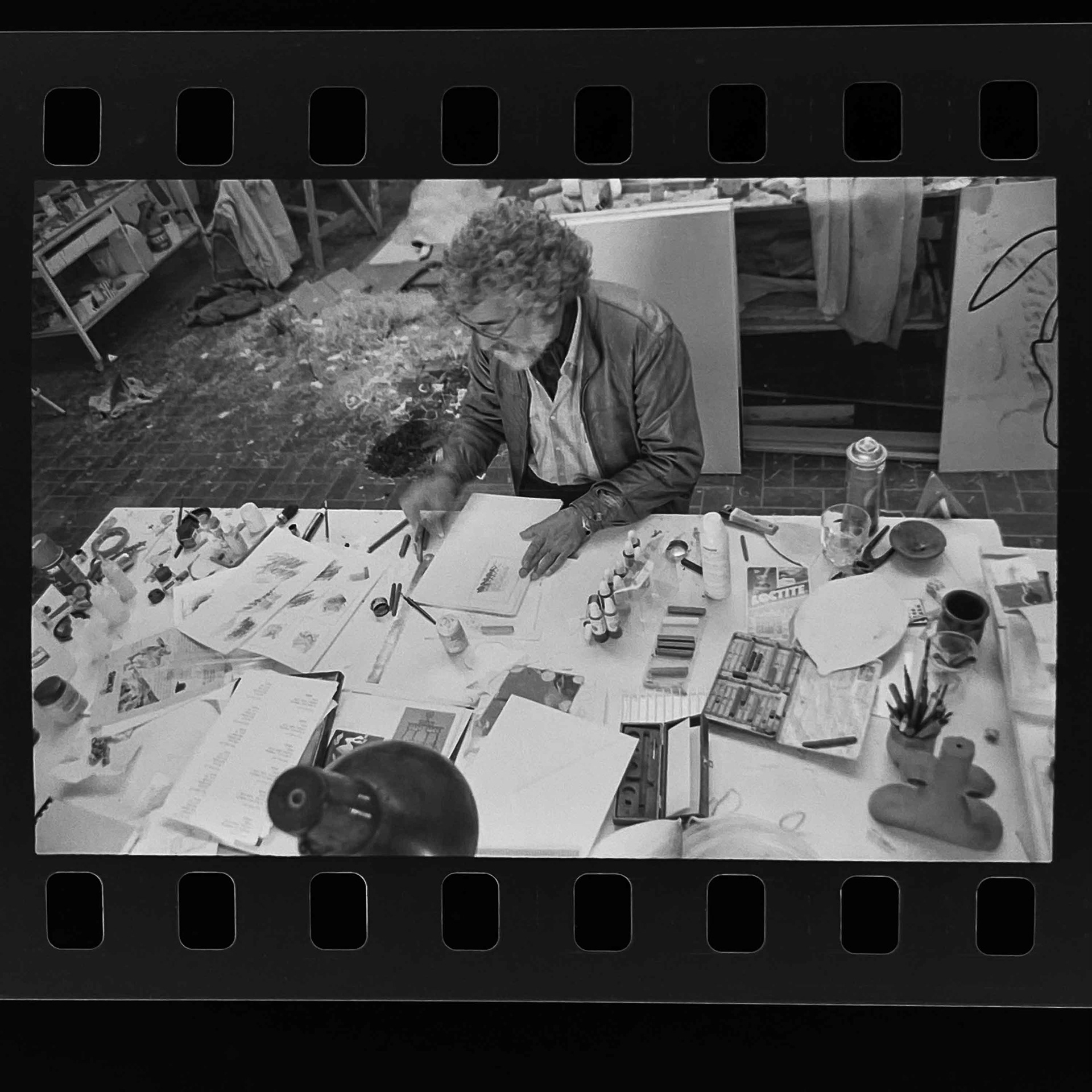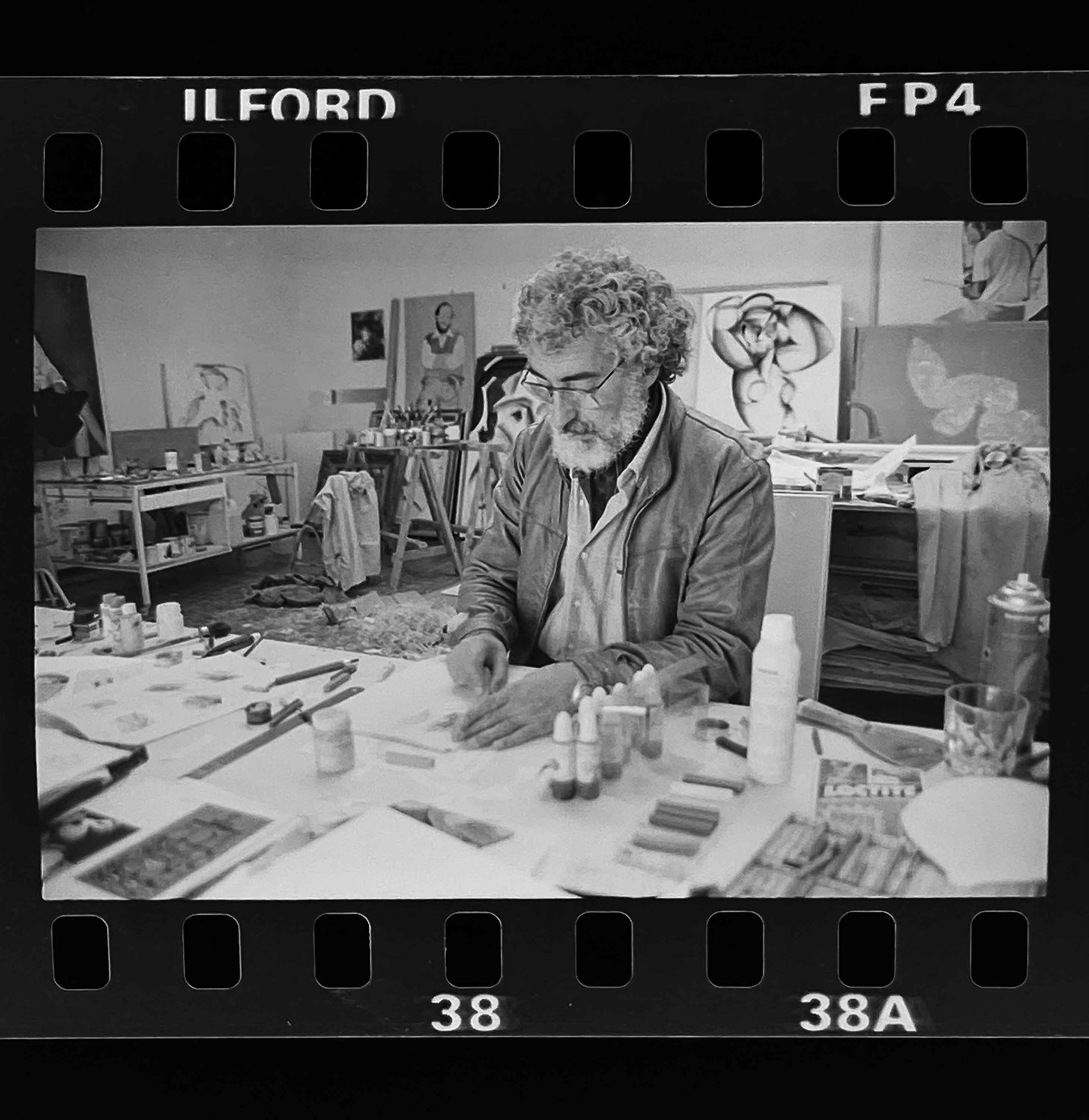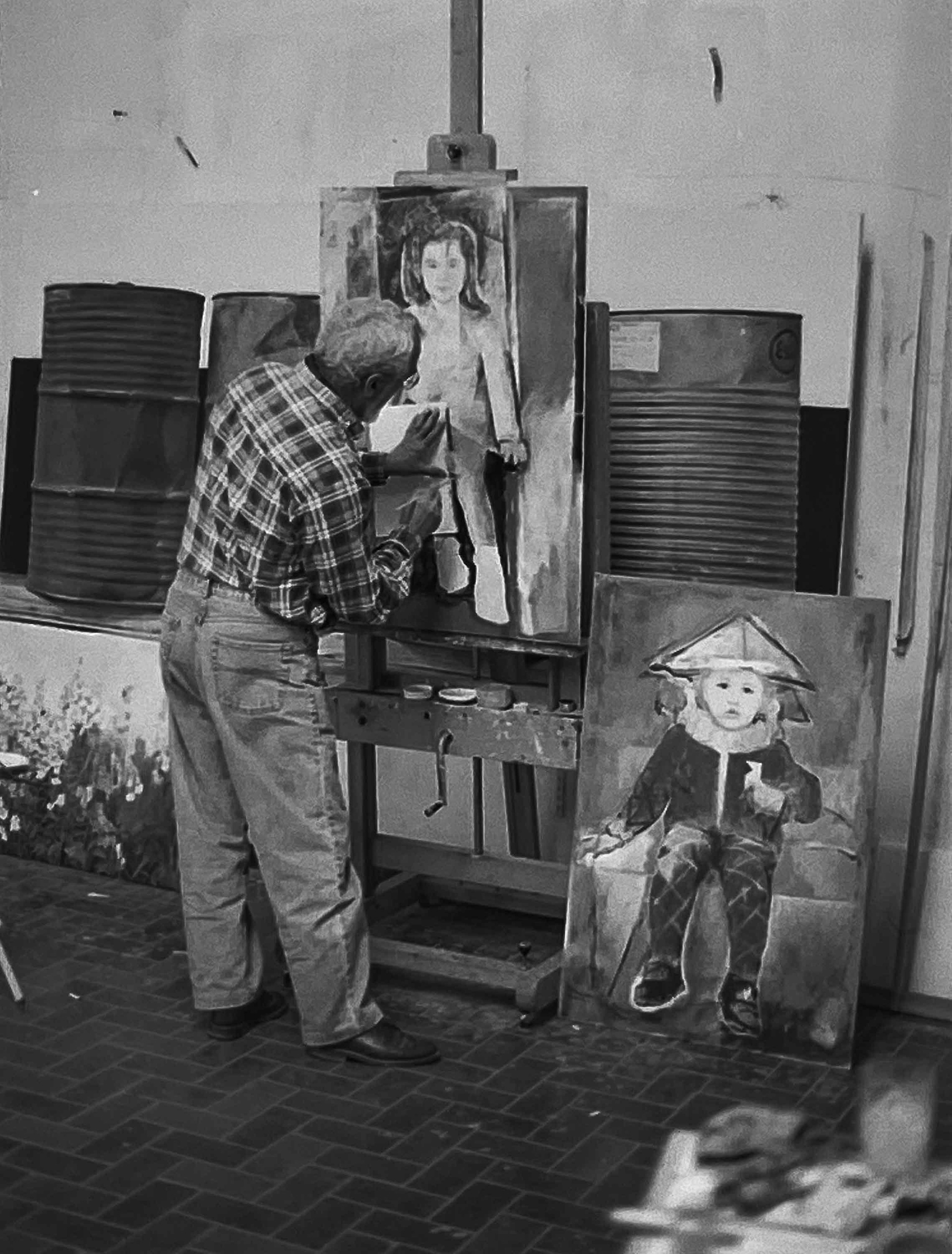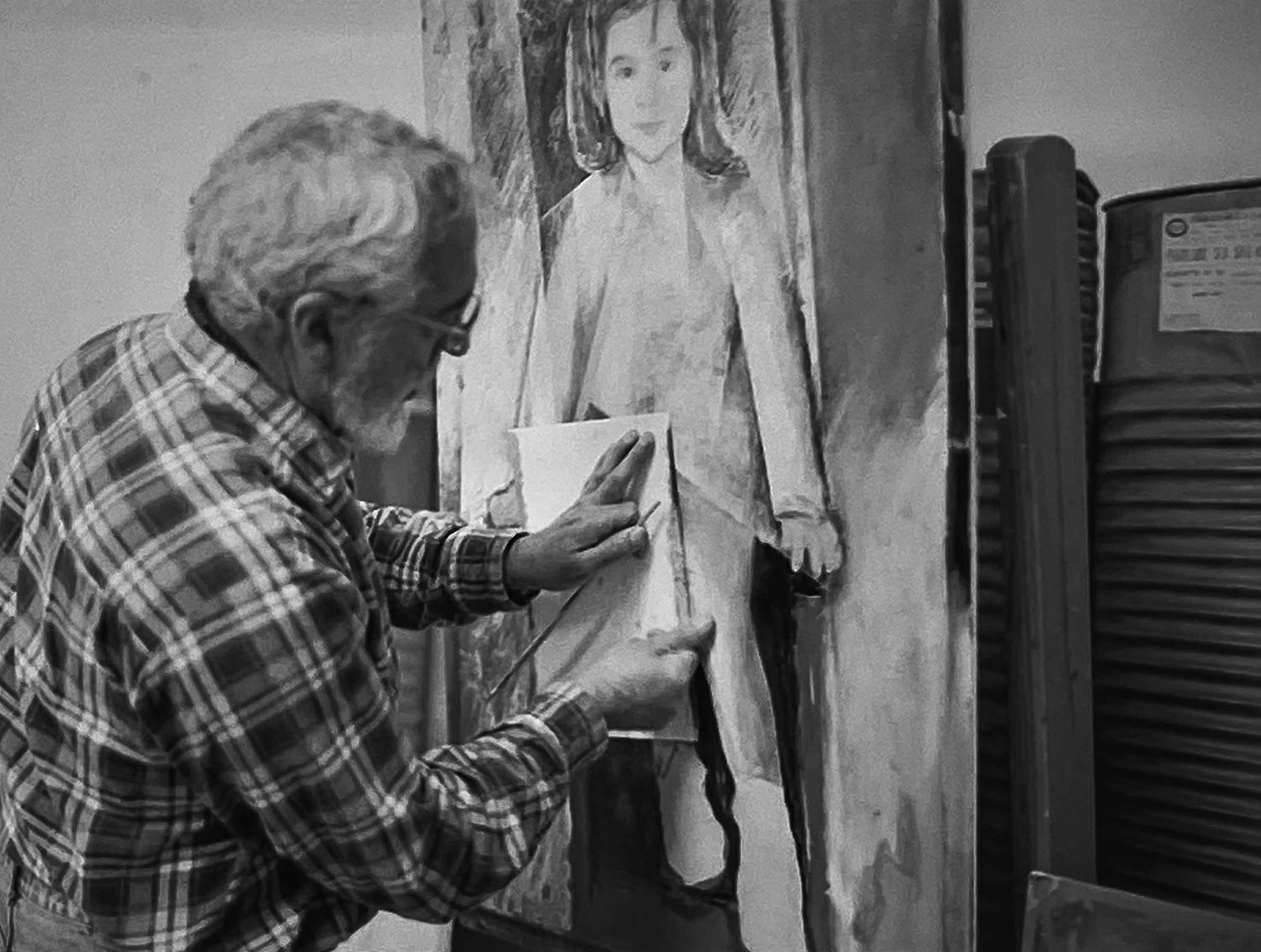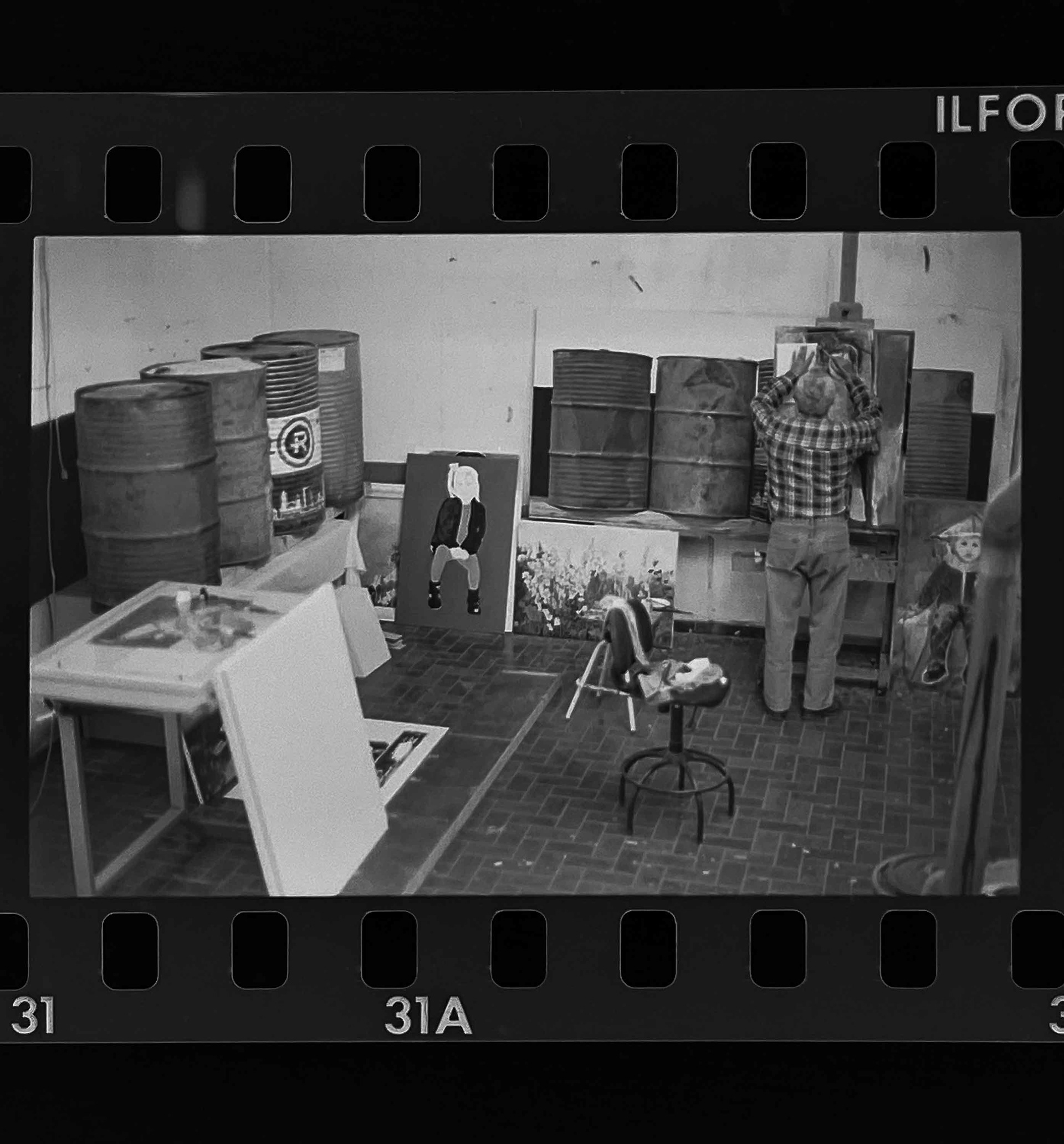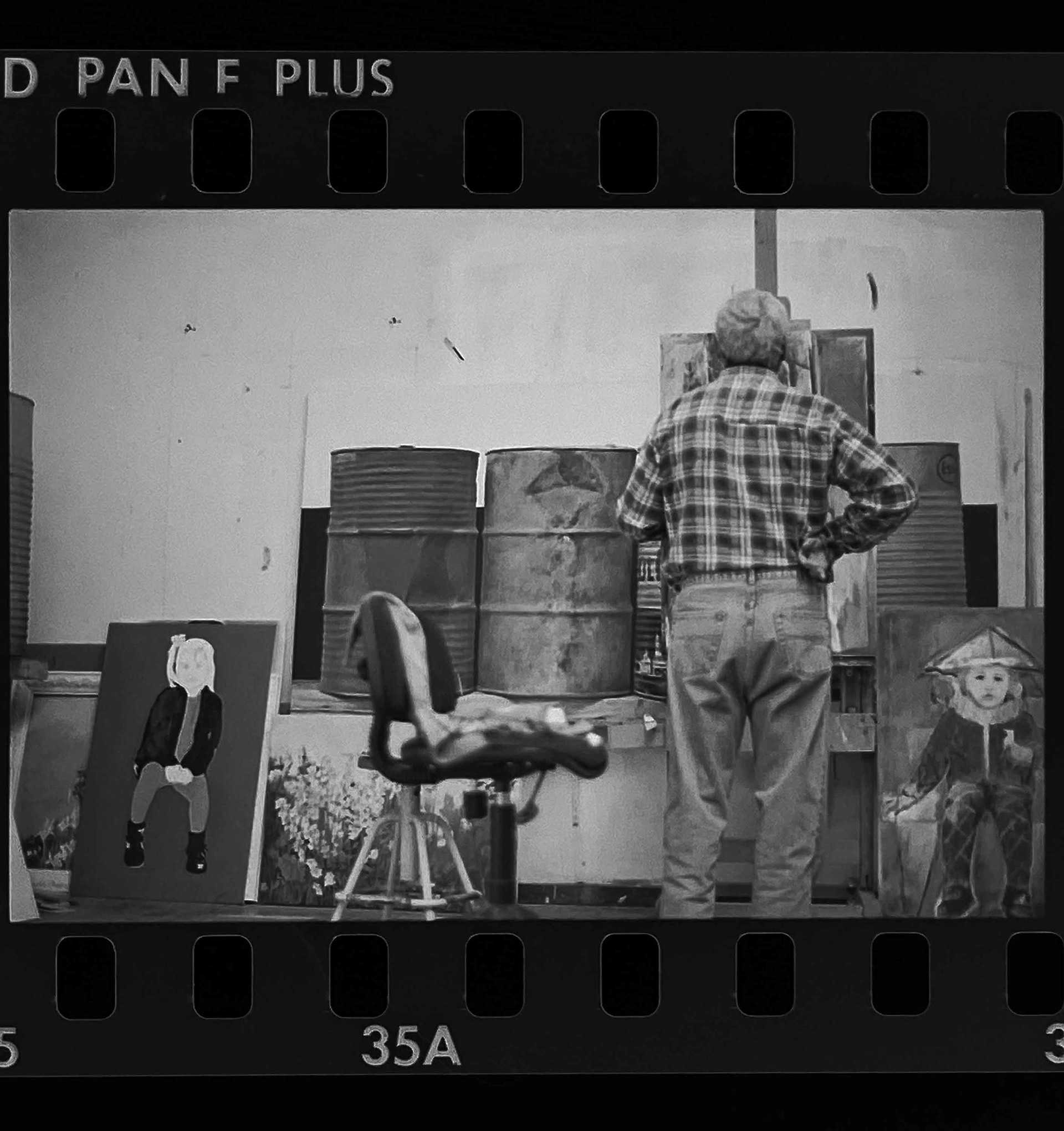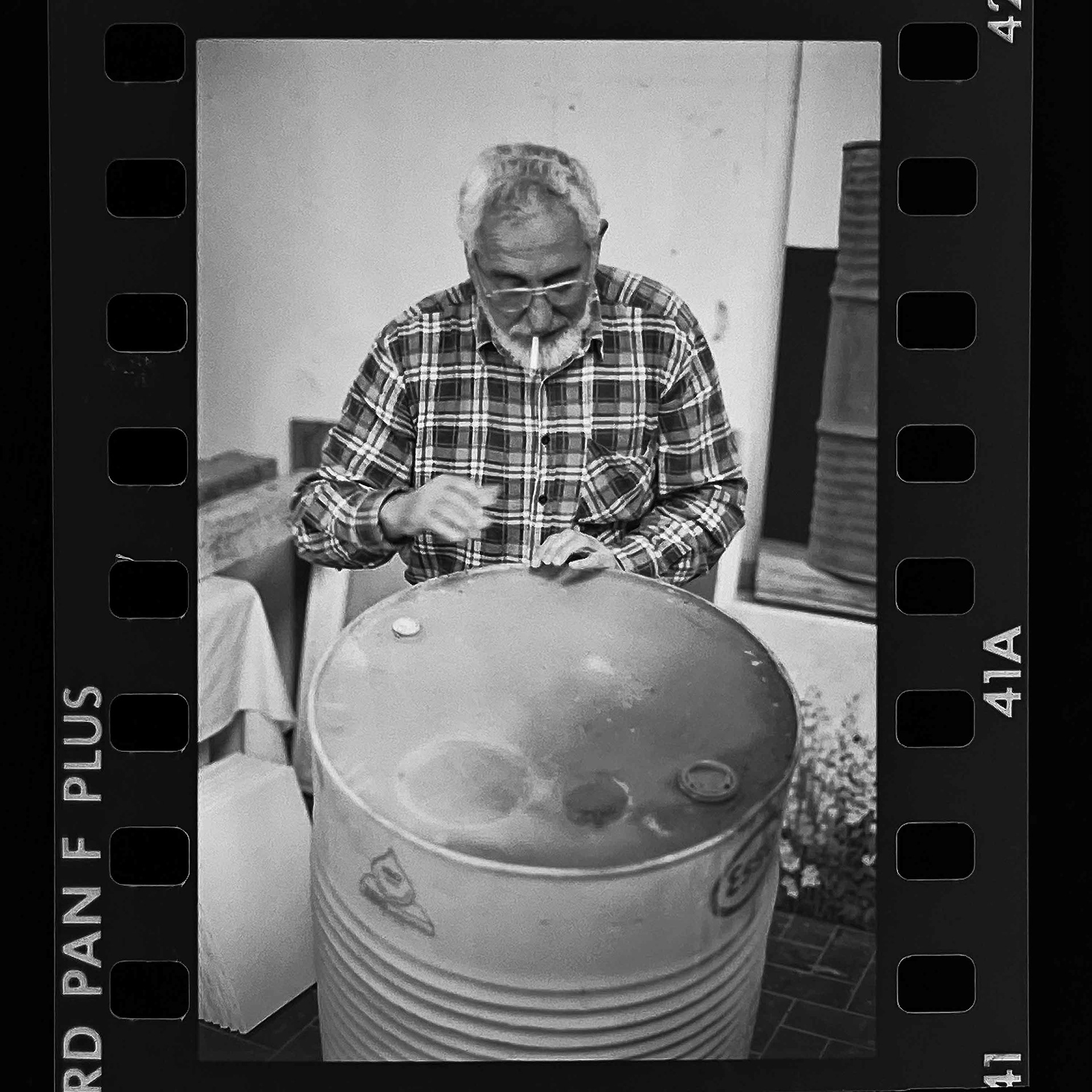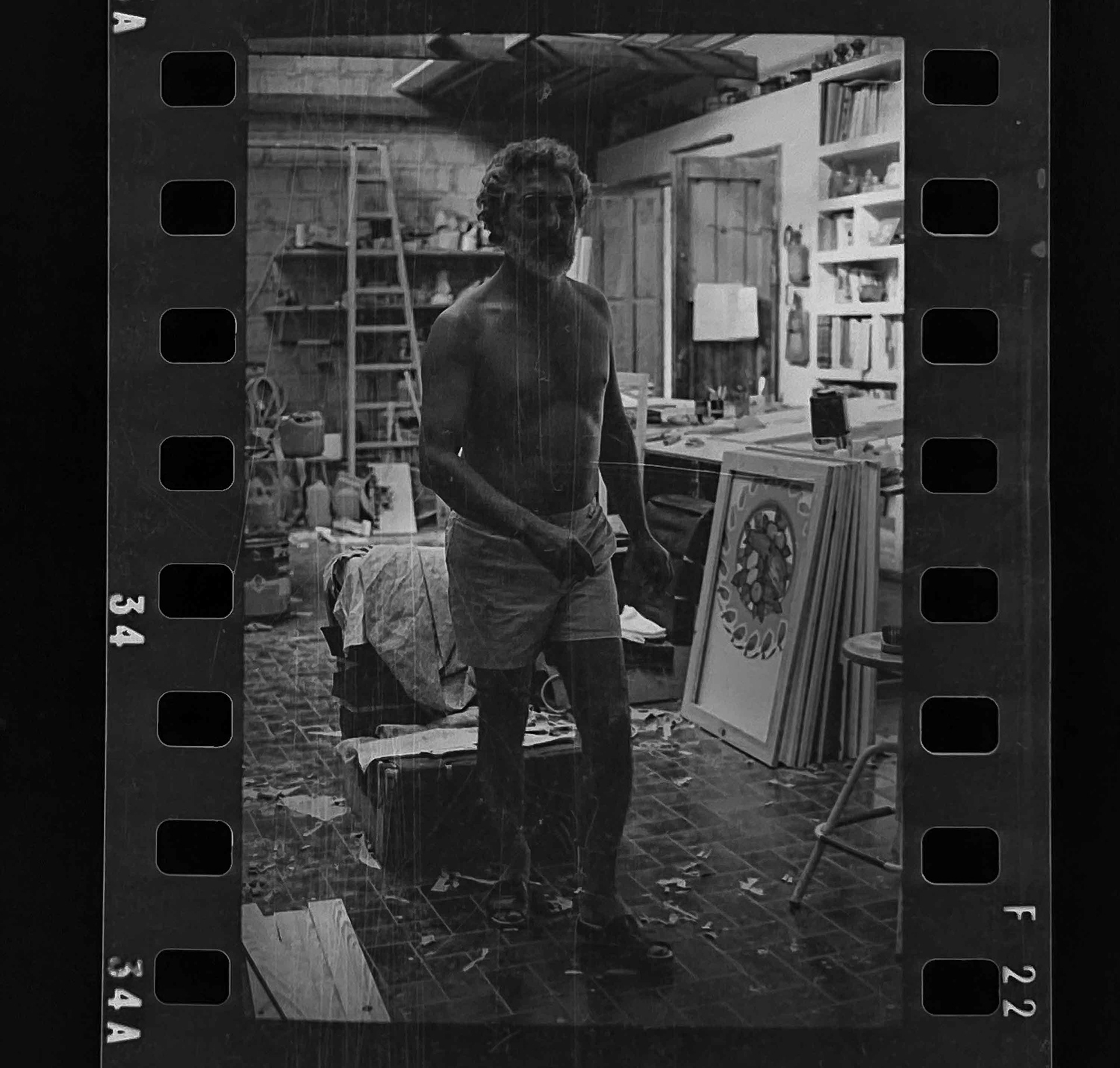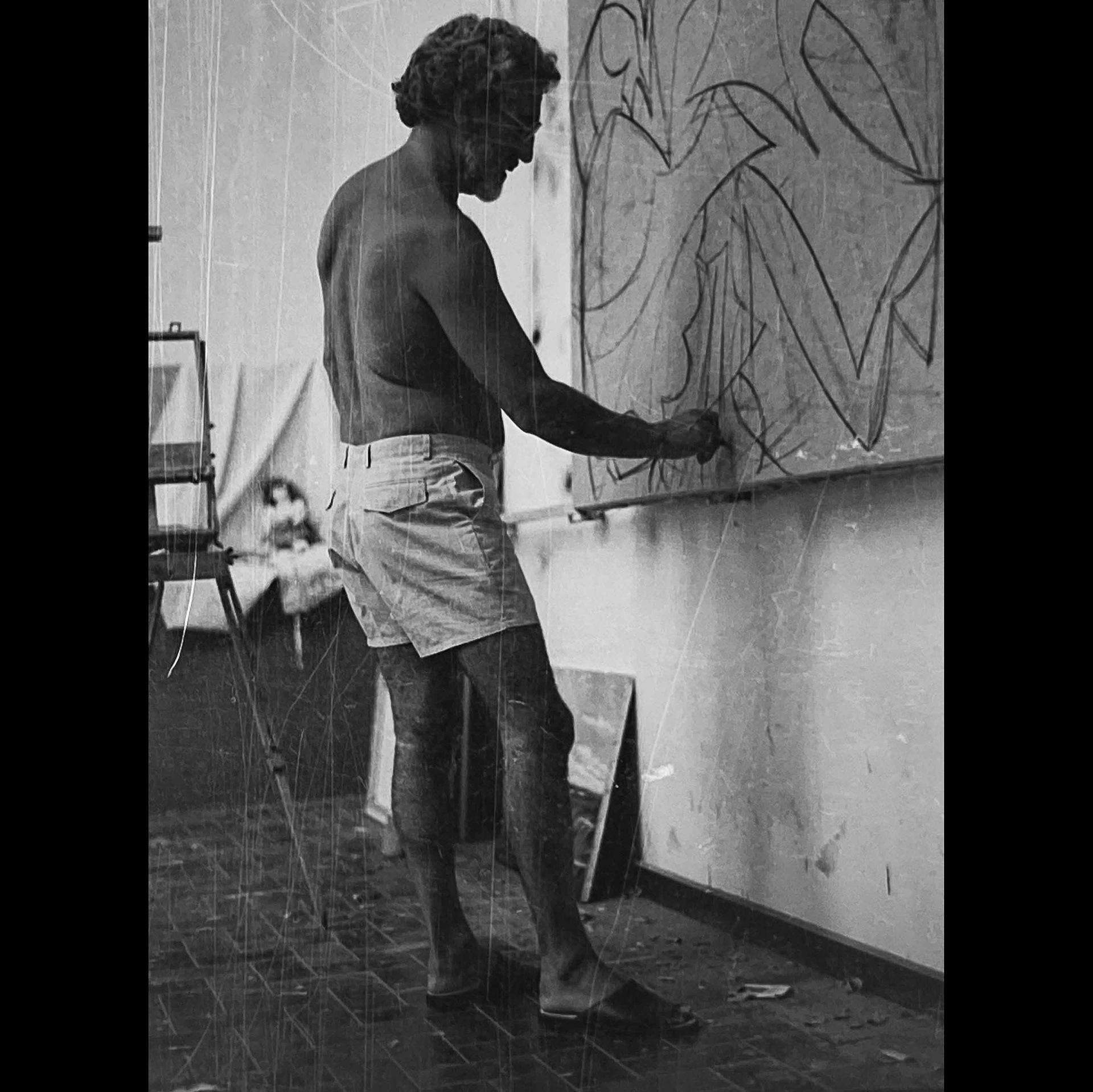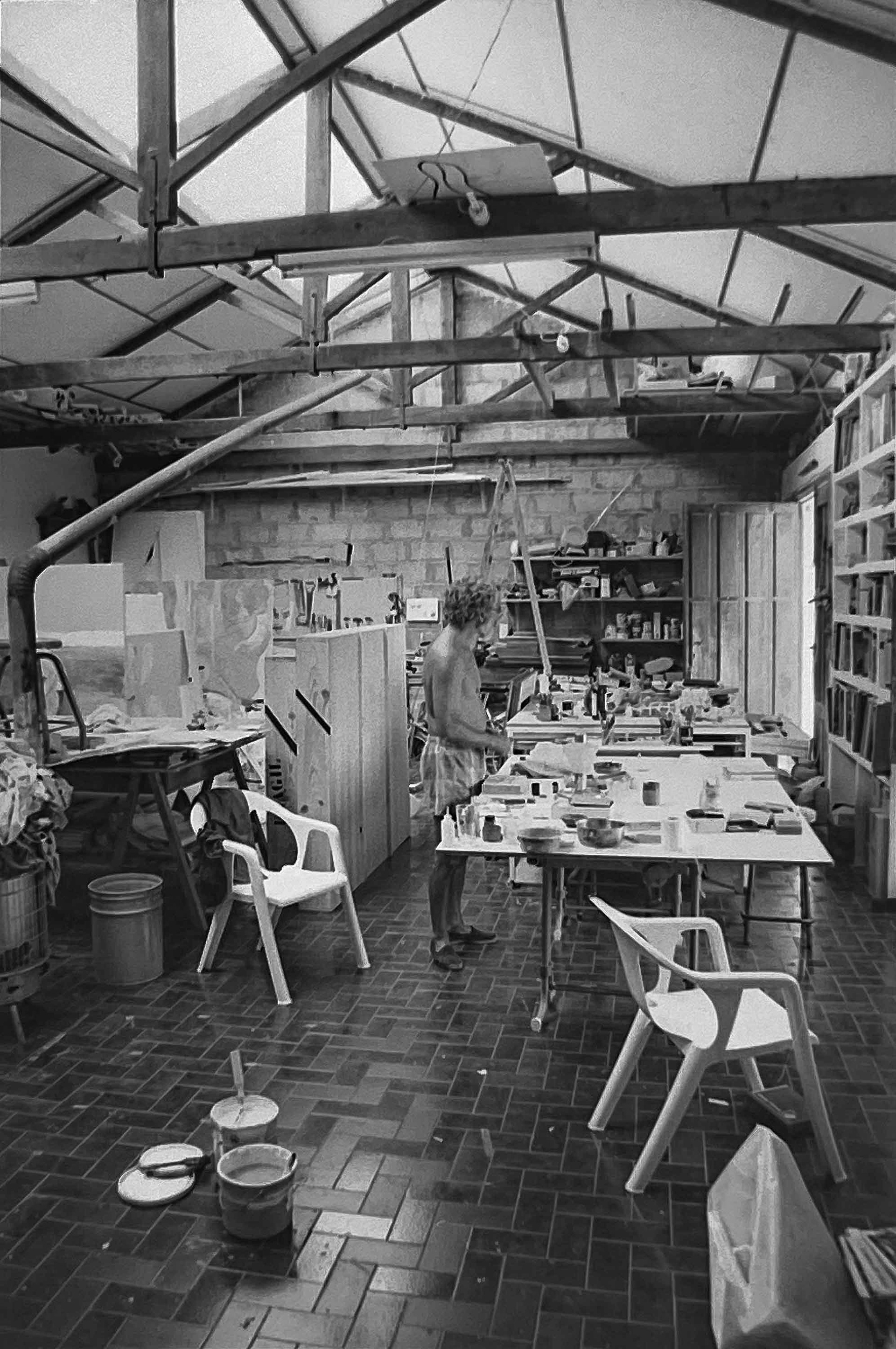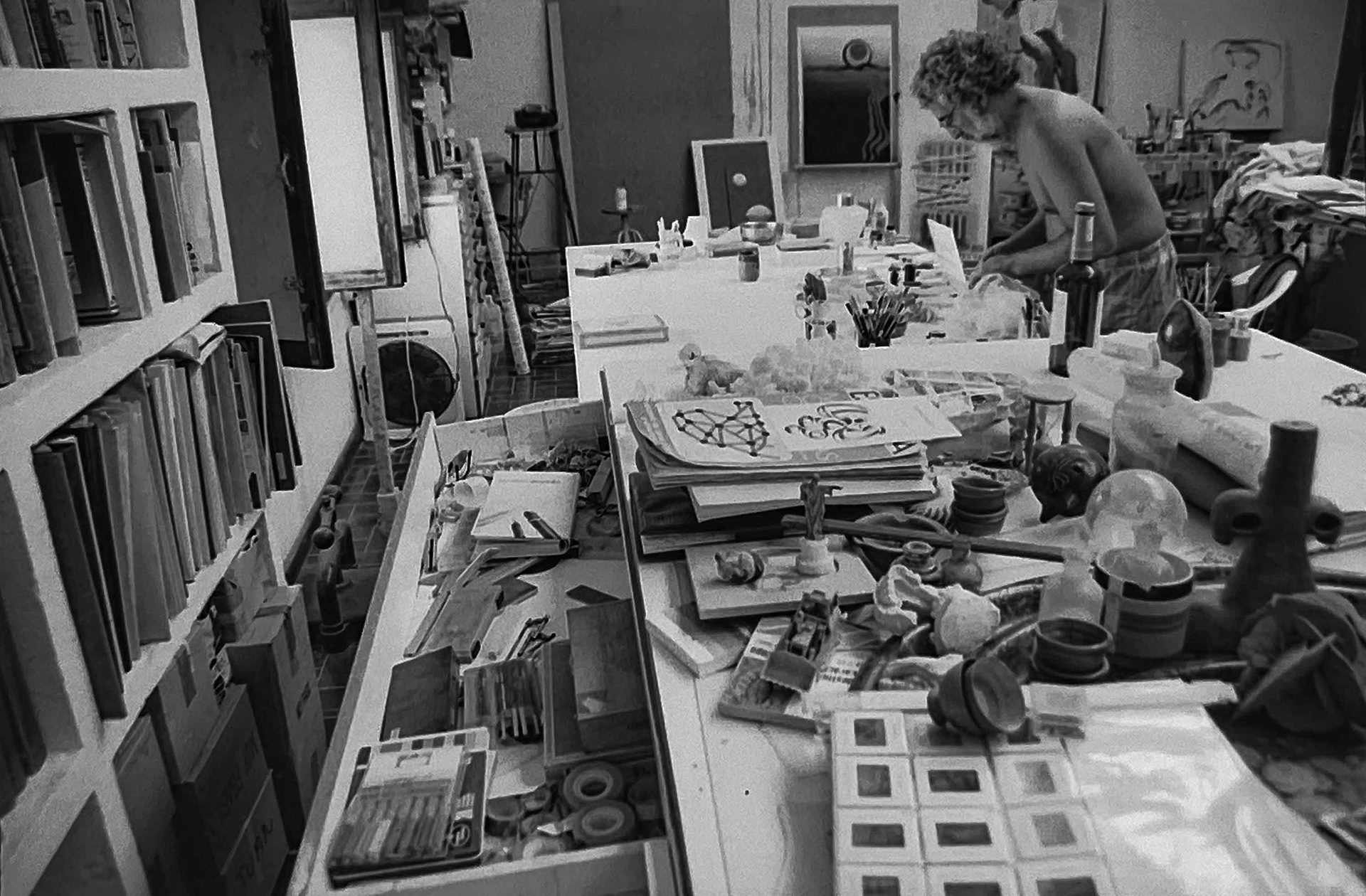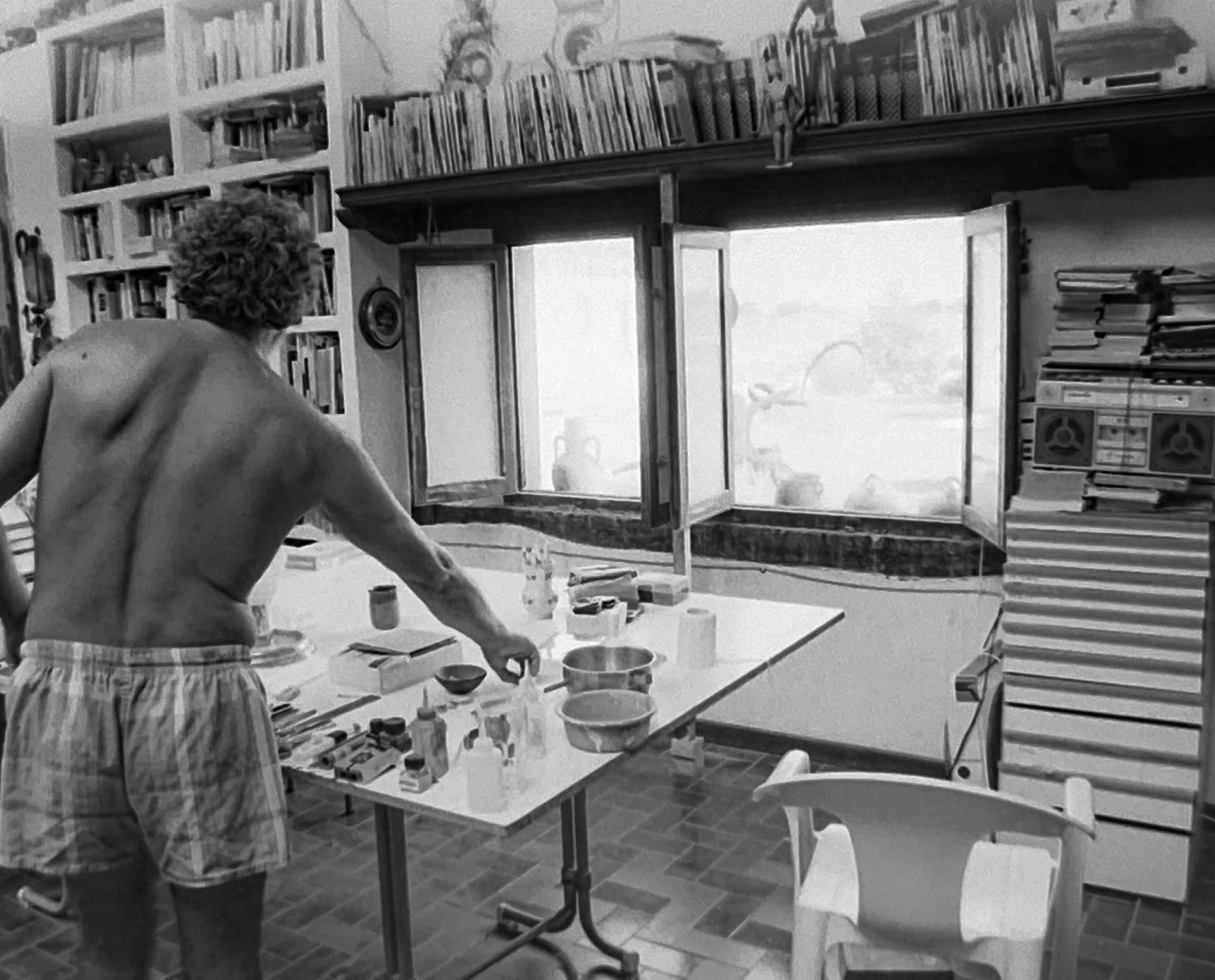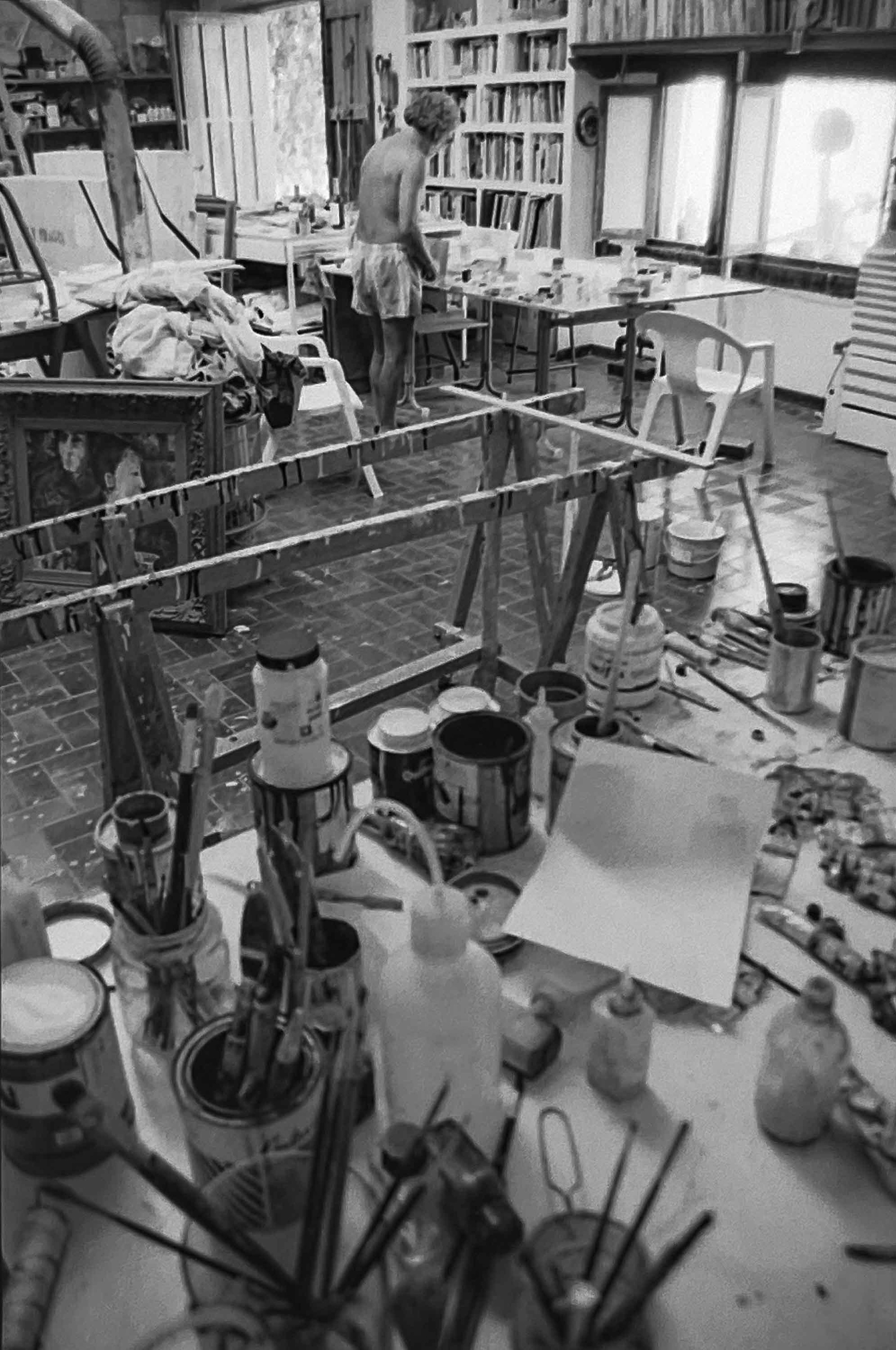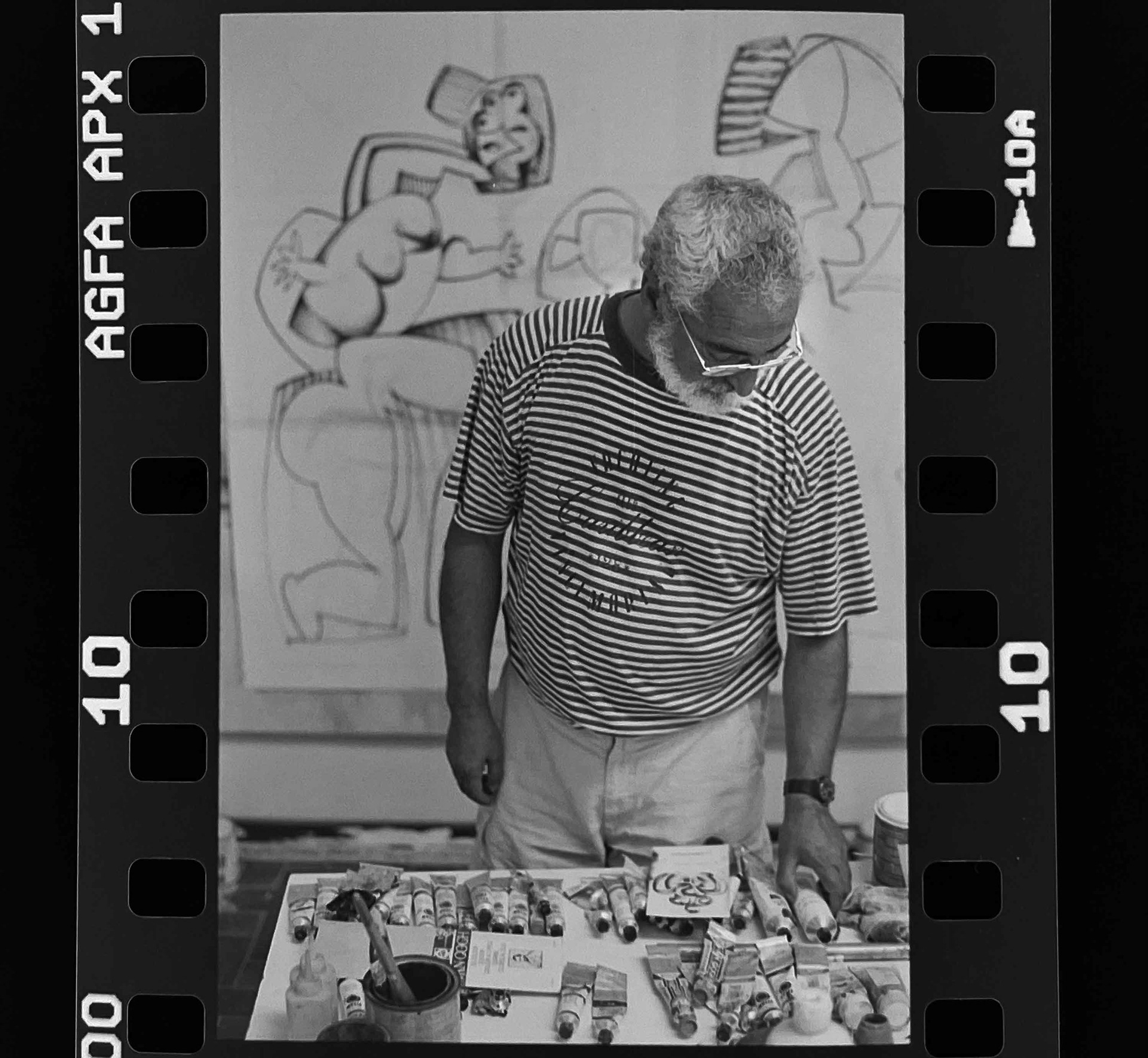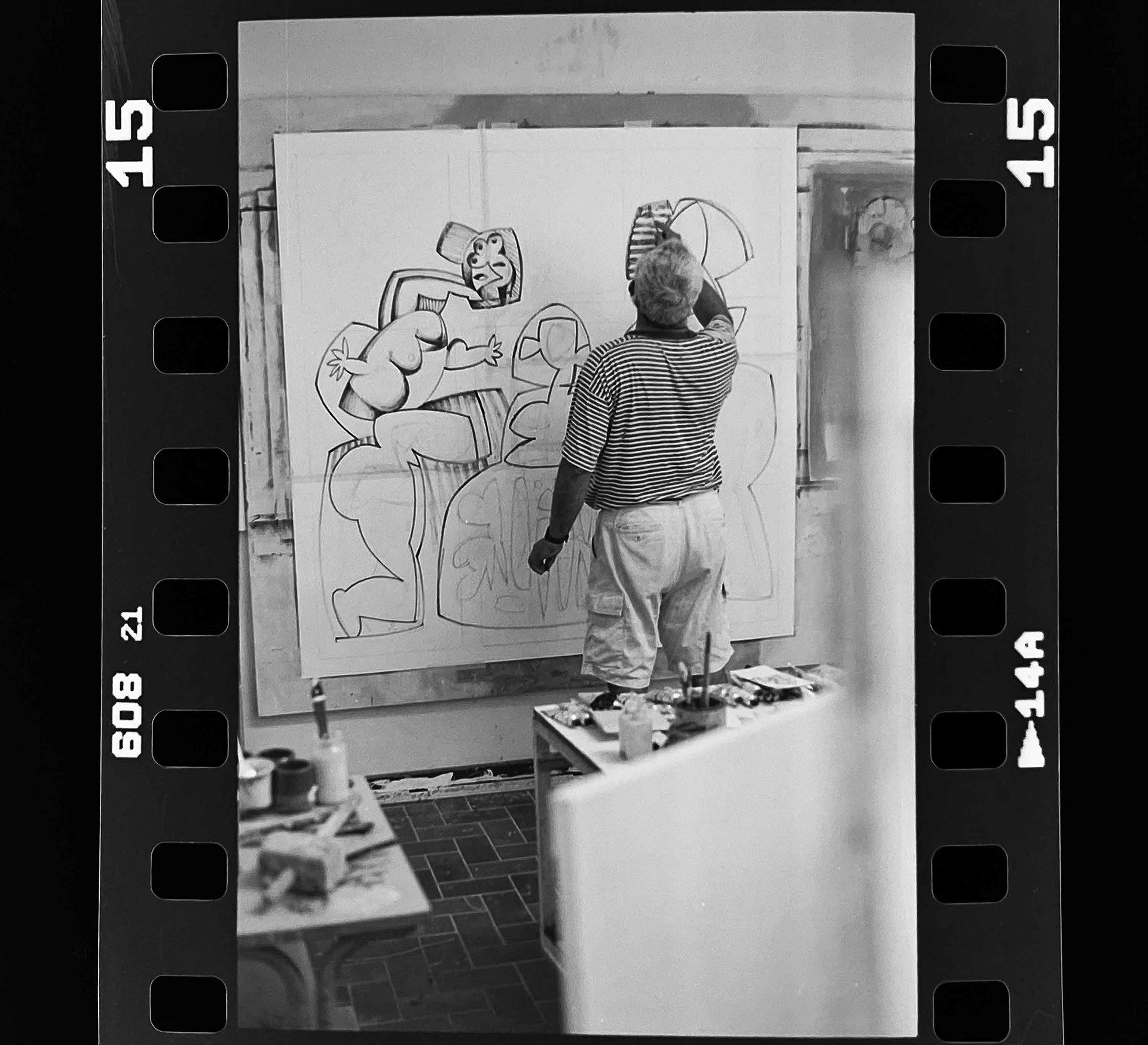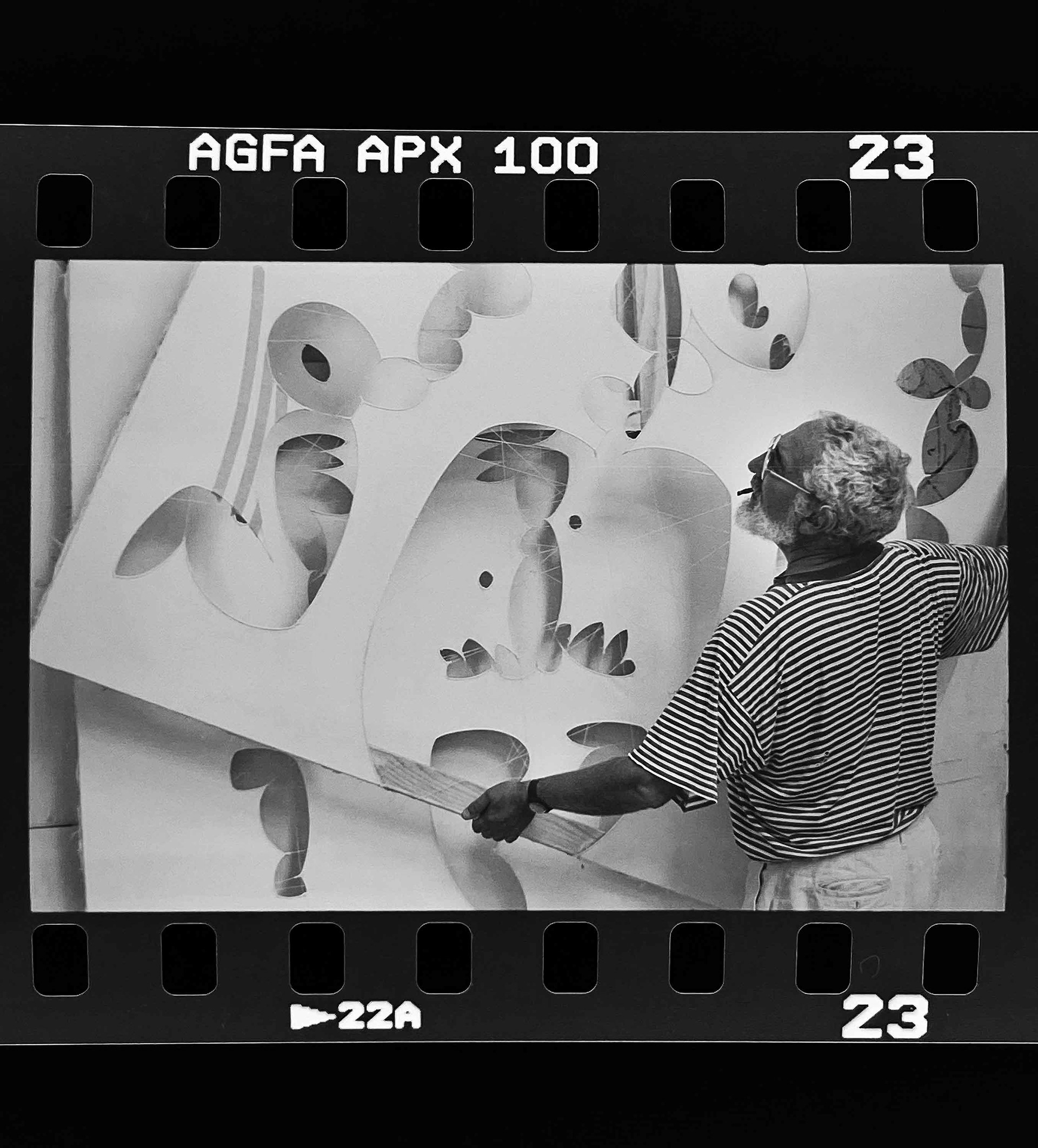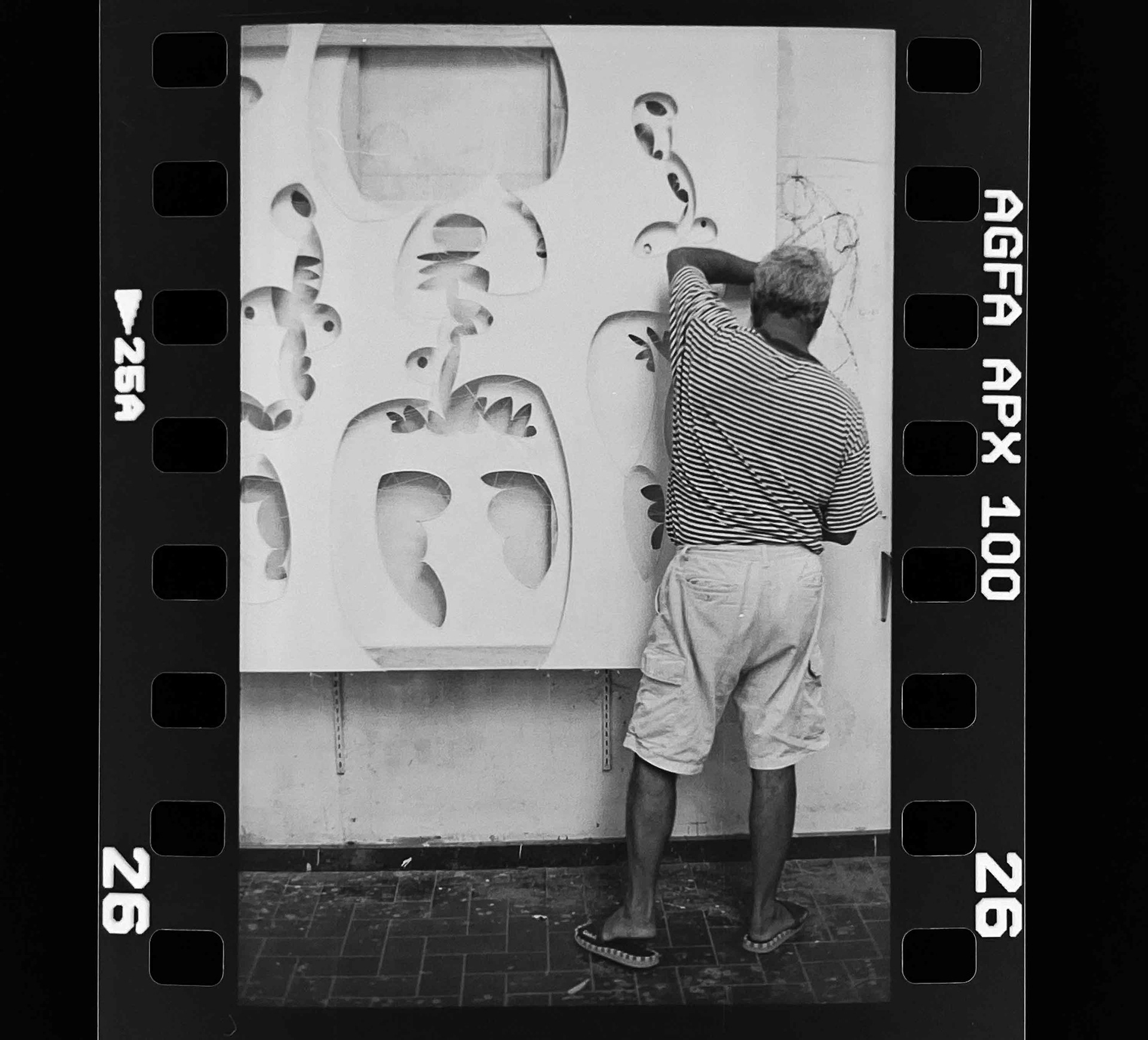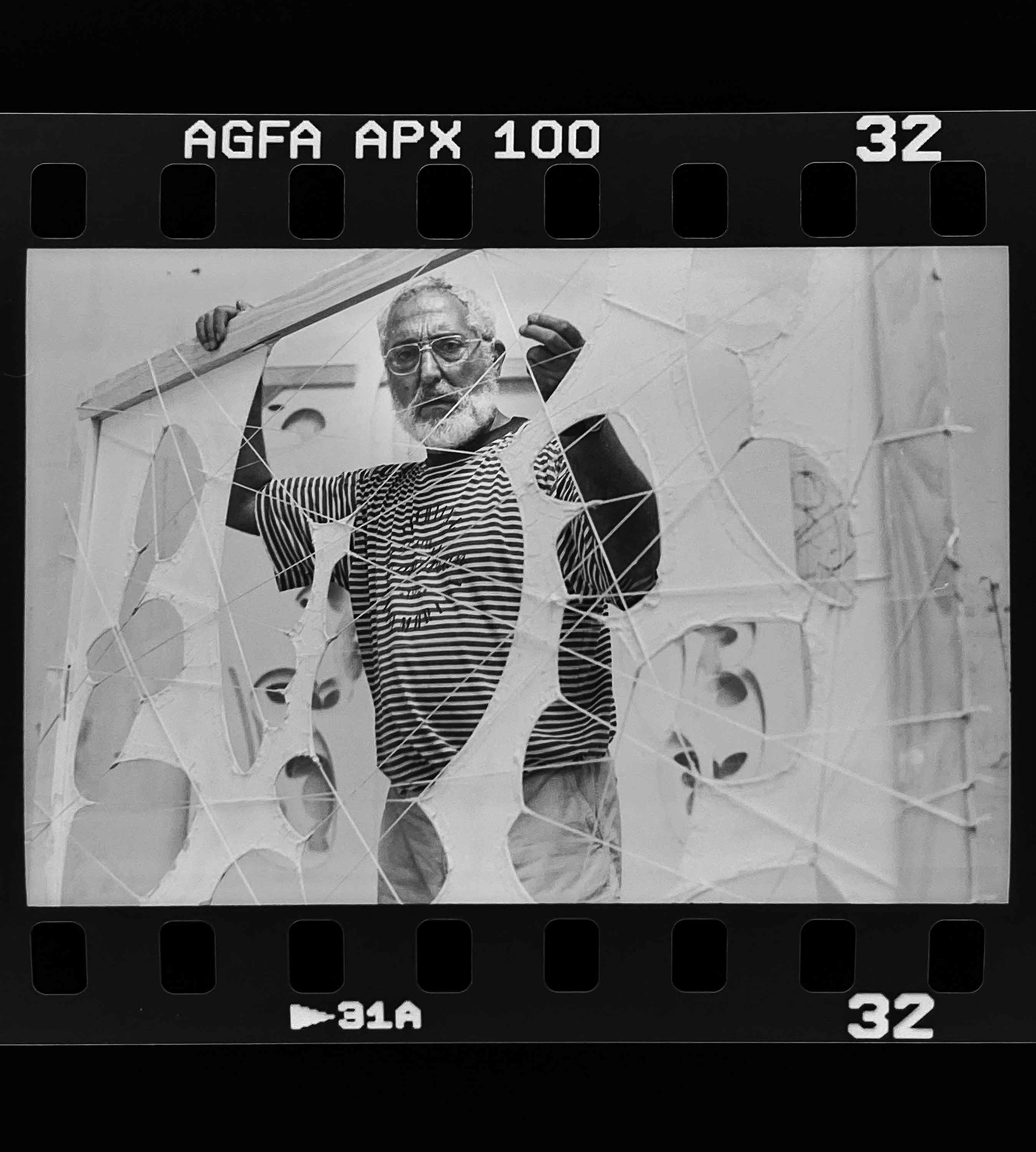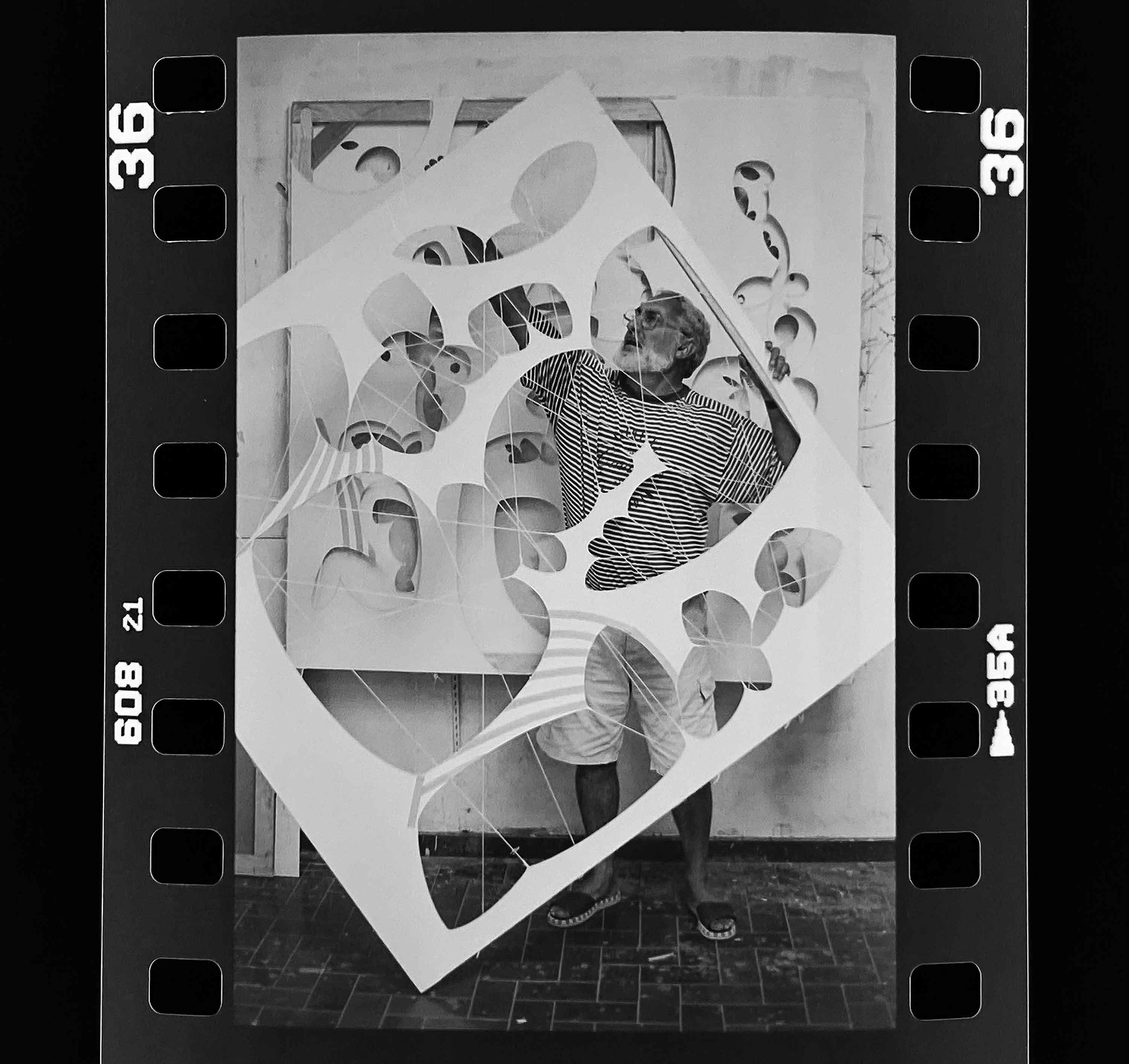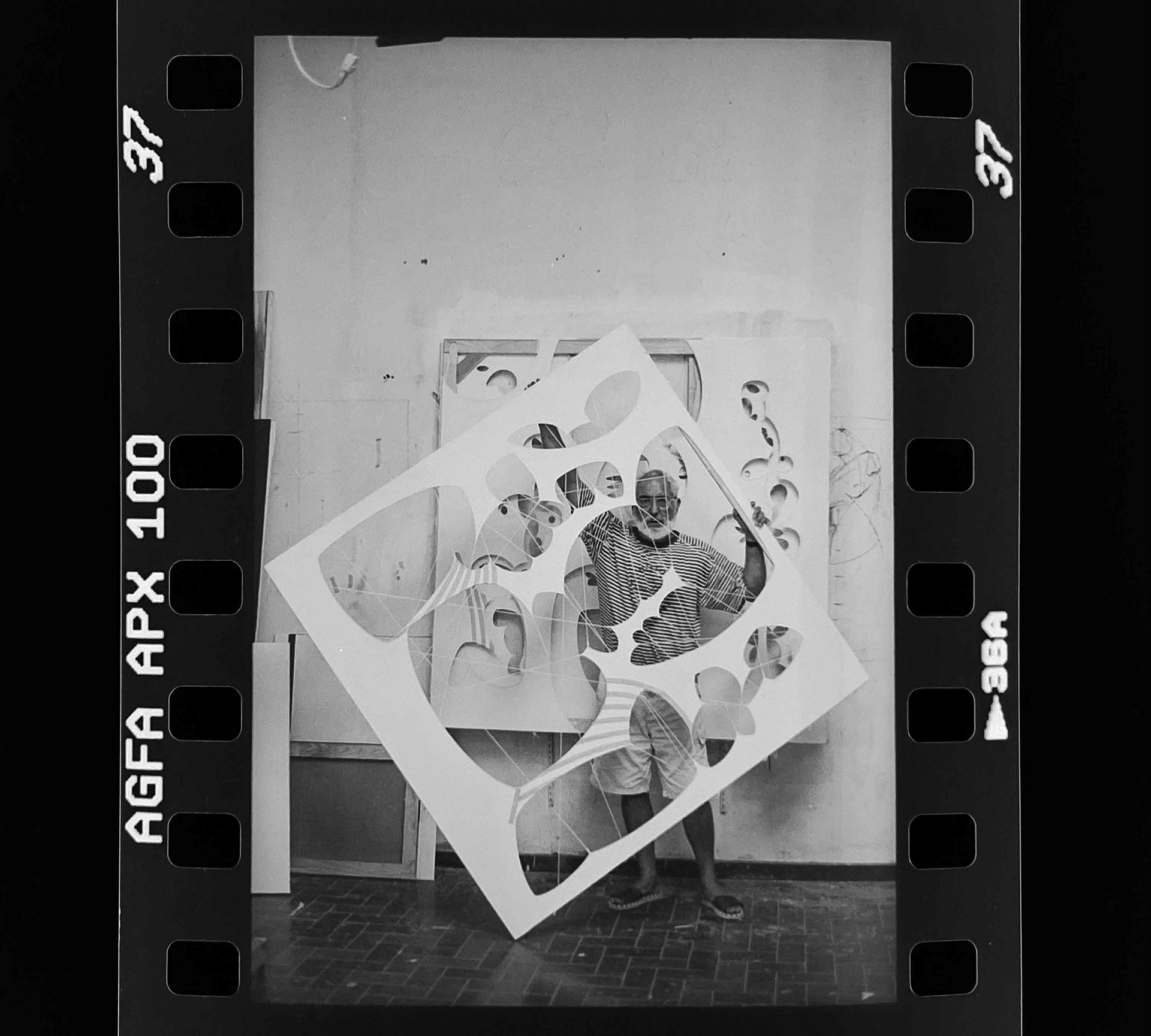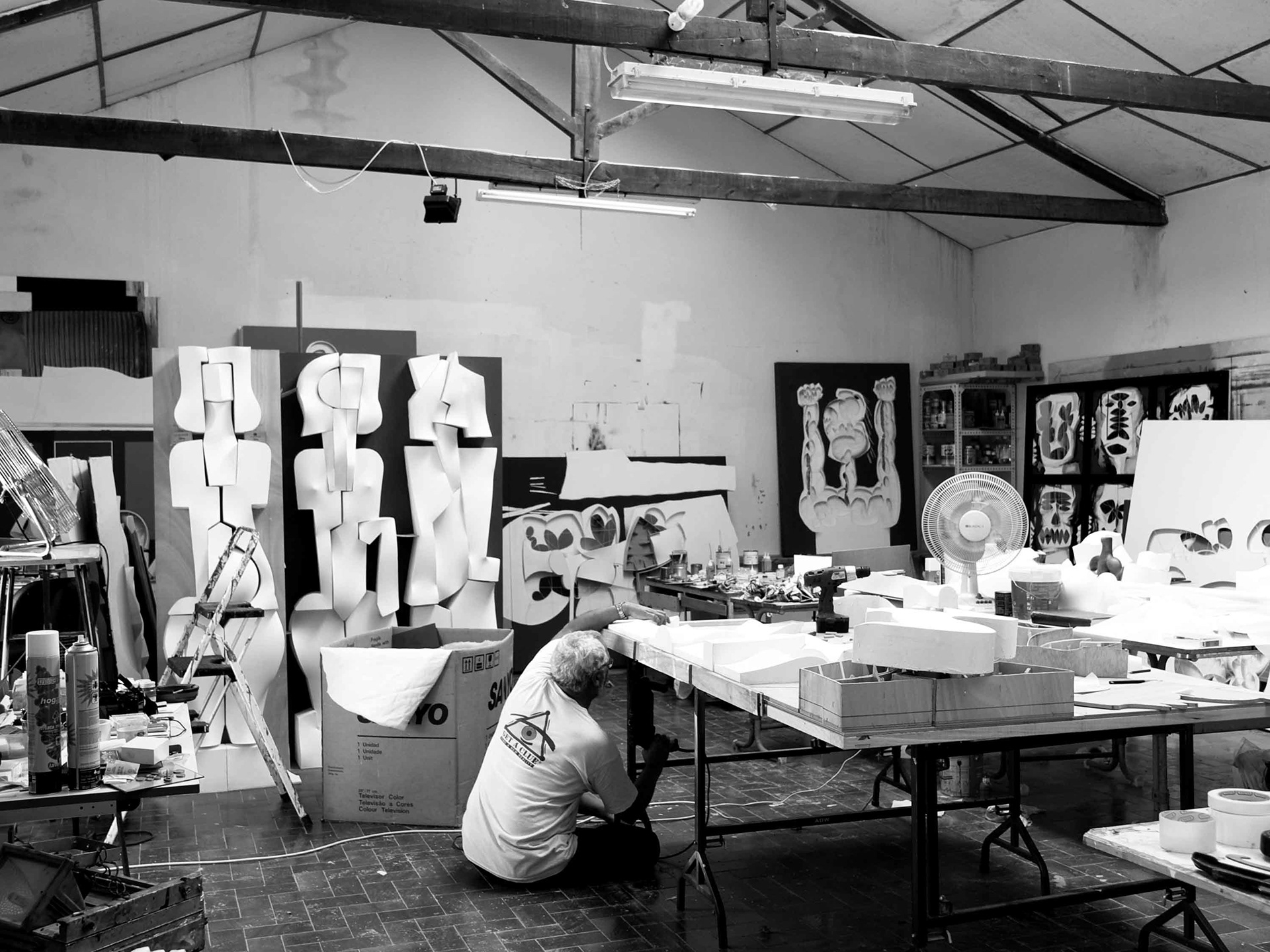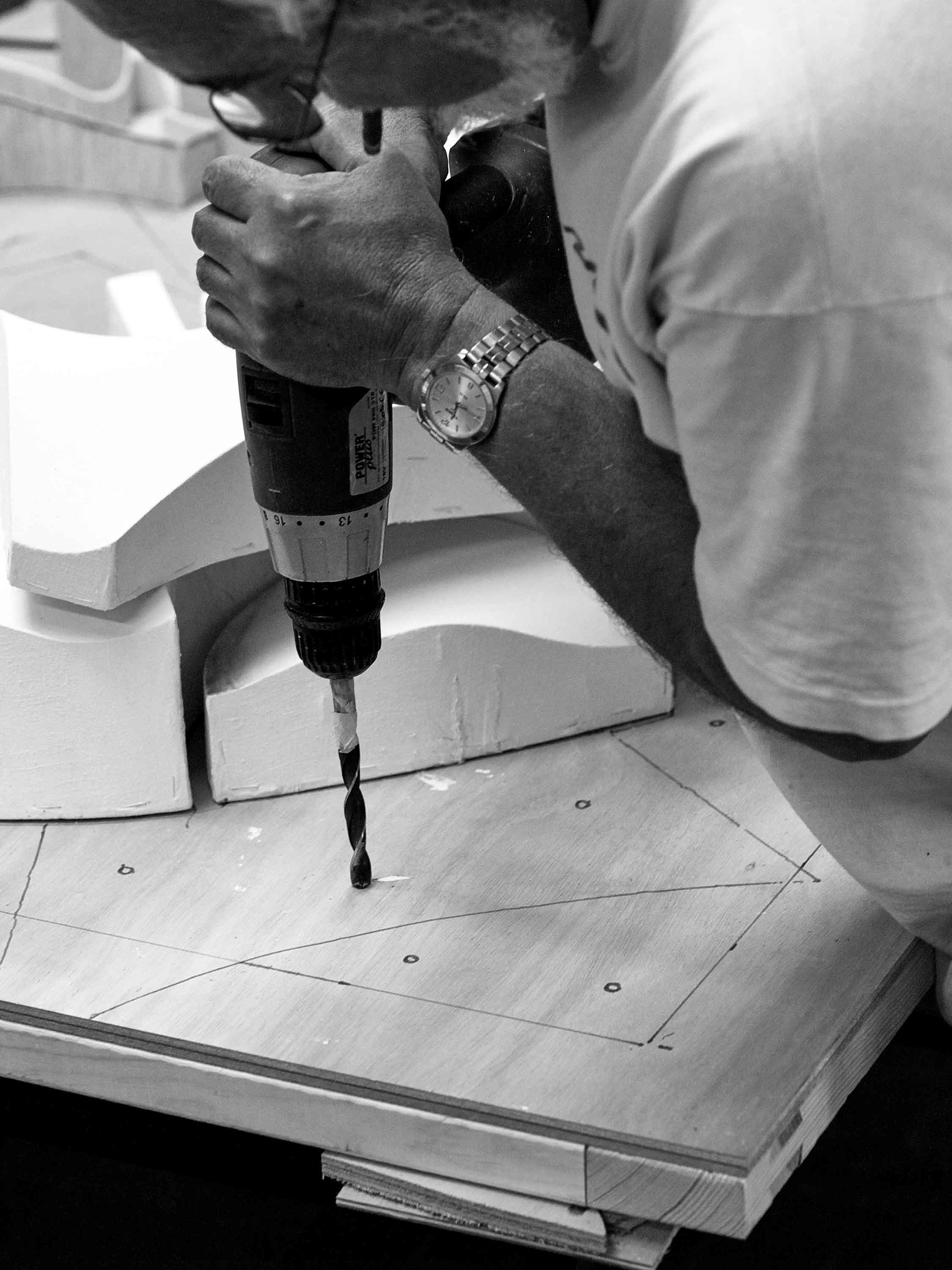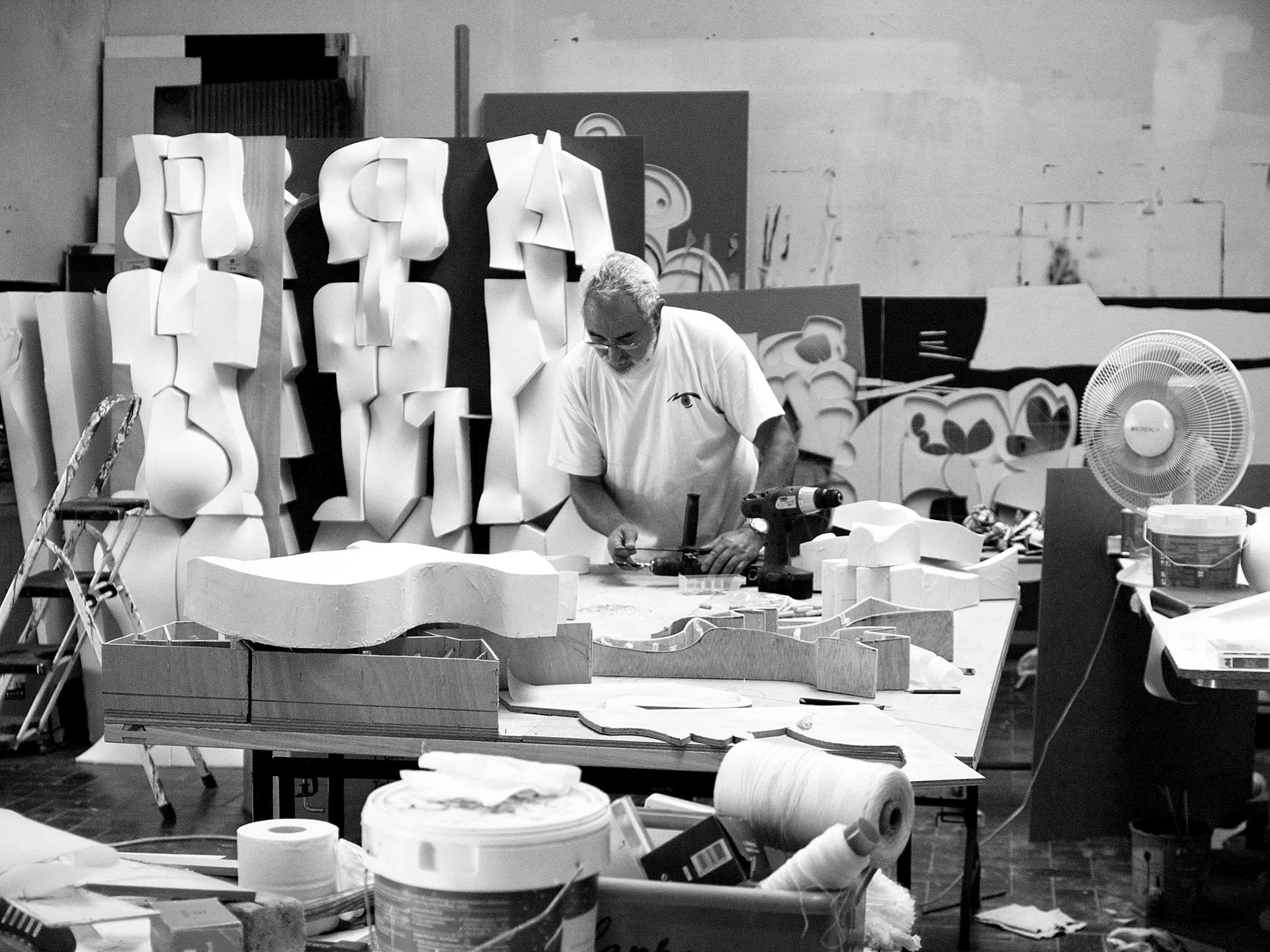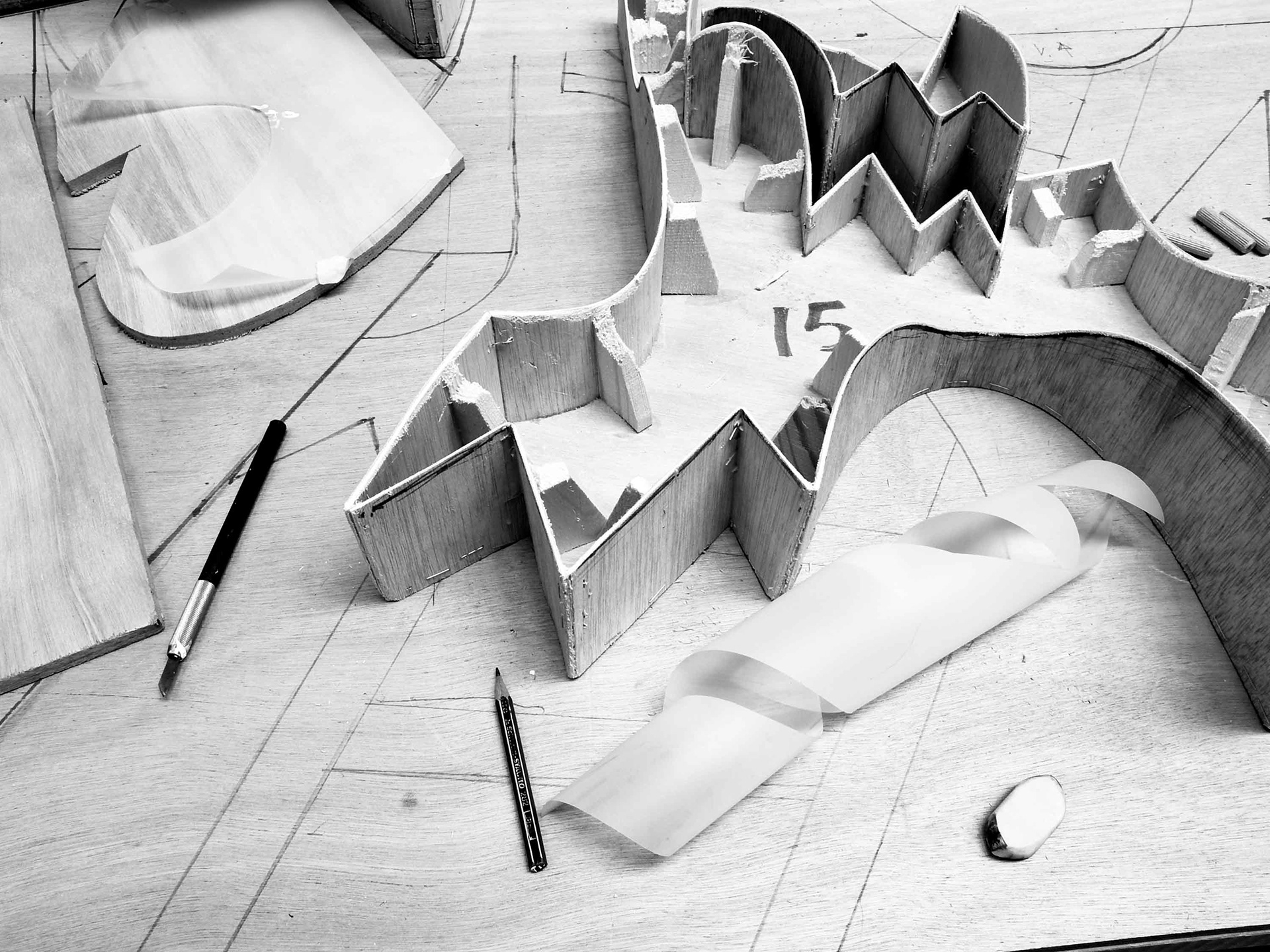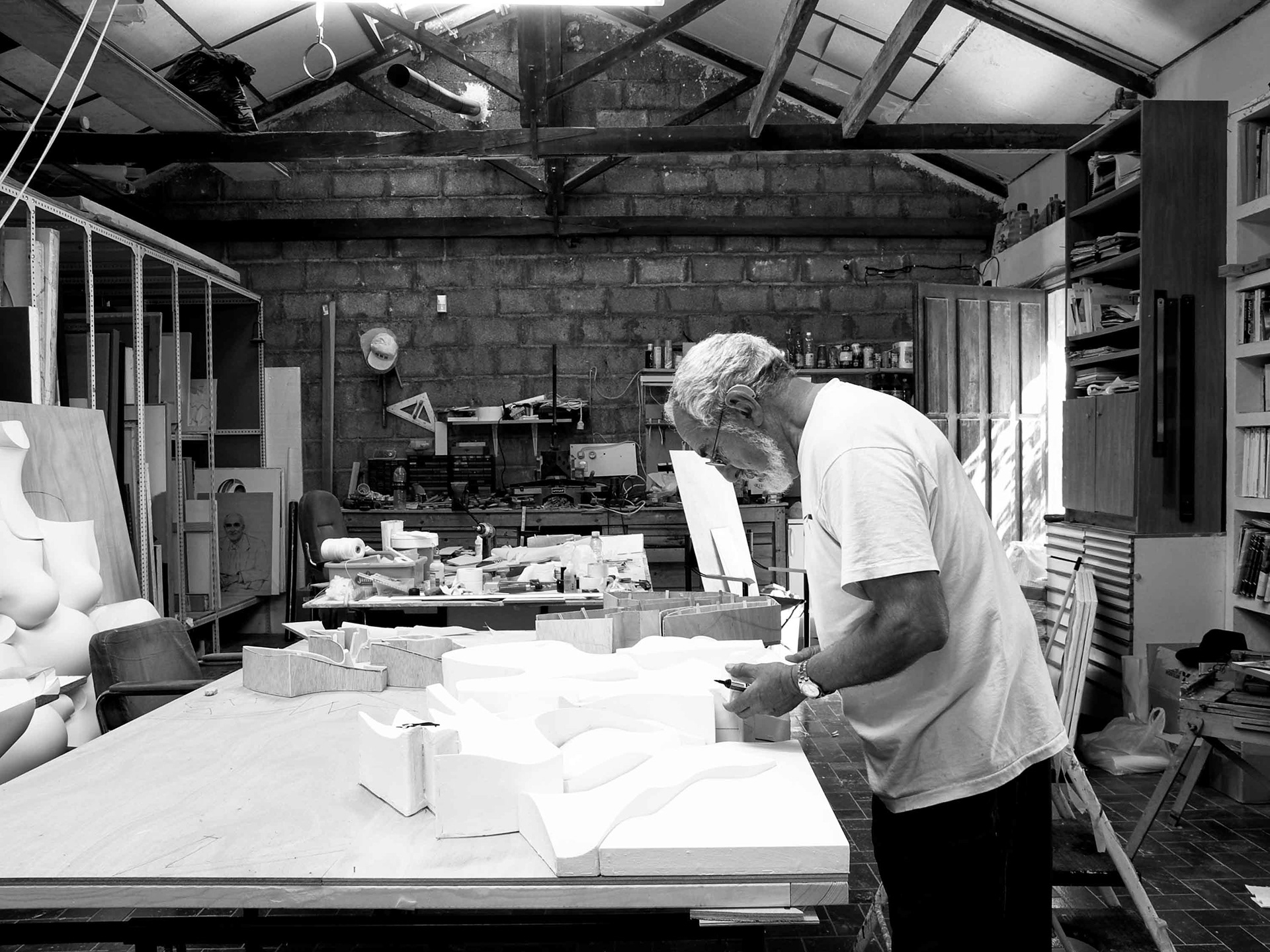Respecto a la vida de mi padre a veces pienso que el acto de crear es un desperdicio de la mente; un poder con el que nacen algunas personas para que se pasen toda su vida insistiendo de forma enfermiza en materializar lo que los demás llamamos arte.
Siempre estaba en su estudio; un espacio limitado a cuatro paredes, una cárcel espacial para una jaula mental como mapa de su universo. La creación le causaba angustia, la ansiedad no le dejaba dormir, la omnipresente insatisfacción era la pauta que determinaba su estado de ánimo; un día pletórico seguido de otro día absurdamente triste.
Sobre la felicidad me pregunto si todo esto valió la pena y que poderosa fuerza hay que te esclaviza y que te hace insistir e insistir toda tu vida en un viaje a ninguna parte.
Si la transcendencia era el premio a una vida como la suya, la suya es una existencia perdida.
Su estudio lo recuerdo como un sitio muy entretenido; muchos libros, revistas, objetos de todo tipo, olor a tabaco, herramientas, café, muchos dibujos y pinturas, todo esto ambientado con la radio o música clásica.
Todo en su taller era un cuidado caos, nada se perdía para él y nada podía ser encontrado por los demás. Rara vez hizo falta en casa un carpintero, electricista o fontanero ; todas esas habilidades y muchas más poseía mi padre; cosa muy distinta es que fuera capaz de terminar los proyectos que empezaba, cuadros inacabados, esculturas inconclusas, poesías sin final; era la manera de trabajar de alguien para el que el tiempo no es una variable.
Recuerdo desde mi memoria de niño que padre no paraba de pintar; los cuadros empezados, en proceso y acabados se amontonaban sin cesar. El ambiente en el taller era febril y aún hoy no valoro lo afortunado que fui siendo testigo de semejante capacidad creativa; tenía tan normalizado que la creatividad formaba parte de nuestras vidas que tuvo que morirse mi padre para aprender lo excepcional que era nuestra existencia.
Saber cuando una obra está acabada es muy difícil; te puedes quedar corto y perder la oportunidad de hacer algo mejor o pasarte y hacer algo relamido. Dar por terminada la obra es tal vez el momento mas importante del acto creativo; terminar es un estado, una forma, una frontera que se cruza. Yo creo que mi padre nunca consideró una obra acabada; pasaban años y todavía le veía añadir alguna pincelada o borrando un detalle. Ha malogrado grandes cuadros por insistir demasiado y hay en mi casa maravillas sin terminar.
Cualquier cuadro, dibujo o retrato requería la opinión crítica de mi madre; pruebas y versiones se sucedían hasta su finalización. Vivir esos debates de cómo y cuándo una obra estaba realmente terminada era para mi un verdadero espectáculo. -Manolo, déjalo ya!-, Manolo, me gustaba más antes!- o un estupendo: -está perfecto-, se sucedían continuamente. Visto con la perspectiva del tiempo comprendo que el verdadero salón de casa era el estudio y reunirnos todos en torno al último trabajo era nuestro ritual.
Regarding my father's life, I sometimes think that the act of creating is a waste of mind; a power with which some people are born so that they spend their whole lives insisting in an unhealthy way on materializing what others call art. He was always in his studio; a space limited to four walls, a space prison for a mental cage as a map of his universe.
Creation caused him anguish, anxiety would not let him sleep, pervasive dissatisfaction was the pattern that determined his mood; a full day followed by another absurdly sad day.
About happiness I wonder if all this was worth it and what powerful force there is that enslaves you and that makes you insist and insist all your life on a trip to nowhere. If transcendence was the reward for a life like yours, yours is a lost existence. I remember his study as a very entertaining place; many books, magazines, objects of all kinds, smell of tobacco, tools, coffee, many drawings and paintings, all this set with the radio or classical music.
Everything in his workshop was a careful chaos, nothing was lost to him and nothing could be found by others. Rarely was a carpenter, electrician or plumber needed at home; all those skills and many more my father possessed; Something very different is that he was able to finish the projects he started, unfinished paintings, unfinished sculptures, poetry without end; it was someone's way of working for whom time is not a variable.
I remember from my memory as a child that father did not stop painting; the paintings started, in process and finished were piling up endlessly. The atmosphere in the workshop was feverish and even today I do not value how fortunate I was to witness such a creative capacity; I had so normalized that creativity was part of our lives that my father had to die to learn how exceptional our existence was.
Knowing when a work is finished is very difficult; you can fall short and miss the opportunity to do something better or go over and do something relativistic. Terminating the work is perhaps the most important moment of the creative act; ending is a state, a form, a border that is crossed. I believe that my father never considered a finished work; years passed and I still saw him add a brushstroke or erase a detail. He has missed great paintings for insisting too much and there are unfinished wonders in my house.
Any painting, drawing or portrait required my mother's critical opinion; tests and versions followed each other until its completion. Living those debates of how and when a work was really finished was for me a real spectacle. -Manolo, leave it now!-, Manolo, I liked it better before!- or a great one: -it's perfect-, they followed each other continuously.
Seen with the perspective of time I understand that the real living room of the house was the study and gathering all around the last work was our ritual.
